The Project Gutenberg eBook of Mr. Punch at the Play: Humours of Music and the Drama
most other parts of the world at no cost and with almost no restrictions
whatsoever. You may copy it, give it away or re-use it under the terms
of the Project Gutenberg License included with this ebook or online
at www.gutenberg.org. If you are not located in the United States,
you will have to check the laws of the country where you are located
before using this eBook.
Title: Mr. Punch at the Play: Humours of Music and the Drama
Editor: J. A. Hammerton
Illustrator: Charles Keene
Release date: June 27, 2011 [eBook #36529]
Language: English
Credits: Produced by Neville Allen, Chris Curnow and the Online
Distributed Proofreading Team at https://www.pgdp.net (This
file was produced from images generously made available
by The Internet Archive)
*** START OF THE PROJECT GUTENBERG EBOOK MR. PUNCH AT THE PLAY: HUMOURS OF MUSIC AND THE DRAMA ***
[Cover]
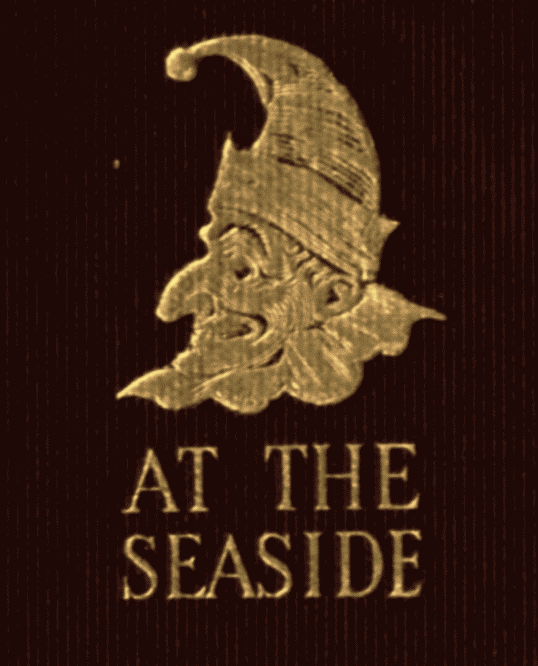
TRANSCRIBER'S NOTE.
sequence to enable the contents to continue without interruption.
The page numbering remains unaltered.
[Pg 1]
PUNCH LIBRARY OF HUMOUR
Designed to provide in a series
of volumes, each complete in itself,
the cream of our national humour,
contributed by the masters of
comic draughtsmanship and the
leading wits of the age to "Punch,"
from its beginning in 1841 to the
present day.
MR. PUNCH AT THE PLAY

[Pg 2]
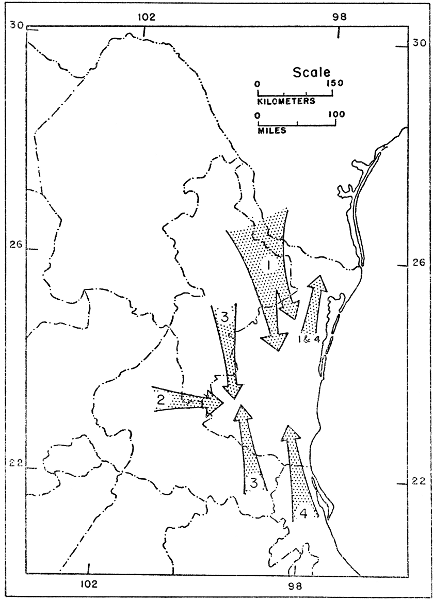
Actor (on the stage). "Me mind is made up!"
Voice from the Gallery. "What abeaout yer fice?"
MR. PUNCH AT THE PLAY
HUMOURS OF MUSIC AND THE DRAMA
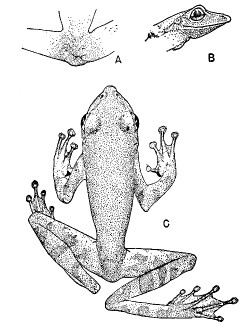
BY CHARLES KEENE, PHIL MAY,
GEORGE DU MAURIER, BERNARD PARTRIDGE,
L. RAVEN-HILL, E. T. REED,
F. H. TOWNSEND, C. E. BROCK,
A. S. BOYD, TOM BROWNE,
EVERARD HOPKINS AND OTHERS
PROPRIETORS OF "PUNCH"
THE EDUCATIONAL BOOK CO. LTD
[Pg 4]
THE PUNCH LIBRARY OF HUMOUR
LIFE IN LONDON
COUNTRY LIFE
IN THE HIGHLANDS
SCOTTISH HUMOUR
IRISH HUMOUR
COCKNEY HUMOUR
IN SOCIETY
AFTER DINNER STORIES
IN BOHEMIA
AT THE PLAY
MR. PUNCH AT HOME
ON THE CONTINONG
RAILWAY BOOK
AT THE SEASIDE
MR. PUNCH AFLOAT
IN THE HUNTING FIELD
MR. PUNCH ON TOUR
WITH ROD AND GUN
MR. PUNCH AWHEEL
BOOK OF SPORTS
GOLF STORIES
IN WIG AND GOWN
ON THE WARPATH
BOOK OF LOVE
WITH THE CHILDREN
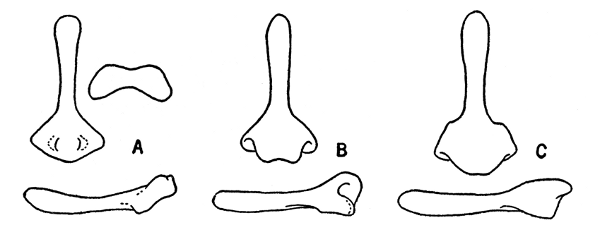
[Pg 5]

BEFORE THE CURTAIN
Most of the Punch artists of note have used their pencils on the
theatre; with theatricals public and private none has done more than Du
Maurier. All have made merry over the extravagances of melodrama and
"problem" plays; the vanity and the mistakes of actors, actresses and
dramatists; and the blunderings of the average playgoer.
Mr. Punch genially satirises the aristocratic amateurs who, some few
years ago, made frantic rushes into the profession, and for a while
enjoyed[Pg 6] more kudos as actors than they had obtained as titled members
of the upper circle, and the exaggerated social status that for the time
accrued to the professional actor as a consequence of this invasion.
The things he has written about the stage, quite apart from all
reviewing of plays, would more than fill a book of itself; and he has
slyly and laughingly satirised players, playwrights and public with an
equal impartiality.
He has got a deal of fun out of the French dramas and the affected
pleasure taken in them by audiences that did not understand the
language. He has got even more fun out of the dramatists whose "original
plays" were largely translated from the French, and to whom Paris was,
and to some extent is still, literally and figuratively "a playground."
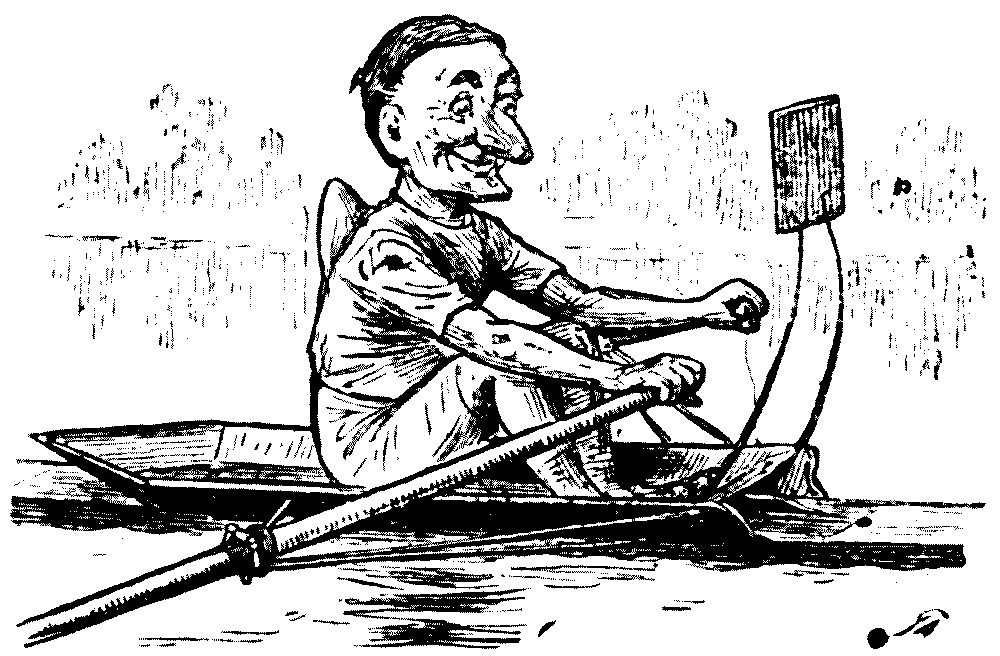
[Pg 7]
MR. PUNCH AT THE PLAY
SOMETHING FOR THE MONEY
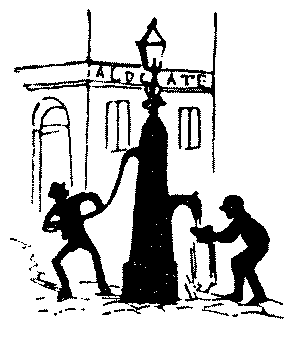
I have only paid three guineas and a half for this stall, but it is
certainly stuffed with the very best hair.
The people in the ten-and-sixpenny gallery seem fairly pleased with
their dado.
I did not know the call-boy was at Eton.
The expenses of this house must be enormous, if they always play Box
and Cox with a rasher of real Canadian bacon.
How nice to know that the musicians, though out of sight under the
stage, are in evening dress on velvet cushions![Pg 8]
Whoever is the author of this comedy, he has not written up with spirit
to that delightful Louis the Fifteenth linen cupboard.
I cannot catch a word "Macbeth" is saying, but I can see at a glance
that his kilt would be extremely cheap at seventy pounds.
I am not surprised to hear that the "Tartar's lips" for the cauldron
alone add nightly something like fifty-five-and-sixpence to the
expenses.
Do not bother me about the situation when I am looking at the quality of
the velvet pile.
Since the introduction of the live hedgehog into domestic drama
obliged the management to raise the second-tier private boxes to forty
guineas, the Duchess has gone into the slips with an order.
They had, perhaps, better take away the champagne-bottle and the
diamond-studded whistle from the prompter.
Ha! here comes the chorus of villagers, provided with real silk
pocket-handkerchiefs.
It is all this sort of thing that elevates the drama, and makes me so
contented to part with a ten-pound note for an evening's amusement.
[Pg 9]
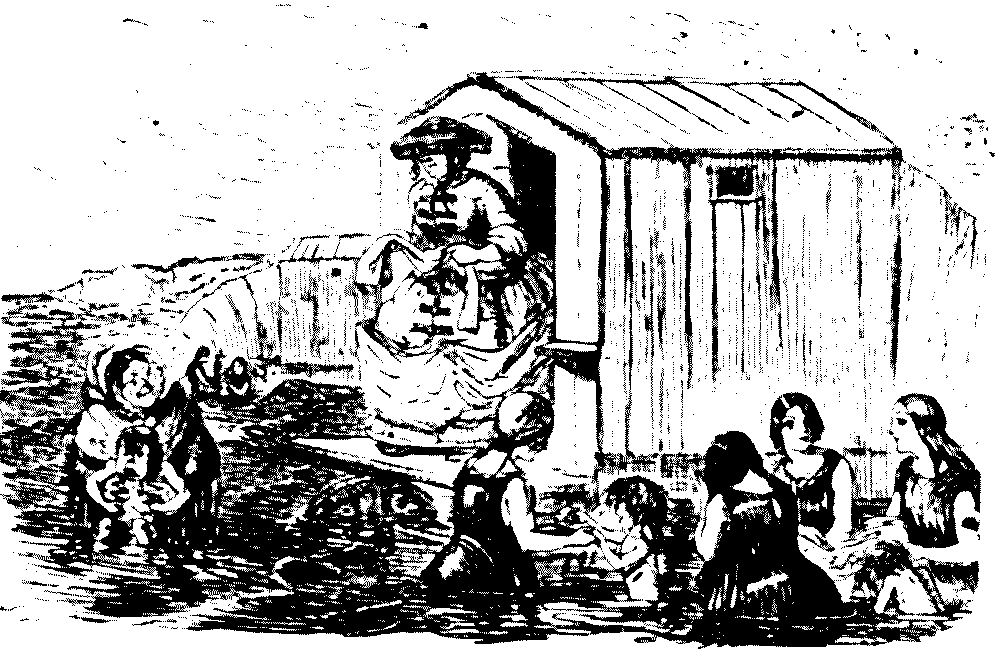
Pantomime Child (to admiring friend). "Yus, and there's
another hadvantage in bein' a hactress. You get yer fortygraphs took for
noffink!"
[Pg 10]
When they take orders.
"Stand not on the Order of your Going."—An amiable manager says the
orders which he issues for the pit and gallery are what in his opinion
constitute "the lower orders."
Great Theatrical Effect.—During a performance of Macbeth at the
Haymarket, the thunder was so natural that it turned sour a pint of beer
in the prompter's-box.
[Pg 11]
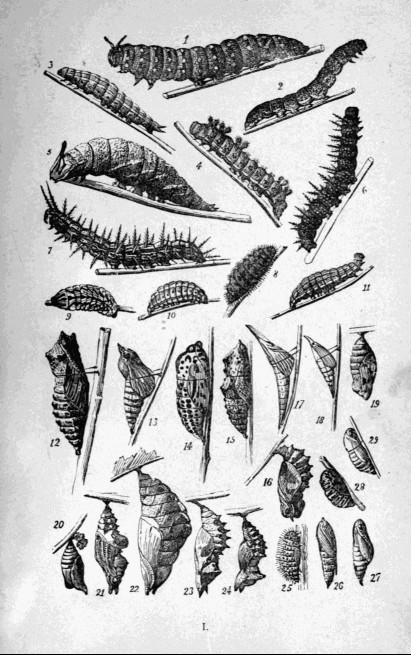
The Drama.
"'Ere, I say, 'Liza, we've seen this 'ere
play before!" "No, we ain't." [Wordy argument follows.] "Why, don't
you remember, same time as Bill took us to the 'Pig an' Whistle,' an' we
'ad stewed eels for supper?" "Oh lor! Yes, that takes me back to it!"
[Pg 12]
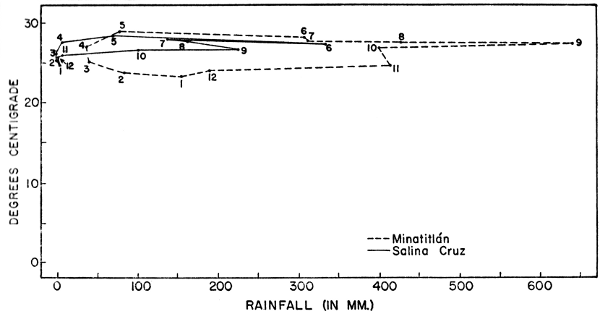
TRUE APPRECIATION
Mrs. Parvenu. "I don't know that I'm exackly gone on Shakspeare
Plays."
[Mr. P. agrees.
[Pg 13]
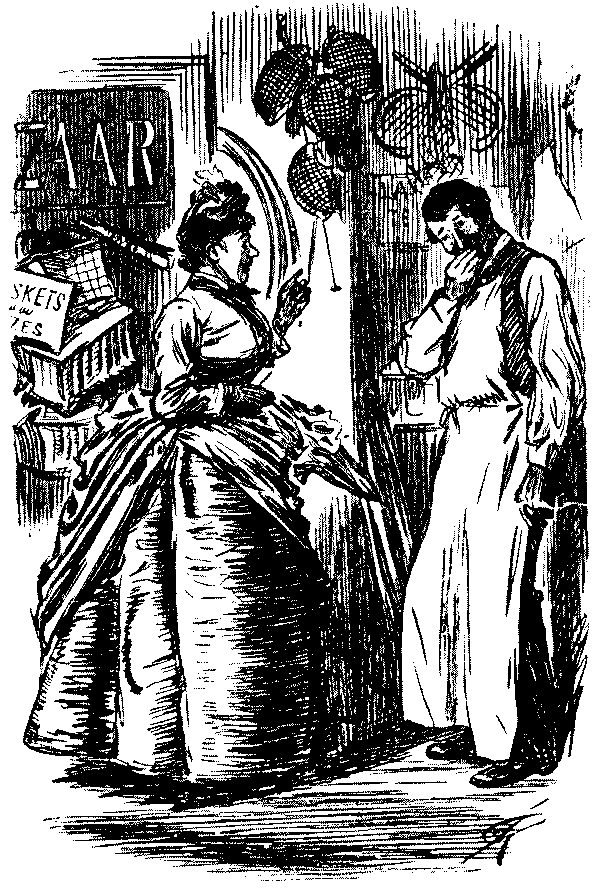
Conversationalist. "Do you play ping-pong?"
Actor. "No. I play Hamlet!"
[Pg 14]
To Actors who are not worth a Thought.—We notice that there is a book
called "Acting and Thinking." This is to distinguish it, we imagine,
from the generality of acting, in which there is mostly no thinking?
A Crusher.—Country Manager (to Mr. Agrippa Snap, the great London
critic, who has come down to see the production of a piece on trial.)
And what do you think, sir, of our theatre and our players?
Agrippa Snap (loftily). Well, frankly, Mr. Flatson, your green-room's
better than your company.
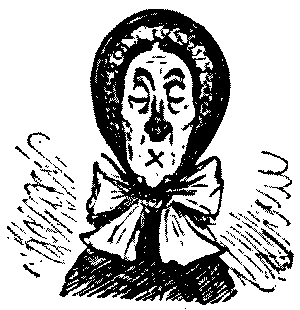
The higher walk of the drama
[Pg 15]
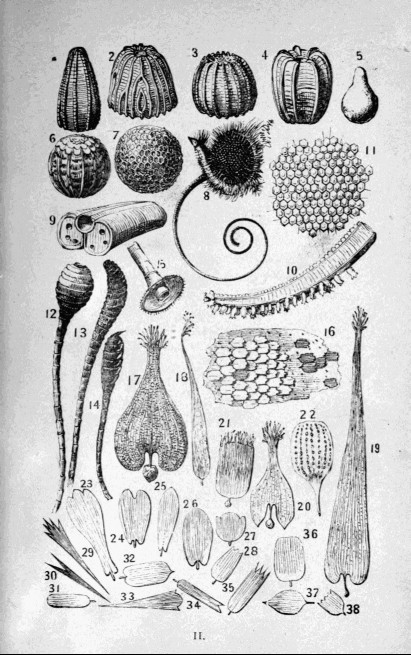
"Auntie, can you do that?"
[Pg 16]
Theatrical managers are so often accused of being unable to break with
tradition, that it seems only fair to point out that several of them
have recently produced plays, in which the character of "Hamlet" does
not appear at all.
ON A DRAMATIC AUTHOR
"Yes, he's a plagiarist," from Tom this fell,
"As to his social faults, sir, one excuses 'em;
'Cos he's good natured, takes a joke so well."
"True," cries an author, "he takes mine and uses 'em."
THE MANAGER'S COMPLAINT
She danced among the unfinished ways
That merge into the Strand,
A maid whom none could fail to praise,
And very few withstand.
A sylph, accepted for the run,
Not at a weekly wage;
Fair as a star when only one
Is shining on the stage.
She met a lord, and all men know
How soon she'd done with me;
Now she is in Debrett, oh, and,
That's where they all would be!
[Pg 17]
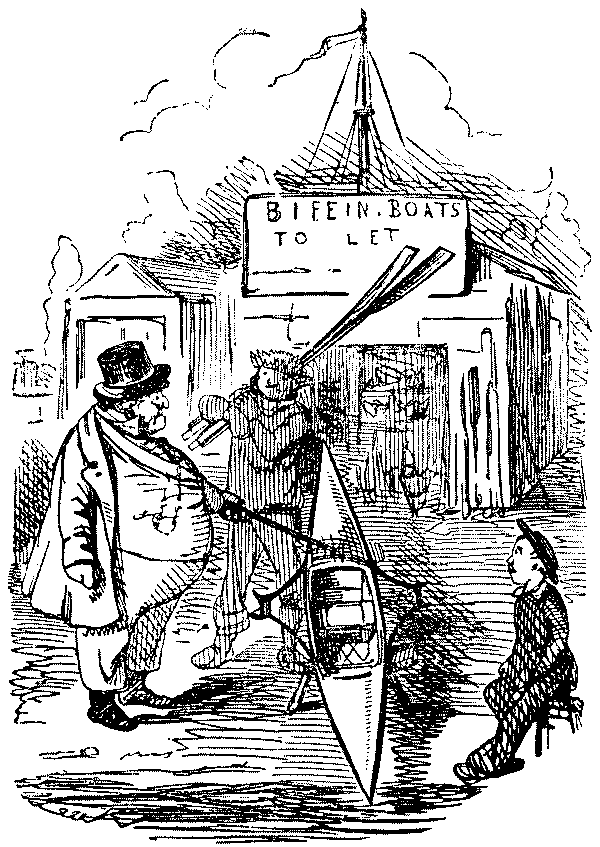
A First Night.
Indignant Playwright (to leading actor,
behind the scenes). "Confound it, man, you've absolutely murdered the
piece!" Leading Actor. "Pardon me, but I think the foul play is
yours!"
[Pg 18]
Smart. How do, Smooth? (to theatrical manager, who frowns upon him).
What's the matter, eh?
Smooth. Matter? Hang it, Smart, you wrote me down in "The Stinger."
Smart (repressing something Shakspearian about "writing down" which
occurs to him, continues pleasantly). Wrote you down? No, I said the
piece was a bad one, because I thought it was; a very bad one.
Smooth. Bad! (Sarcastically.) You were the only man who said so.
Smart (very pleasantly). My dear fellow, I was the only man who saw
it. Good-bye.
[Exeunt severally.
curtain." How are we to take this?
[Pg 19]
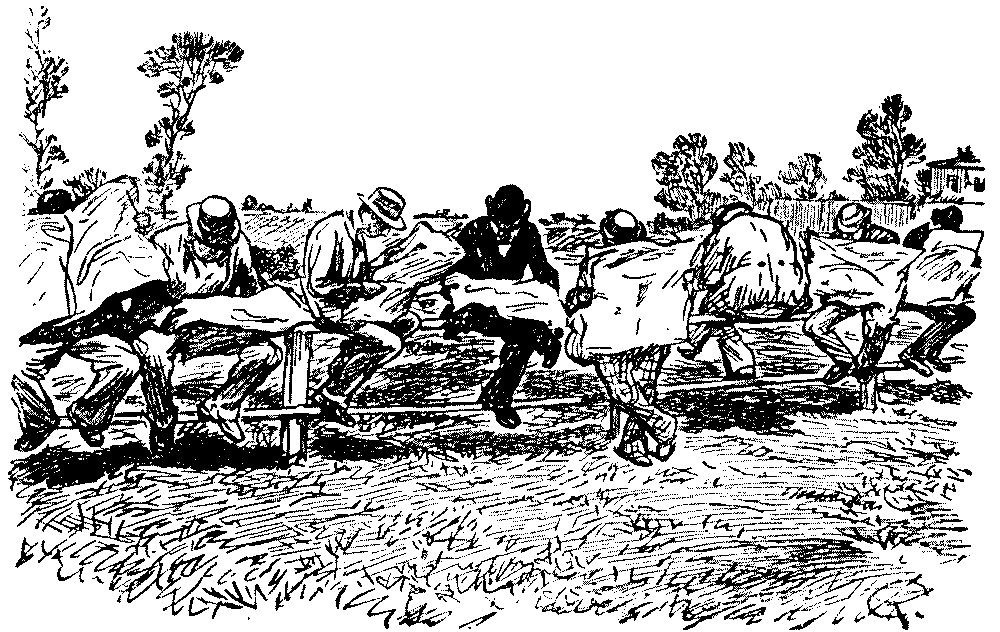
"The Desire of the Moth for the Star.
"Mistress. "And you dare to tell me, Belinda, that you have actually answered a theatrical
advertisement? How could you be such a wicked girl?" Belinda
(whimpering). "Well, mum,—other young lidies—gow on
the—stige—why shouldn't I gow?"
[Pg 20]
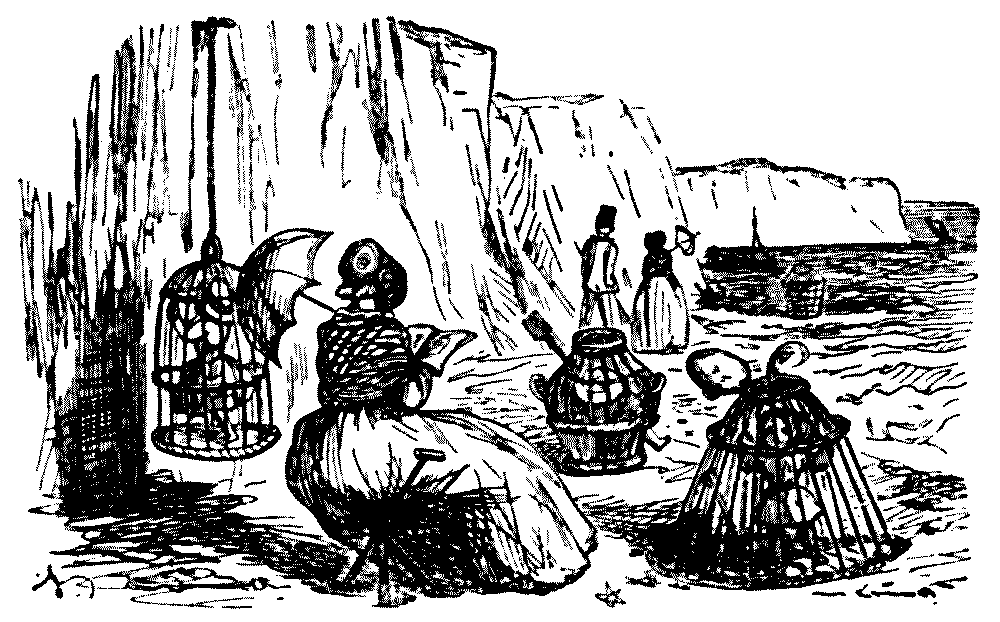
The Counter-Check Quarrelsome.
Mr. Æsopus Delasparre. "I will ask you to favour me, madam, by refraining from laughing at me
on the stage during my third act." Miss Jones (sweetly). "Oh, but I
assure you you're mistaken, Mr. Delasparre; I never laugh at you on the
stage—I wait till I get home!"
[Pg 21]
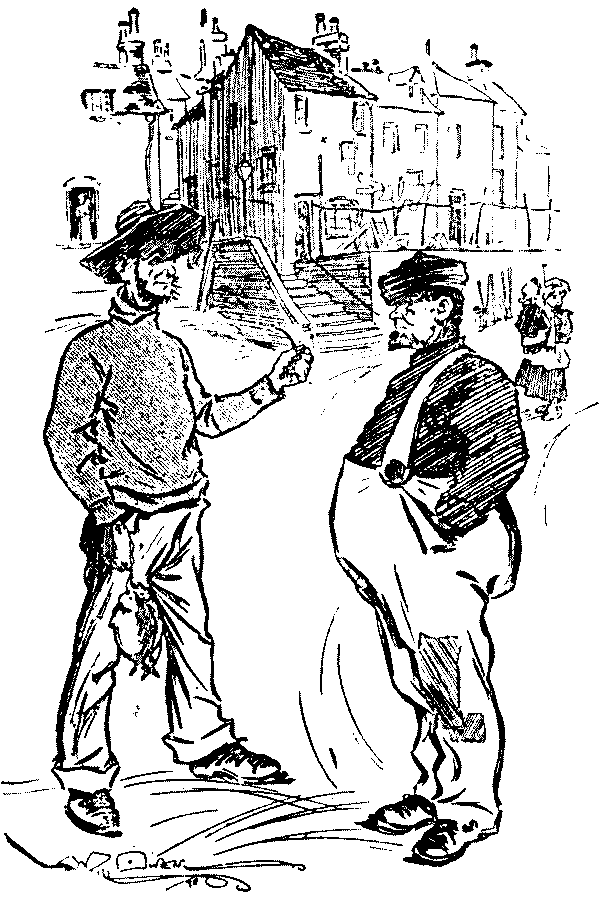
Sweeping Assertion.
"The other night, at the Novelty
Theatre, Mrs. Vere-Jones was gowned simply in a clinging black velvet,
with a cloak of same handsomely trimmed with ermine."—Extract from
Society Journal.
[Pg 22]
DRAMATIC NOTES OF THE FUTURE
[A little cheild is the hero of Everybody's Secret; the curtain
rises upon four little cheildren in Her Own Way; there are
cheildren of various ages in Alice-Sit-by-the-fire.]
Mr. Barrie's new play, The Admirable Crèche, will be presented
to-morrow. We understand that there is a pretty scene in the third act
in which several grown-ups are discovered smoking cigars. It may
confidently be predicted that all the world will rush to the "Duke of
York's" to see this novelty. The Admirable Crèche will be preceded at
8.30 by Bassinette—A Plea for a Numerous Family, a one-act play by
Theodore Roosevelt and Louis N. Parker.
Little Baby Wilkins is making quite a name with her wonderful rendering
of "Perdita" in the Haymarket version of A Winter's Tale. As soon as
actor-manager Wilkins realised the necessity of cutting the last two
acts (in which "Perdita" is grown up) the play was bound to succeed. By
the[Pg 24] way, Mr. E. H. Cooper's new book, "Perditas I have Known," is
announced.
Frankly, we are disappointed in Mr. Pinero's new play, Little Arthur,
produced at Wyndham's last week. It treated of the old old theme—the
love of the hero for his nurse. To be quite plain, this stale triangle,
mother—son—nurse, is beginning to bore us. Are there no other themes
in every-day life which Mr. Pinero might take? Could he not, for
instance, give us an analysis of the mind of a young genius torn between
the necessity for teething and the desire to edit a great daily? Duty
calls him both ways: his duty to himself and his duty to the public.
Imagine a Wilkins in such a scene!
The popular editor of the "Nursery," whose unrivalled knowledge of
children causes him to be referred to everywhere as our greatest
playwright, is a little at sea in his latest play, Rattles. In the
first act he rashly introduces (though by this time he should know his
own limitations) two grown-ups at lunch—Mr. Jones the father, and Dr.
Brown, who discuss Johnny's cough. Now we would point out to Mr. Crouper
that men of their[Pg 26] age would be unlikely to have milk for lunch; and
that they would not say "Yeth, pleath"—unless of Hebraic origin, and
Mr. Crouper does not say so anywhere. Mr. Crouper must try and see
something of grown-ups before he writes a play of this kind again.
We regret to announce that Cecil Tomkins, doyen of actor-managers, is
down again with mumps.
[Pg 23]
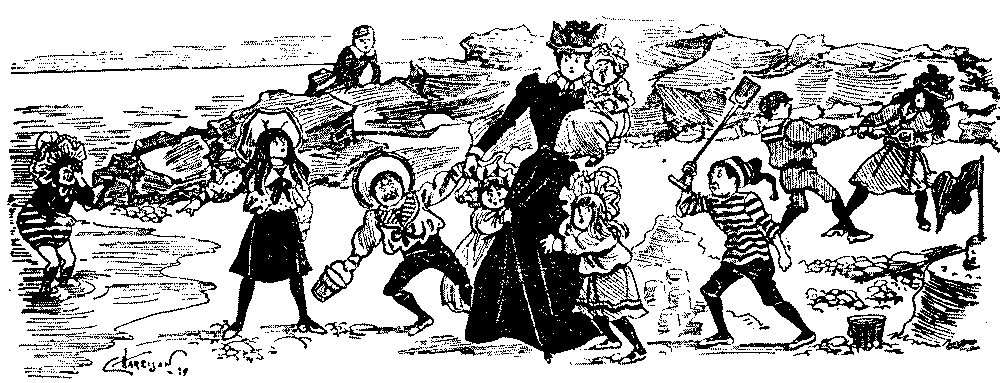
MODERN IMPRESSIONIST ART. A MUSICAL COMEDY
[Pg 25]
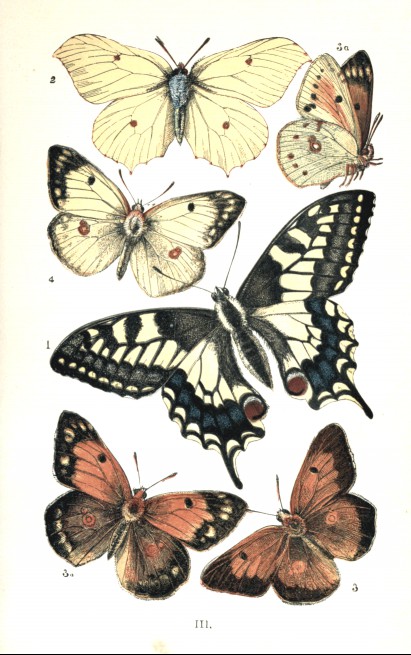
AT THE PREMIÈRE
Lady in Front Row (to her neighbour, towards the end of the second
act). "Who is this man next me, who's just come in,—do you know? He
doesn't seem to be paying the smallest attention to the play!"
Her Neighbour. "Oh, I expect he's a critic. He's probably made up his
mind long ago what he's going to say of the piece; but he's just dropped
in to confirm his suspicions."
No First-Nighter.—First Man in the Street. See the eclipse last
night?
Second Man in the Street. No. Thought it might be crowded. Put off
going till next week.
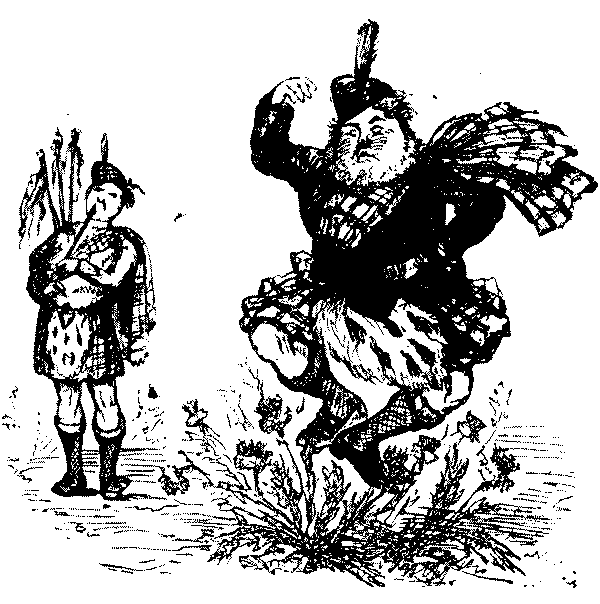
THE BILL OF THE PLAY
[Pg 27]
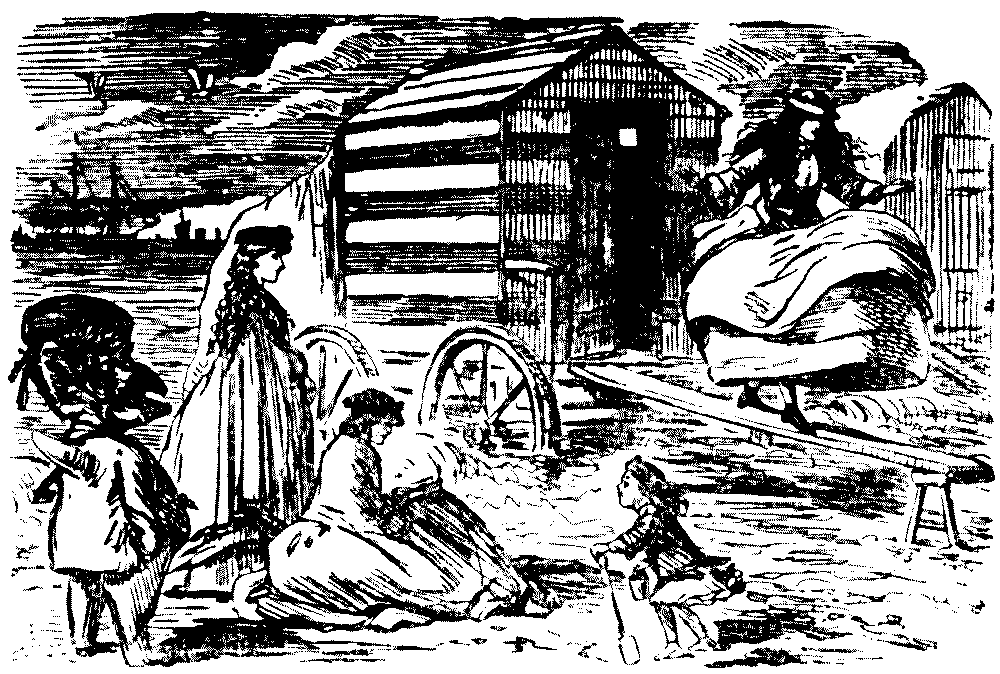
Amenities of the Profession.
Rising Young Dramatist. "Saw your wife in front last night. What did she think of my new
comedy?"
Brother Playwright. "Oh, I think she liked it. She told me she had a
good laugh."
R. Y. D. "Ah—er—when was that?"
B. P. "During the entr'acte. One of the attendants dropped an ice
down her neighbour's neck."
[Pg 28]
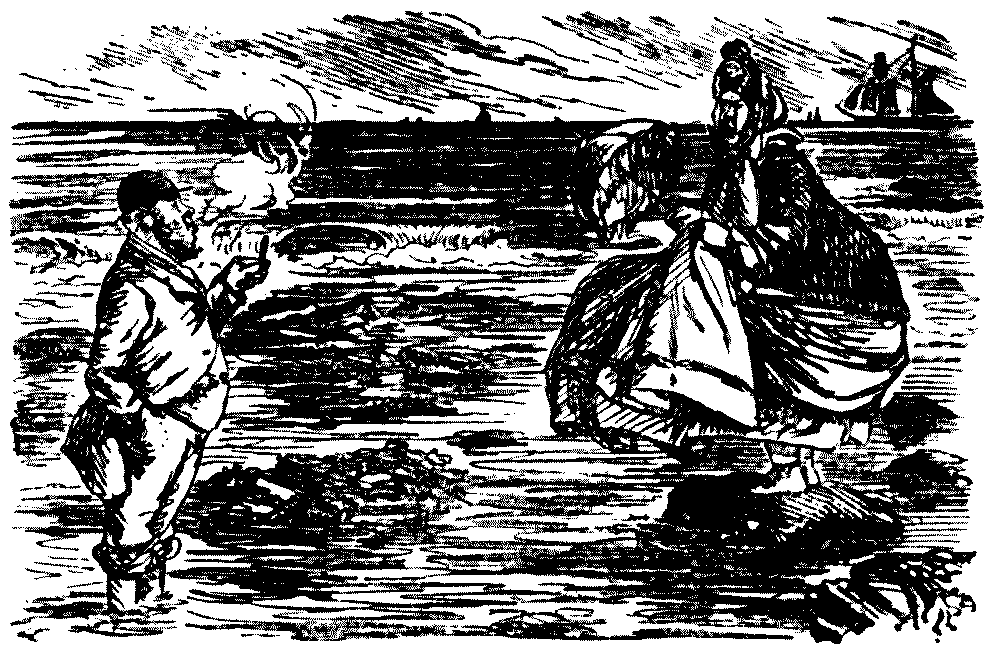
THE HIGHER EDUCATION OF WOMEN
Dora (consulting a playbill). "Only fancy! 'As You Like It' is by
Shakspeare!"
[Pg 29]
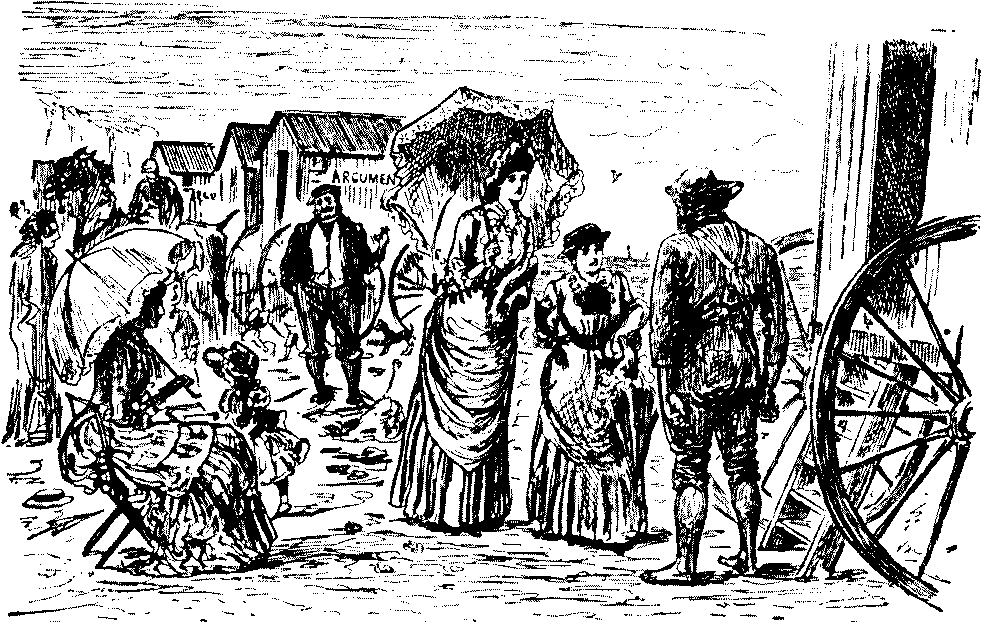
Private Theatricals.
A Rehearsal.—The Captain. "At
this stage of the proceedings I've got to kiss you, Lady Grace. Will
your husband mind, do you think?"
Lady Grace. "Oh no! It's for a charity, you know!"
[Pg 30]
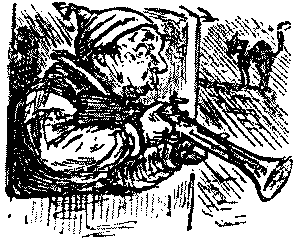
An Infant Roscius.
Stage Manager (interviewing
children with the idea of engaging them for a new play). "Has this
child been on the stage?"
Proud Mother. "No; but he's been on an inquest, and he speaks up
fine!"
[Pg 31]
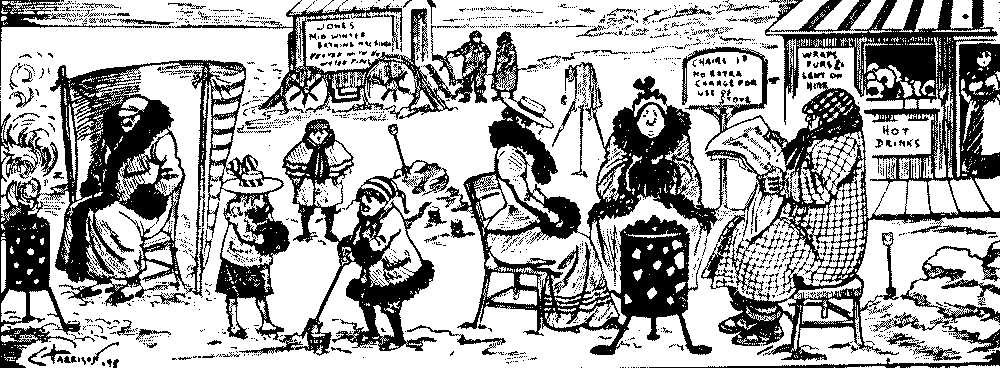
A Soliloquy.
Tragedian. "Cheap. Ha, ha! Why in my time
they threw them at us!"
[Pg 32]
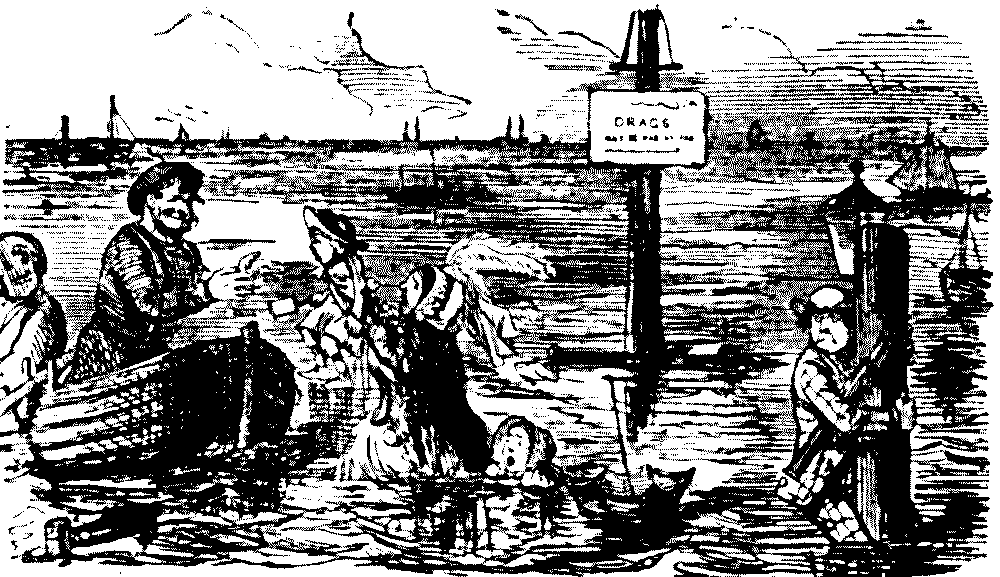
"Well, papa, how did you enjoy the play to-night?"
"Oh, I think I enjoyed it fairly well, my dear. I've got a general sort
of idea that I didn't go to sleep over it!"
[Pg 33]
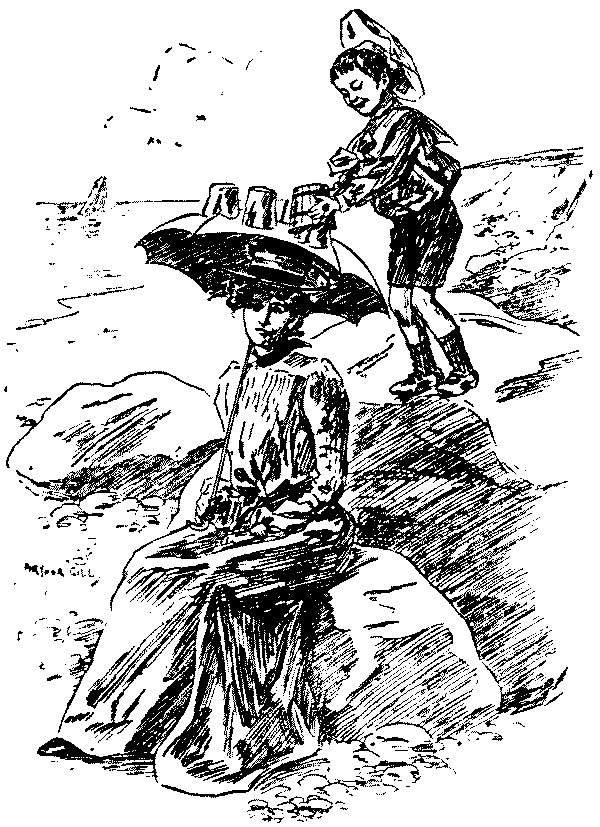
Enthusiastic Lady Amateur. "Oh, what a pity! We've just
missed the first act!"
Languid Friend. "Have we? Ah—rather glad. I always think the chief
pleasure of going to a theatre is trying to make out what the first act
was about!"
[Pg 34]
Theatrical.—When it is announced that an actor will be supported by the
entire company, it is not thereby meant that the said professional is
sustained in his arduous part solely by draughts of Barclay, Perkins and
Co.
made to sit out a play.
"drawers."
Regeneration of the British Drama.—There are at this moment three
English managers in Paris "in search of novelty!" More: three
distinguished members of the Dramatic Authors' Society started for
France last night.
[Pg 35]
A Plant in Season.—Now is the time of year when managers of theatres
show a botanical taste, for there is not one of them who does not do his
best to have a great rush at his doors.
"cast."
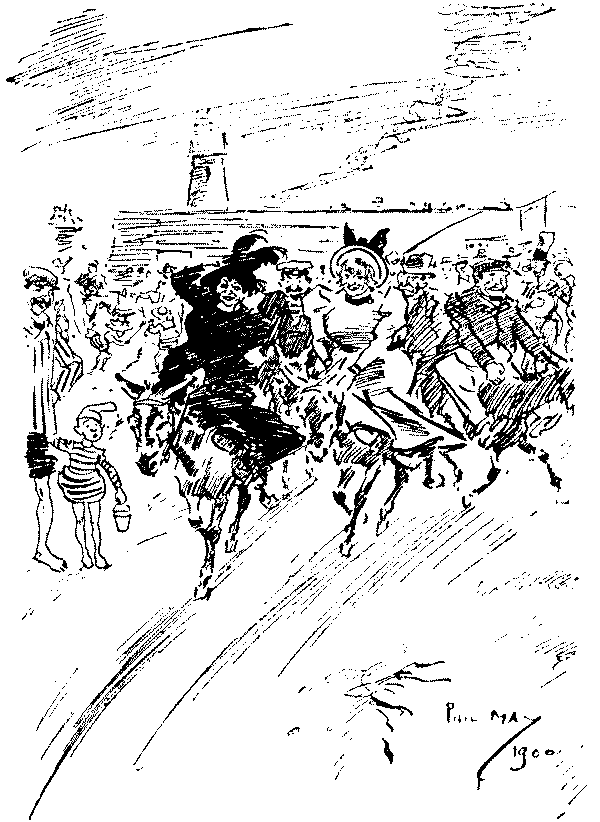
[Pg 36]
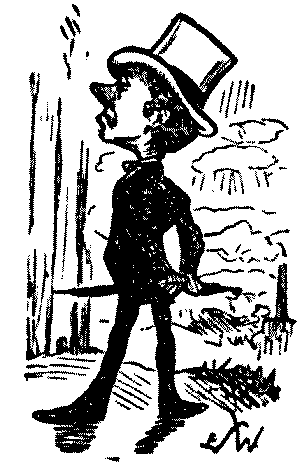
"Shakspeare and the first Quart O"
[Pg 37]
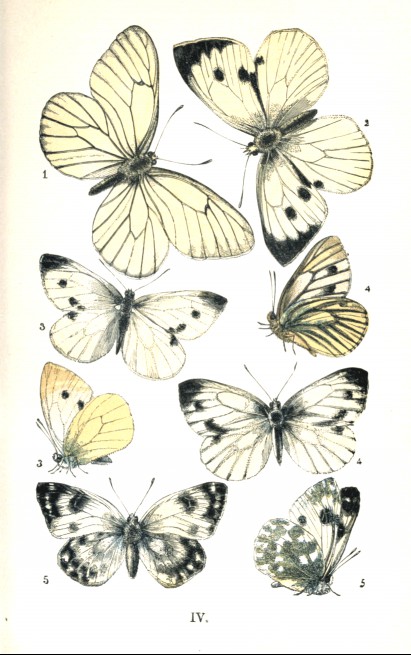
"Shakspeare and the last Quart O"
A Dubious Compliment..—Rector's Wife (after harvest festival).
Well, Mrs. Piggleswade, how did you like the Bishop's sermon?
Mrs. Piggleswade. Oh! ma'am, I ain't been so much upset since my old
man took me to the wariety theayter in London last August twelve-month,
and 'eard a gen'leman sing about his grandmother's cat.
There was a poor actor on the Norwich circuit who squinted most
dreadfully: he was put up on one occasion for "Lear." "We must succeed,"
said the manager, "for there never was a Lear with so strong a
cast."
[Pg 38]
BY DEPUTY
As Shakspeare could not write his plays
(If Mrs. Gallup's not mistaken),
I think how wise in many ways
He was to have them done by Bacon;
They might have mouldered on the shelf,
Mere minor dramas (and he knew it!)
If he had written them himself
Instead of letting Bacon do it.
And if it's true, as Brown and Smith
In many learned tomes have stated,
That Homer was an idle myth,
He ought to be congratulated;
Since, thus evading birth, he rose
For men to worship from a distance:
He might have penned inferior prose
Had he achieved a real existence.
To him and Shakspeare some agree
In making very nice allusions,
But no one thinks of praising me,
For I composed my own effusions:
As others wrote their works divine,
And they immortal thus to day are,
If someone else had written mine
I might have been as great as they are!
[Pg 39]
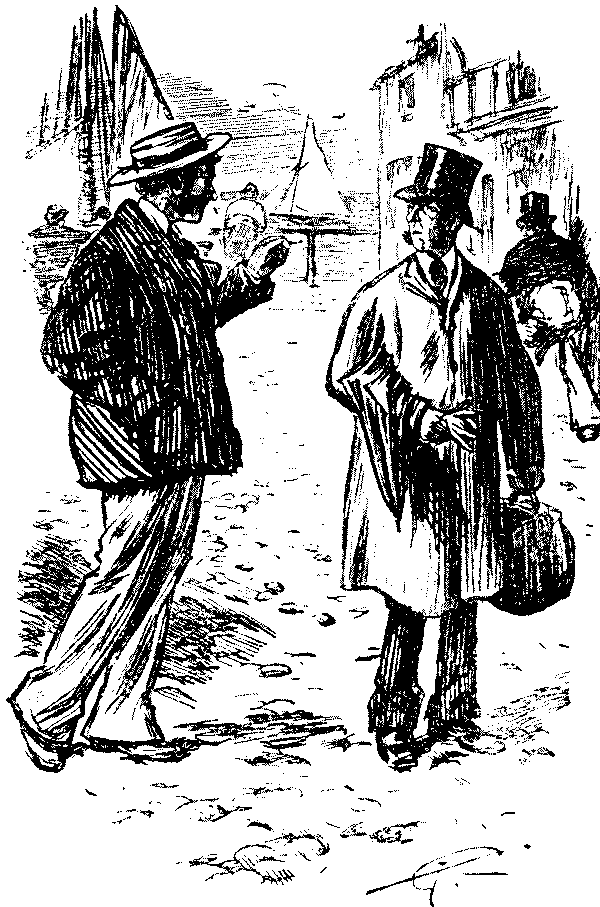
Famous Lion Comique (to his agent, who is not much of
a cigar smoker). "What did you think of that cigar as I give you the
other day?"
Agent. "Well, the first night I liked it well enough. But the second
night I didn't like it so well. And the third I didn't like it at all!"
[Pg 40]
Numerous applications were received by the manager of Covent Garden from
"professionals" wishing to take part in The Forty Thieves. It was not
found possible to offer engagements to the following (amongst others):—
The Thief—who stole a march.
The Thief—in the candle.
The Thief—who was set to catch a thief.
The Thief—who stole the "purse" and found it "trash."
The Thief—who stole up-stairs.
The Thief—of time, alias procrastination, and—
The Thief—who stole a kiss (overwhelming number of applicants).
Berthelda.—Sanguino, you have killed your mother!!!
Fruitwoman.—Any apples, oranges, biscuits, ginger-beer!
(Curtain falls.)
[Pg 41]
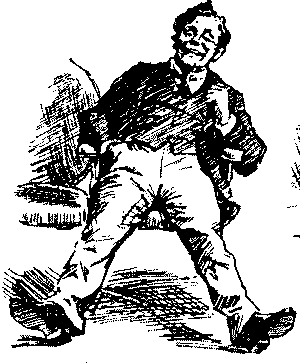 | 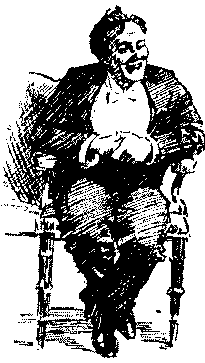 |
The Music-hall | Screaming Farcical Comedy. |
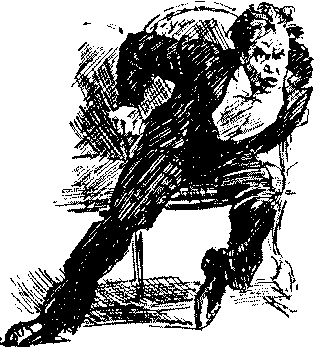 | 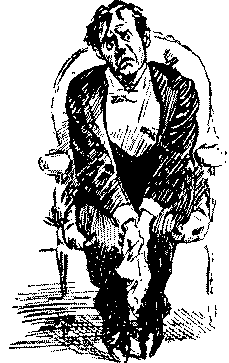 |
A Melodrama at the | A pathetic "Comedy-Drama." |
[Pg 42]
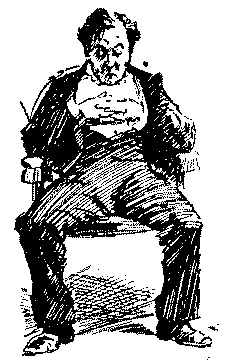 | 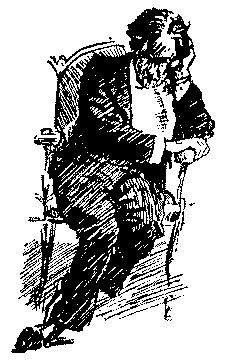 |
Another. | The Opera. |
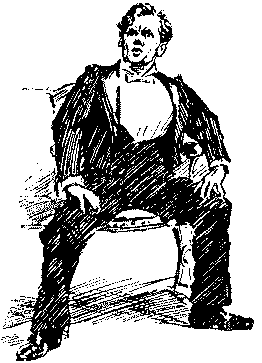 | 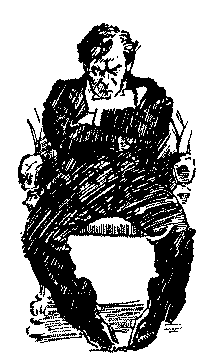 |
A patriotic Drama at the | And |
[Pg 43]
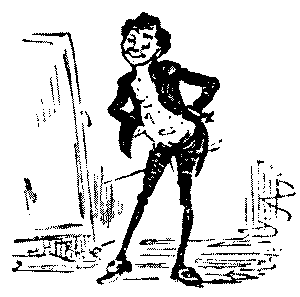 | 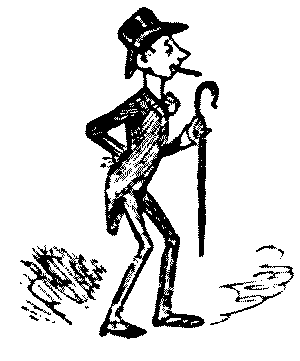 |
Three acts | of Henrik Ibsen. |
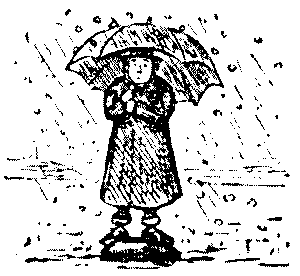
The deplorable issue.
[Pg 44]
"Bishops," said the Rev. Mr. Phillips to the Playgoers' Club, "are not
really so stiff and starchy as they are made out to be. There is a good
heart beneath the gaiters." Calf-love, we presume.
Managers of theatres think differently.
of theatres.
[Pg 45]
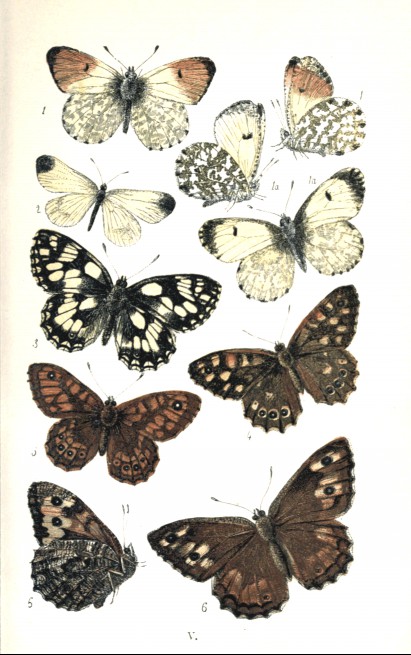
"MOST MUSICAL, MOST MELANCHOLY"
Husband (after the Adagio, to musical wife). "My dear, are we going
to stay to the 'bitter end'?"
[Pg 46]
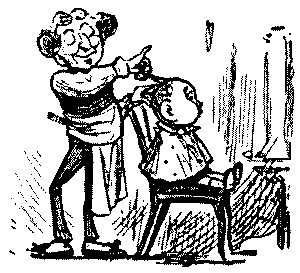
MUSIC OF THE FUTURE. SENSATION OPERA.
Manager (to his Primo Tenore, triumphantly). "My dear fellow, I've
brought you the score of the new opera. We've arranged such a scena
for you in the third act! o' board of the Pirate Screw, after the
keelhauling scene, you know! Heavy rolling sea, eh?—Yes, and we can
have some real spray pumped on to you from the fire-engine! Volumes of
smoke from the funnel, close behind your head—in fact, you'll be
enveloped as you rush on to the bridge! And then you'll sing that lovely
barcarolle through the speaking-trumpet! And mind you hold tight, as the
ship blows up just as you come upon your high D in the last bar!!!"
[Pg 47]
At a Problem Play.—Mr. Dinkershein (eminent critic). How did you
enjoy the piece, Miss MacGuider?
Miss MacGuider. Well, to tell the truth, I didn't know what it was all
about.
Mr. Dinkershein. Excellent. The author gives us so much to think of.
[Pg 48]
Our Shakspearian Society.—In the course of a discussion, Mrs. ——
observed, that she was positive that Shakspeare was a butcher by trade,
because an old uncle of hers had bought lambs' tails from Shakspeare.
novel against his will, is less a playwright than a plagiary.
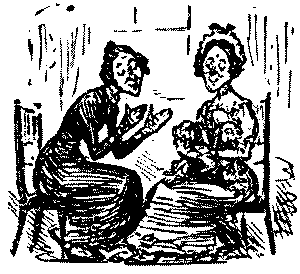
[Pg 49]
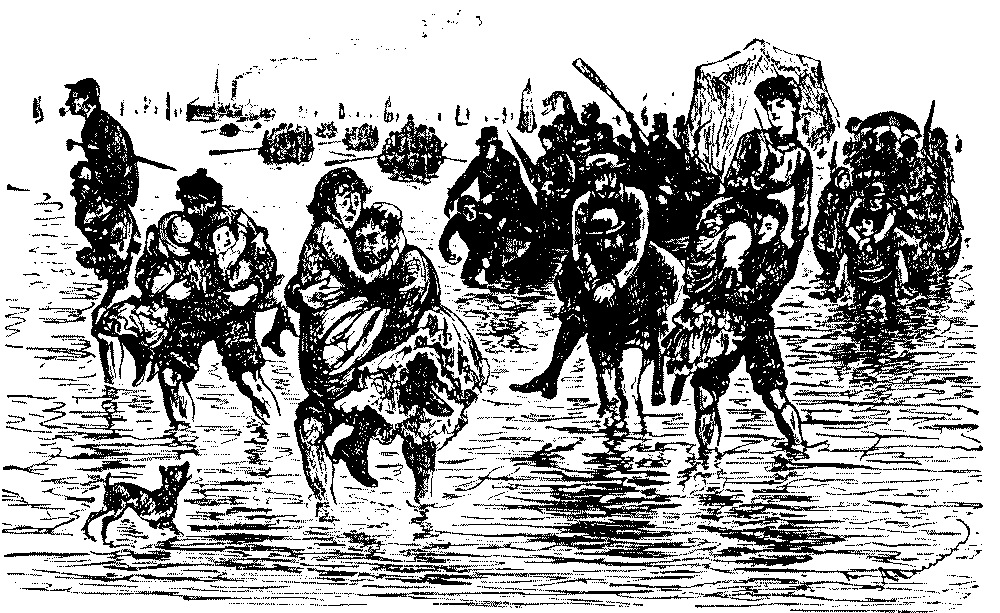
"Cross Old Thing!"
Wife. "I'm going into town now,
dear. Shall I book places for Caste or Much ado about Nothing?"
Husband. "Oh, please yourself, my dear; but I should say we've enough
'Ado about Nothing' at home!"
[Pg 50]
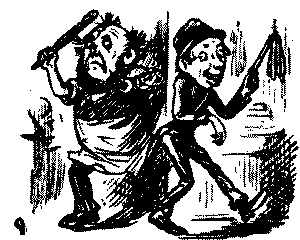
Our Theatricals.
Brown (rehearsing his part as the
"Vicomte de Cherisac"). "Yas, Marie! I've fondly loved ye. (Sobs
dramatically.) 'Tis well—but no mat-tar-r!" Housemaid (to cook,
outside the door). "Lauks, 'Liz'beth, ain't master a givin' it to
missis!"
[Pg 51]
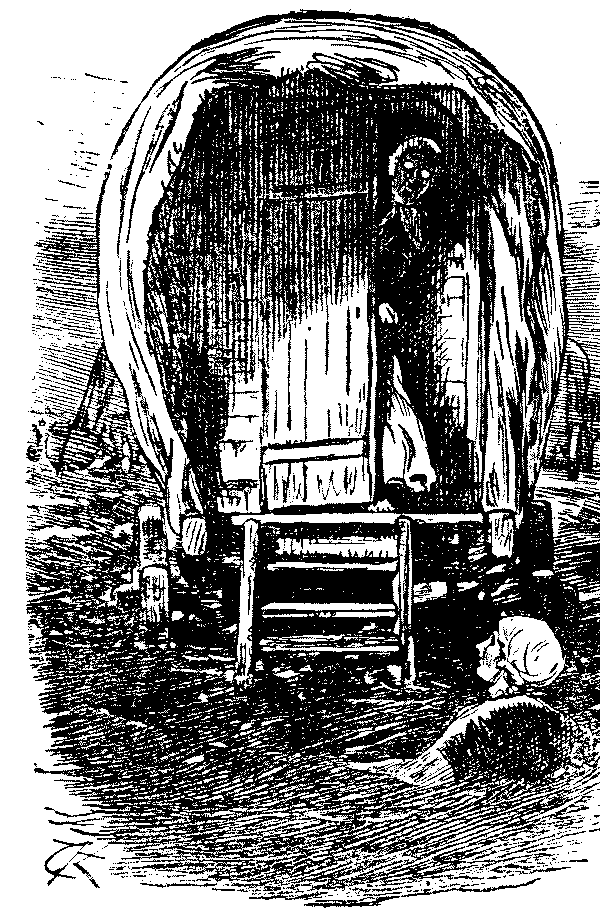
Technical.
First Player ("Juvenile Lead"). Play
Scene—Hamlet. (Deferentially). "What do you think of it?" Second
Player ("First Heavy"). "How precious well them 'supers' are painted,
ain't they?"
[Pg 52]
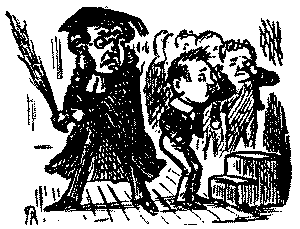
A Double Disappointment.
Stern Hostess (who is giving
private theatricals). "You are very late, Mr. Fitz Smythe. They've
begun long ago!" Languid Person of Importance (who abominates that
particular form of entertainment). "What! You don't mean to say they're
at it still!"
[Pg 53]
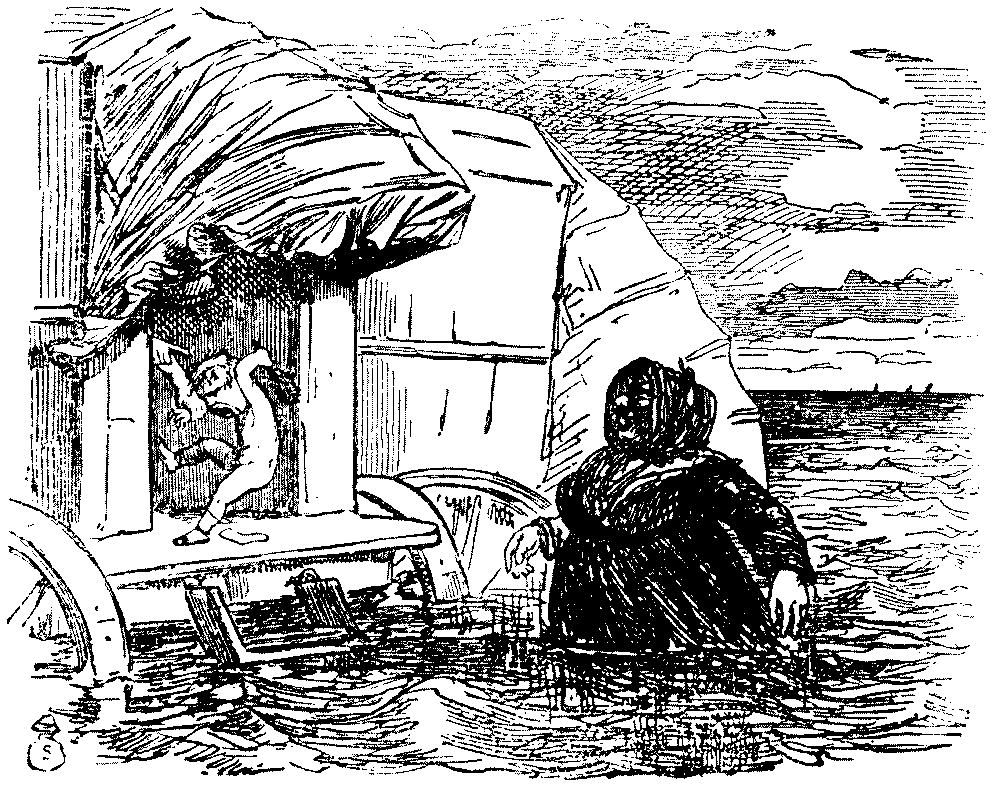
Modest Appeal.
Lady (to big drum). "Pray, my good man,
don't make that horrid noise! I can't hear myself speak!"
[Pg 54]
A MODERN REHEARSAL
Leading Lady (to Stage Manager). Who's that man in the ulster coat
talking to the call-boy?
Stage Manager. Don't know, I'm sure. Perhaps a gas-fitter. Now, as I
was saying, Miss Frisette, I think that all your alterations in the
dialogue are quite up to date, but we must give Splitter a chance for
his cackle. Ah! here he is.
Splitter. Well, old boy, I've worked in that scene to rights, but the
boss thinks that some allusions to Turkey served up with German sausage
would fetch 'em. So you might chuck it in for me.
Stage Man. Of course I will. Capital idea. (Marks prompt-book.) I
wonder who that chap is in the wing?
Splitter. Haven't the faintest idea. Looks like an undertaker. Hallo,
Wobbler, brought your new song?
Wobbler. Yes, it ought to go. And I've a gross or so of capital
wheezes.[Pg 56]
Splitter. No poaching, old chap.
Wobbler. Of course not. I'll not let them off when you're on. Morning,
Miss Skid. Perfect, I suppose?
Miss Skid (brightly). I'm always "perfect." But—(seriously)—I had
to cut all the idiotic stuff in my part, and get Peter Quip of "The
Kangaroo" to put in something up to date. Here's the boss!
Stage Man. Places, ladies and gentlemen.
Mr. Footlyte. Before we begin the rehearsal, I would point out that I
have completely rewritten the second act, and——
The Stranger in the Ulster. But, sir, I beg of you to remember——
Mr. F. Who is that man?
Everybody. We don't know!
Mr. F. (advancing). Who are you, sir, who dare to trespass on my
premises?
The S. in the U. Don't you remember me, Mr. Footlyte?
Mr. F. No, sir, I do not. What's your business?[Pg 57]
The S. in the U. (nervously). I am the author of the piece.
Everybody. Ha! ha! ha!
Mr. F. Then you're not wanted here. (To stage manager.) Jenkins,
clear the stage.
Meant as a Compliment.—Shakspeare Smith (to Miss Lagushe, after
production of his new comedy). And what did you think of my little
piece the other night?
Miss Lagushe. I didn't pay the least attention to the play. All I
thought was, what a cruel ordeal the performance must be for you!
NEO-DRAMATIC NURSERY RHYME
Mrs. Grundy, good woman, scarce knew what to think
About the relation 'twixt drama and drink.
Well, give hall—and theatre—good wholesome diet,
And all who attend will be sober and quiet!
[Pg 55]
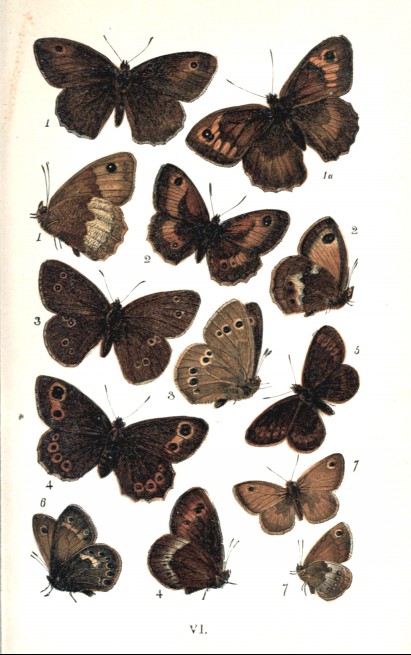
Younger Son of Ducal House. "Mother, allow me to
introduce to you—my wife."
His Wife (late of the Frivolity Theatre). "How do, Duchess? I'm the
latest thing in mésalliances!"
[Pg 58]
HINTS TO AMATEUR PLAYWRIGHTS.
Of the Essence of Drama.—It is not strictly necessary that you should
know much about this, but as a rough indication it may be stated that
whenever two or more persons stand (or sit) upon a platform and talk,
and other persons, whether from motives of ennui, or charity, or malice,
or for copyright purposes only, go and listen to them, the law says it
is a stage-play. It does not follow that anybody else will.
Of the Divers Sorts of Dramatic Writing.—Owing to the competition
nowadays of the variety entertainment you will do well to treat these as
practically amalgamated. For example, start Act I. with an entirely
farcical and impossible marriage, consequent upon a mistake similar to
that of "Mr. Pickwick" about the exact locality of his room; drop into
poetry and pathos in Act II. (waltz-music "off" throughout will show
that it is poetry and pathos); introduce for the first time in Act
III. a melodramatic villain, who endeavours to[Pg 59] elope with the heroine
(already married, as above, and preternaturally conscious of it), and
wind-up Act IV. with a skirt dance and a general display of high
spirits, with which the audience, seeing that the conclusion is at hand,
will probably sympathise. Another mixture, very popular with serious
people, may be manufactured by raising the curtain to a hymn tune upon a
number of obviously early Christians, and, after thus edifying your
audience, cheering them up again with glimpses of attractive young
ladies dressed (to a moderate extent) as pagans, and continually in fits
of laughter. The performance of this kind of composition is usually
accompanied by earthquakes, thunder and lightning; but the stage
carpenter will attend to these.
Of Humour.—Much may be accomplished in this line by giving your
characters names that are easily punned upon. Do not forget, however,
that even higher flights of wit than you can attain by this means will
be surpassed by the simple expedient of withdrawing a chair from behind
a gentleman about to sit down upon it. And this only requires a
stage-direction.
Of Dialogue.—Speeches of more than half a page,[Pg 60] though useful for
clearing up obscurities, are generally deficient in the qualities of
repartee. After exclaiming, "Oh, I am slain!" or words to that effect,
no character should be given a soliloquy taking more than five minutes
in recitation.
Of the Censorship.—This need not be feared unless you are unduly
serious. Lady Godiva, for instance, will be all right for a ball where
the dress is left to the fancy, but you must not envelop her in
problems.
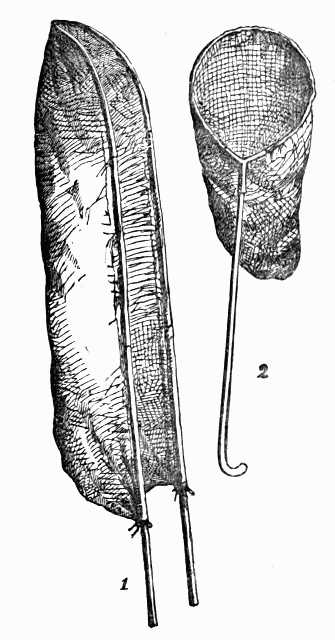
[Pg 61]
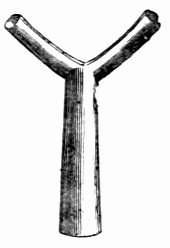
QUITE OF HER OPINION
Gushing Young Woman (to famous actor). "Oh, do you know, Mr.
Starleigh, I'm simply mad to go on the stage!" Famous Actor. "Yes, I
should think you would be, my dear young lady!"
[Pg 62]
THE DECLINE OF THE DRAMA
Mundungus deems the drama is declining,
Yet fain would swell the crowded playwright ranks.
The secret of his pessimist opining,
Is—all his dramas are declined—with thanks!
CONTRIBUTION TOWARDS NURSERY RHYMES
'Tis the voice of the prompter,
I hear him quite plain;
He has prompted me twice,
Let him prompt me again.
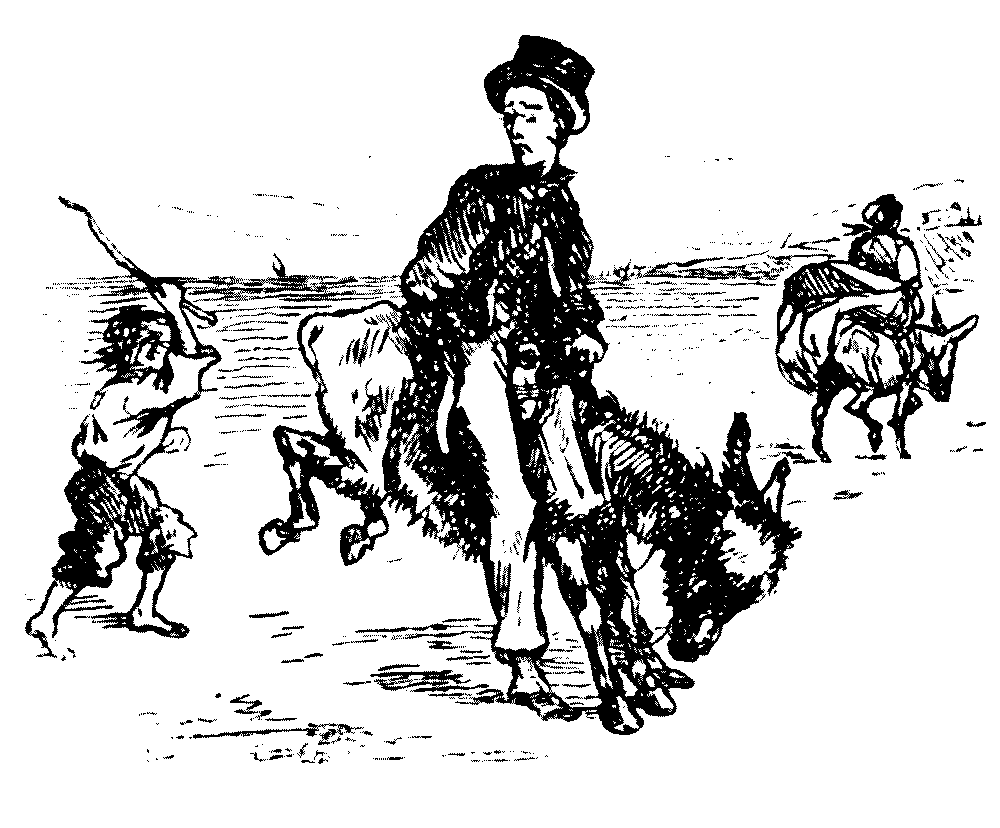
[Pg 63]
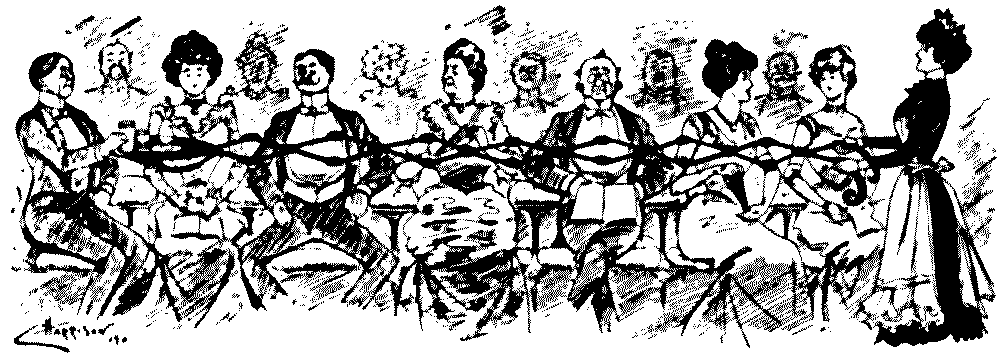
A suggestion to the refreshment departments of our
theatres, much simpler than the old method of struggling by, and would
prevent the men going out between the acts.
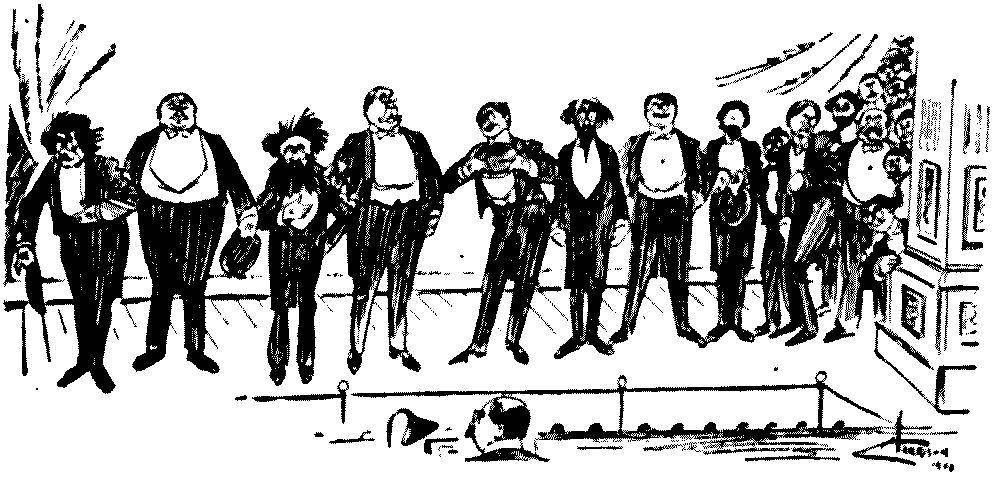
First night of musical comedy. The authors called before
the curtain.
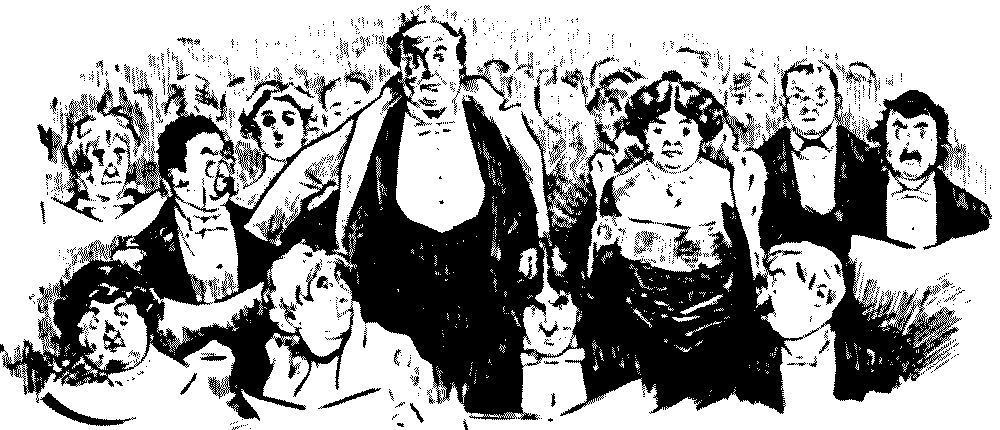
Jones (arriving in the middle of the overture to
"Tristan und Isolde"—quite audibly). "Well, thank goodness we're in
plenty of time!"
[Pg 64]
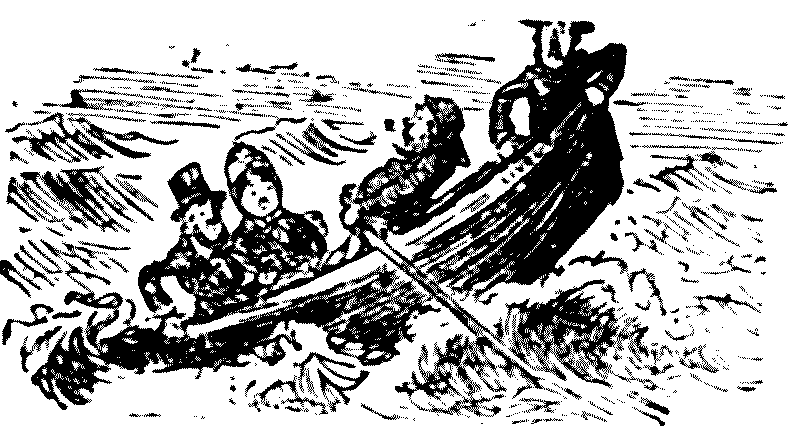
IN THE STALLS
Agents.—"Posters of the sea and land."
Quid pro Quo.—Actor-Manager (to Dramatic Author). What I want is a
one-part piece.
Dramatic Author. That's very easily arranged. You be number one, and
"part" to me.
[Pg 65]
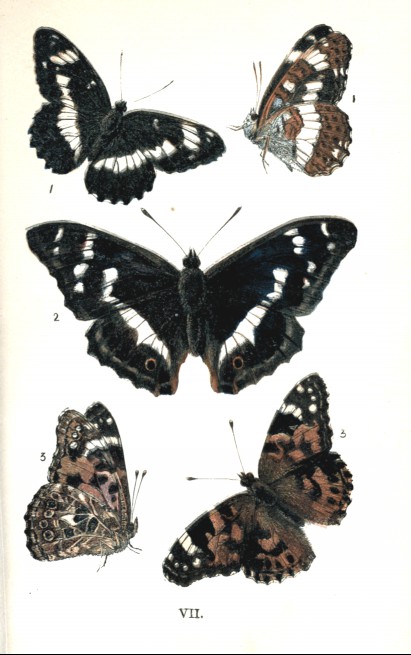
IN THE STALLS
Araminta. Why, dearest, do you call those witticisms, which the
comedians deliver with such ready humour, "gags"?
Corydon (the playwright). Because they always stifle the author.
[Pg 66]
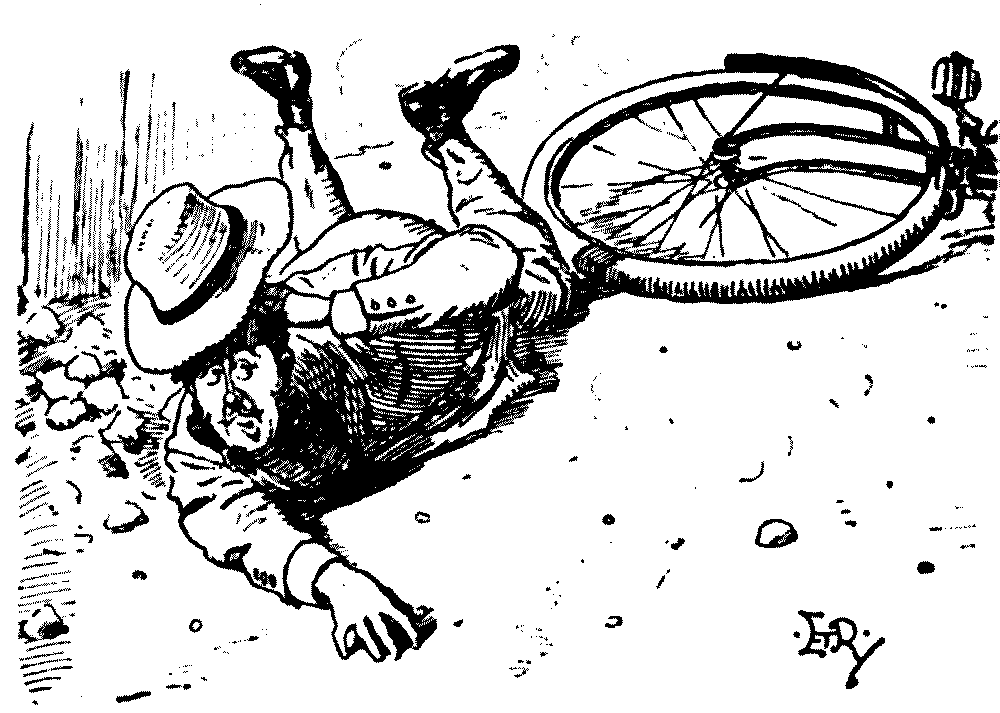
MITIGATING CIRCUMSTANCES
Sangazur, Senior. "Look here, what's all this nonsense I hear about
your wanting to marry an actress?"
Sangazur, Junior. "It's quite true, sir. But—er—you can have no
conception how very poorly she acts!"
[Pg 67]
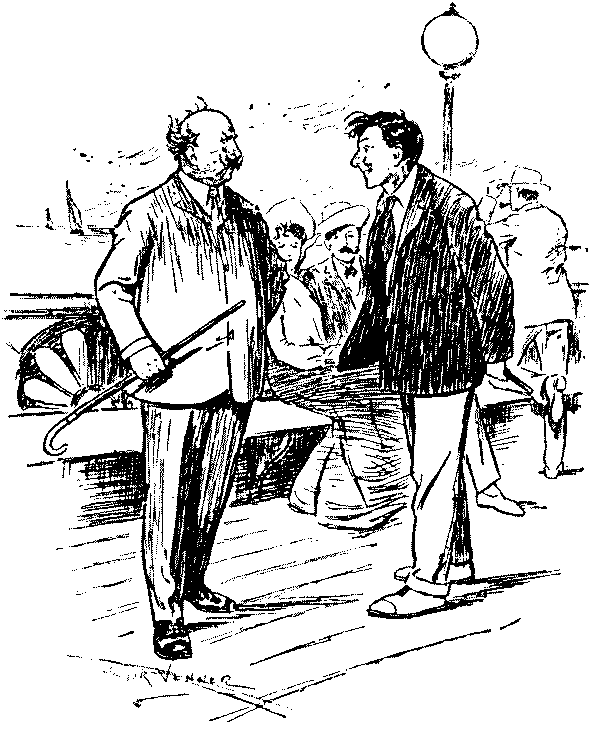
A Studied Insult.
Box-Office Keeper at the Imperial
Music-Hall (to Farmer Murphy, who is in town for the Islington Horse
Show). "Box or two stalls, sir?" Murphy. "What the dev'l d'ye mane?
D'ye take me an' the missus for a pair o' proize 'osses? Oi'll have two
sates in the dhress circle, and let 'em be as dhressy as possible,
moind!"
[Pg 68]
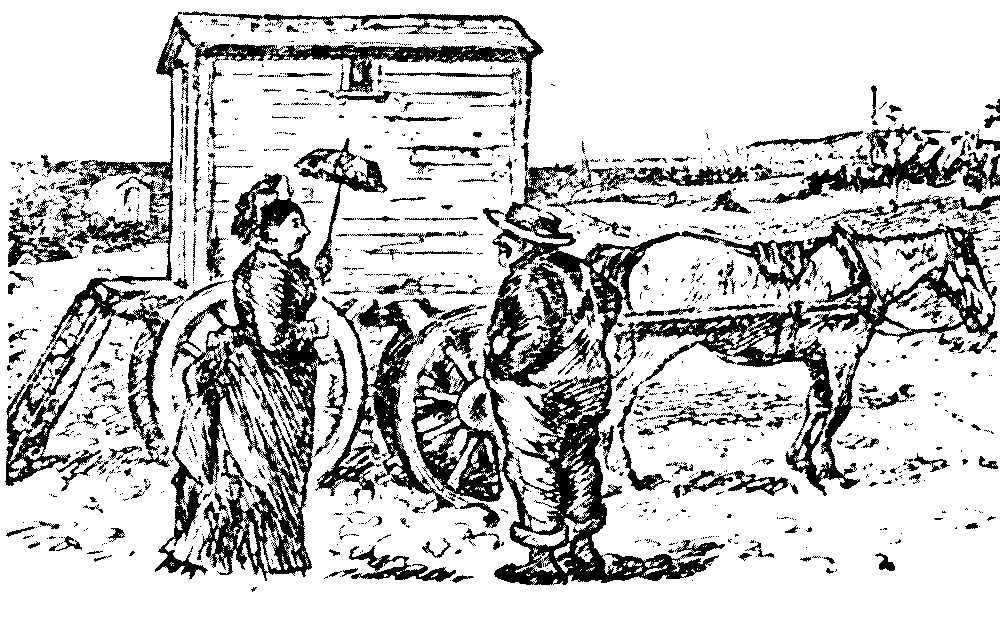
"The Sleeping Beauty."
"Nervous? oh dear no! I only
acted once in private theatricals, Mr. Jones, and, although it was an
important part, I had nothing to say!" "Really? What was the part?"
"Can't you guess?"
[Pg 69]
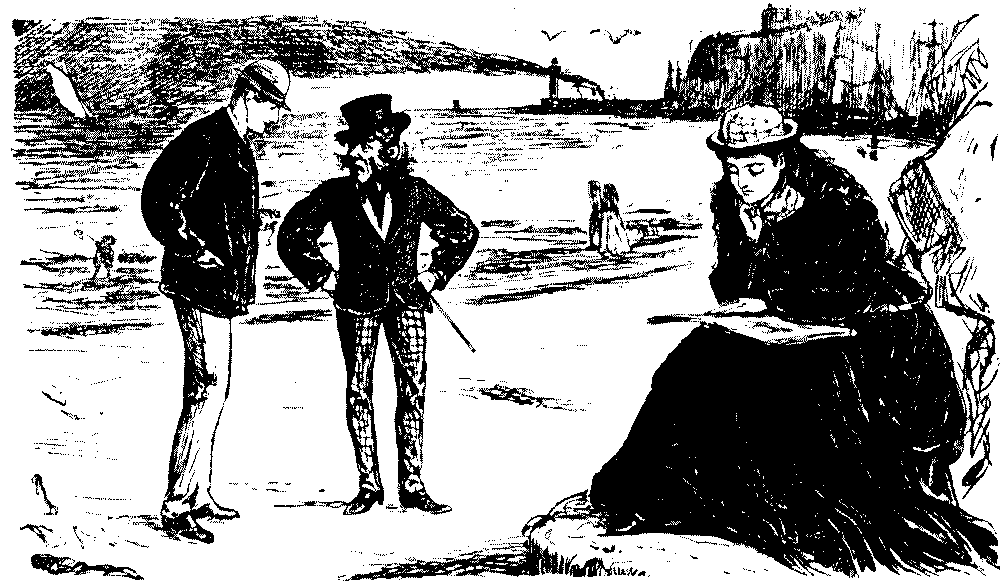
Collaborateurs.
Jennings and Bellamy, the famous
dramatists, planning one of those thrilling plays of plot and passion,
in which (as everybody knows) Jennings provides the inimitable broad
humour, and Bellamy the love-scenes and the tragic deaths. (Bellamy is
the shorter of the two.)
[Pg 70]
WHY I DON'T WRITE PLAYS
Because it is so much pleasanter to read one's work than to hear it on
the stage.
Because publishers are far more amiable to deal with than
actor-managers.
Because "behind the scenes" is such a disappointing place—except in
novels.
Because why waste three weeks on writing a play, when it takes only
three years to compose a novel?
Because critics who send articles to magazines inviting one to
contribute to the stage, have no right to dictate to us.
Because a fairly successful novel means five hundred pounds, and a
fairly successful play yields as many thousands—why be influenced by
mercenary motives?
Because all novelists hire their pens in advance for years, and have no
time left for outside labour.
And last, and (perhaps) not least, Why don't I send in a play? Because I
have tried to write one, and find I can't quite manage it!
[Pg 71]
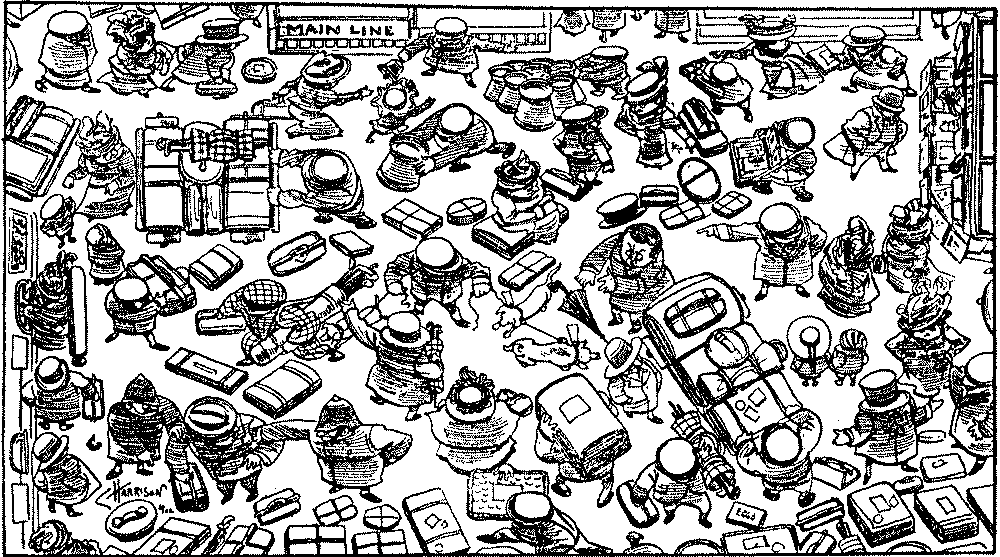
Her First Play.
Mamma (who has taken Miss Effie, as a
great treat, to a morning performance). "Hush, dear! You mustn't talk!"
Miss Effie (with clear sense of injustice, and pointing to the stage).
"But, mummy,—they're talking!"
[Pg 72]
Q. When are the affairs of a theatre likely to assume a somewhat fishy
aspect? A. When there's a sole lessee.
Mamma. Because the stalls are the undressed circle, dear.
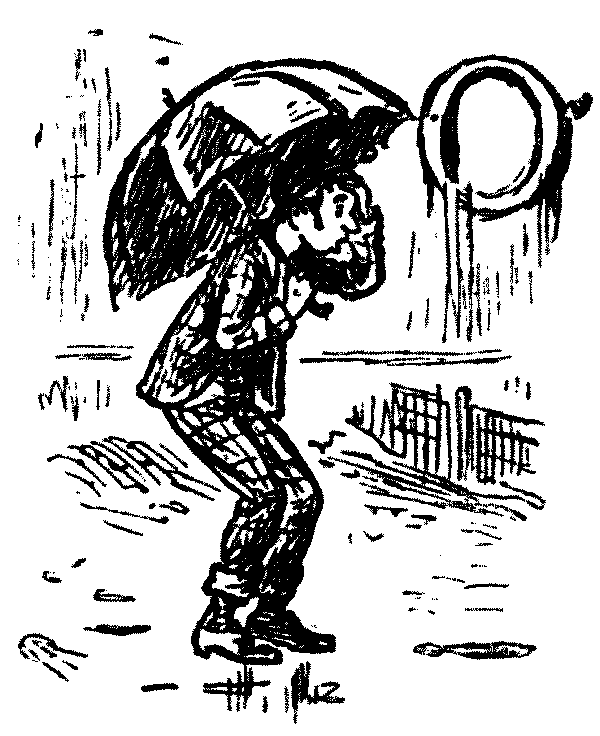
Mellow drammer
[Pg 73]
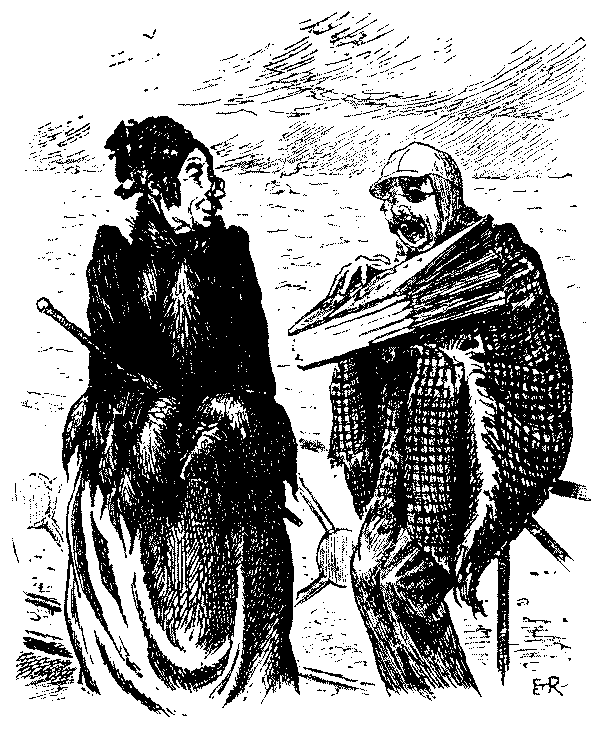
First Night of an Unappreciated Melodrama.
He. "Are we
alone?" Voice from the Gallery. "No, guv'nor; but you will be
to-morrow night."
[Pg 74]
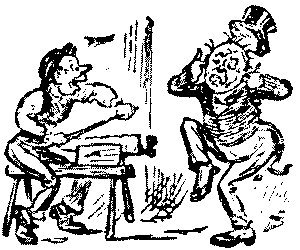
THE COMMISSARIAT
Our Bandmaster (to purveyor of refreshments). "We must hev beef
sangwitches, marm! Them ham ones make the men's lips that greasy, they
can't blow!"
[Pg 75]
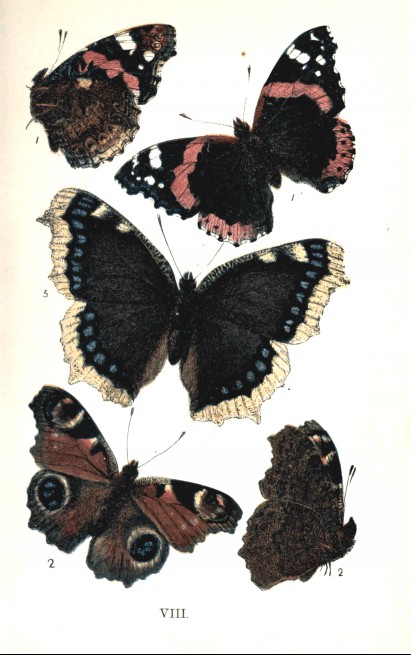
A NOTE AND QUERY
Wife (given to literature and the drama). "George, what is the meaning
of the expression, 'Go to!' you meet with so often in Shakspeare and the
old dramatists?"
Husband (not a reading man). "'Don't know, I'm sure, dear, unless——
Well,—p'raps he was going to say—— but thought it wouldn't sound
proper!"
[Pg 76]
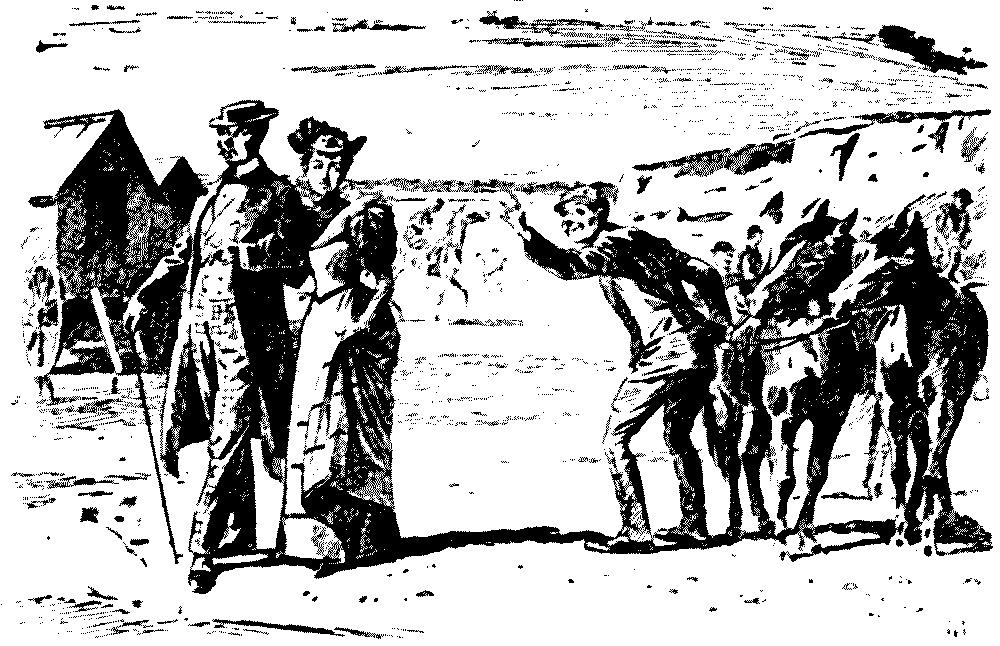
MR. PUNCH'S OPERA BOX
[Pg 77]
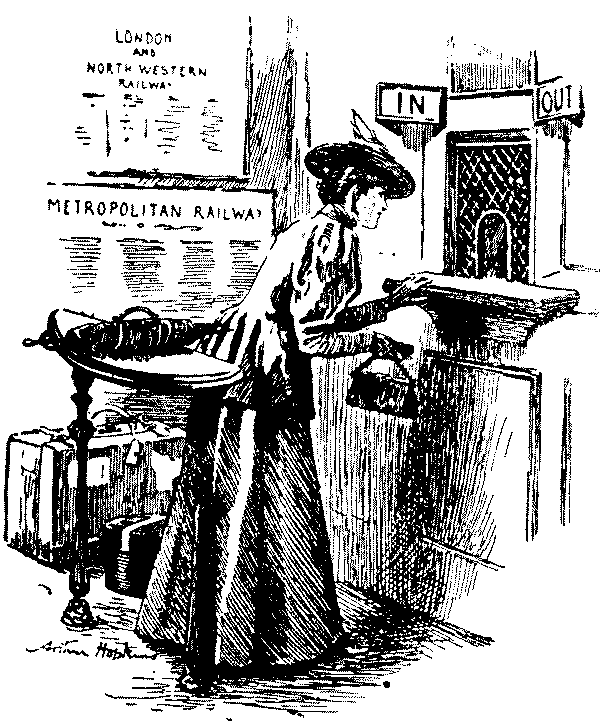
SIC VOS NON VOBIS DRAMATISATIS, WRITERS!
Wife of his Bosom (just home from the play). "And then that darling
Walter Lisson, looking like a Greek god, drew his stiletto, and
delivered, oh! such an exquisite soliloquy over her tomb—all in blank
verse—like heavenly music on the organ!"
He. "Why, he's got a voice like a raven, and can no more deliver blank
verse than he can fly."
She. "Ah, well—it was very beautiful, all the same—all about love
and death, you know!"
He. "Who wrote the piece, then?"
She. "Who wrote the piece? Oh—er—well—his name's sure to be on the
bill somewhere—at least I suppose it is!"
[Pg 78]
From our General Theatrical Fund.—Why would a good-natured dramatic
critic be a valuable specimen in an anatomical museum? Because he takes
to pieces easily.
MEM. BY A MANAGER
To say "boo" to a goose requires some doing.
In theatres 'tis the goose who does the "booing,"
And though a man may do the best he can, sir,
Anser will hiss, though hissing may not answer!
REVISED VERSION OF SHAKSPEARE
"A Poor player,
Who struts and frets his hour on the stage,
And then—goes in society."
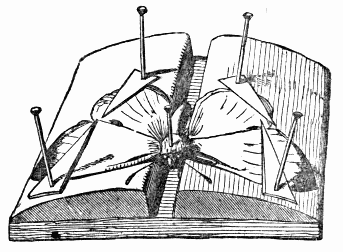
A solo on the horn
[Pg 79]
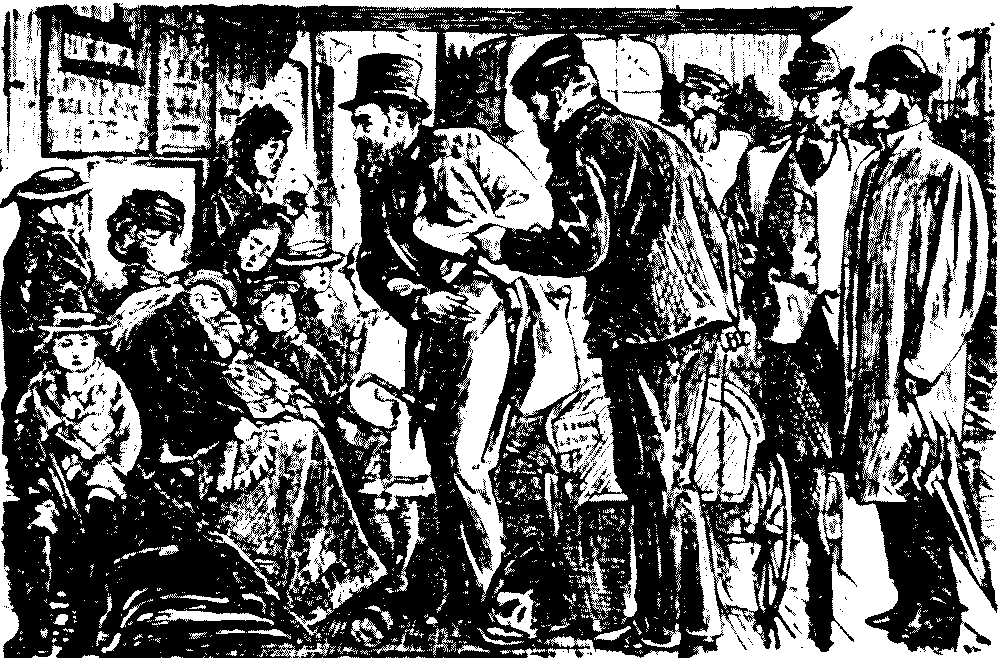
After the Performance.
Rupert the Reckless (Tompkins, a
distinguished amateur from town). "Now, I call it a beastly shame,
Jenkins; you haven't ordered that brute of yours off my togs, and you
know I can't go back to the inn like this."
[Pg 80]
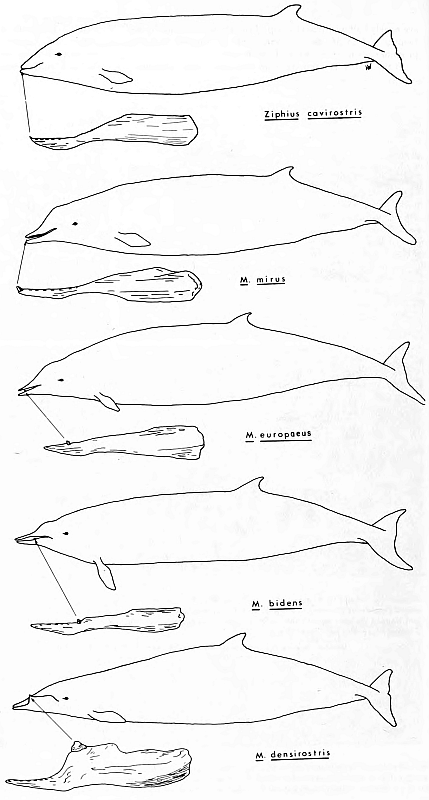
SCENES FROM MR. PUNCH'S PANTOMIME.
Scene I.—The Tragic
Mews
[Pg 81]
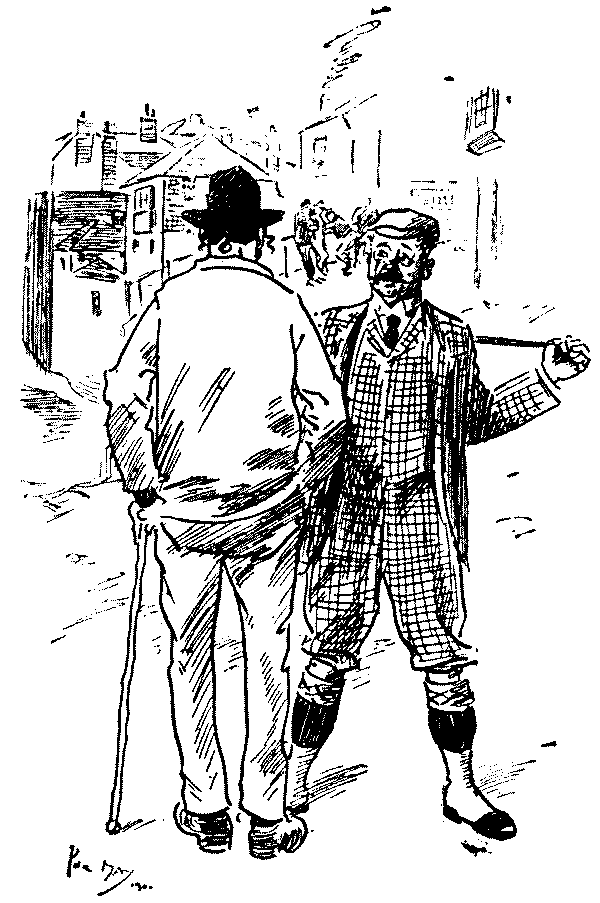
SCENES FROM MR. PUNCH'S PANTOMIME.
Scene II.—The Comic
Mews
[Pg 82]
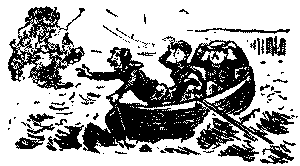
Ambiguous.
First Actress. "Oh, my dear, I'm feeling so
chippy! I think I shall send down a doctor's certificate to-night, to
say I can't act." Second Ditto. "Surely a certificate isn't necessary,
dear?"
[Pg 83]
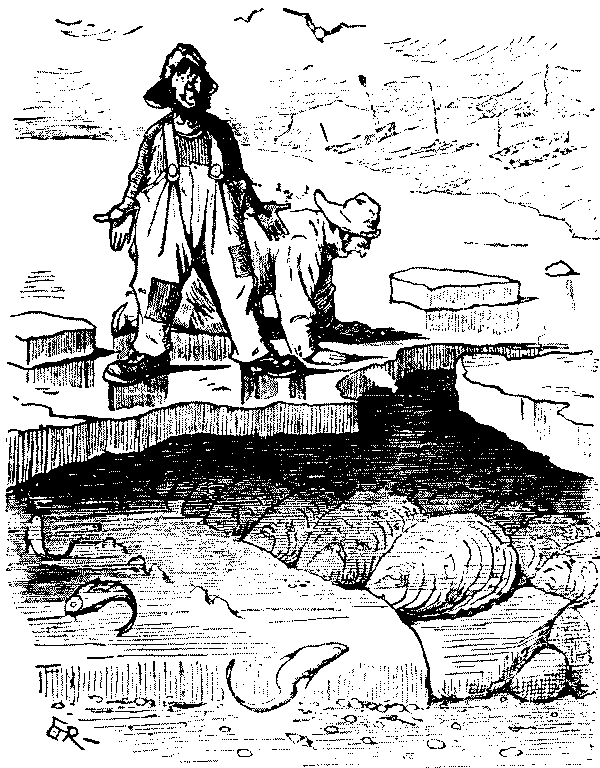
Tenor (at amateur concert). "It's my turn next, and I'm
so nervous I should like to run away. Would you mind accompanying me,
Miss Brown?"
[Pg 84]
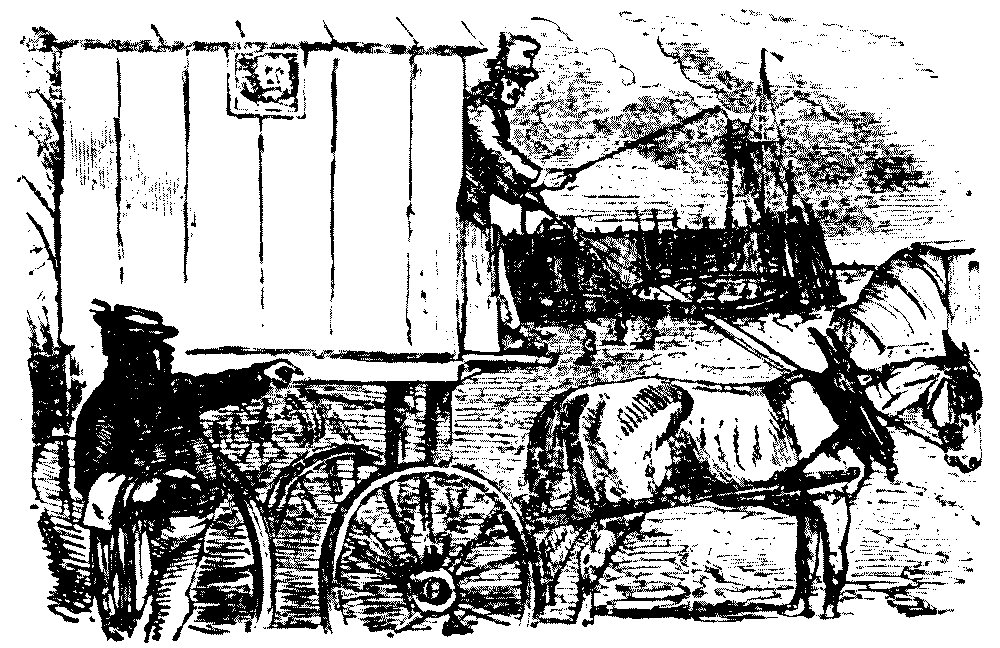
Mrs. Smith. "This is a very unpleasant piece, don't you
think? There's certainly a great deal to be done yet in the way of
elevating the stage." Mr. Jones (who hasn't been able to get a glimpse
of the stage all the afternoon). "Well—er—it would come to much the
same thing if you ladies were to lower your hats!"
[Pg 85]
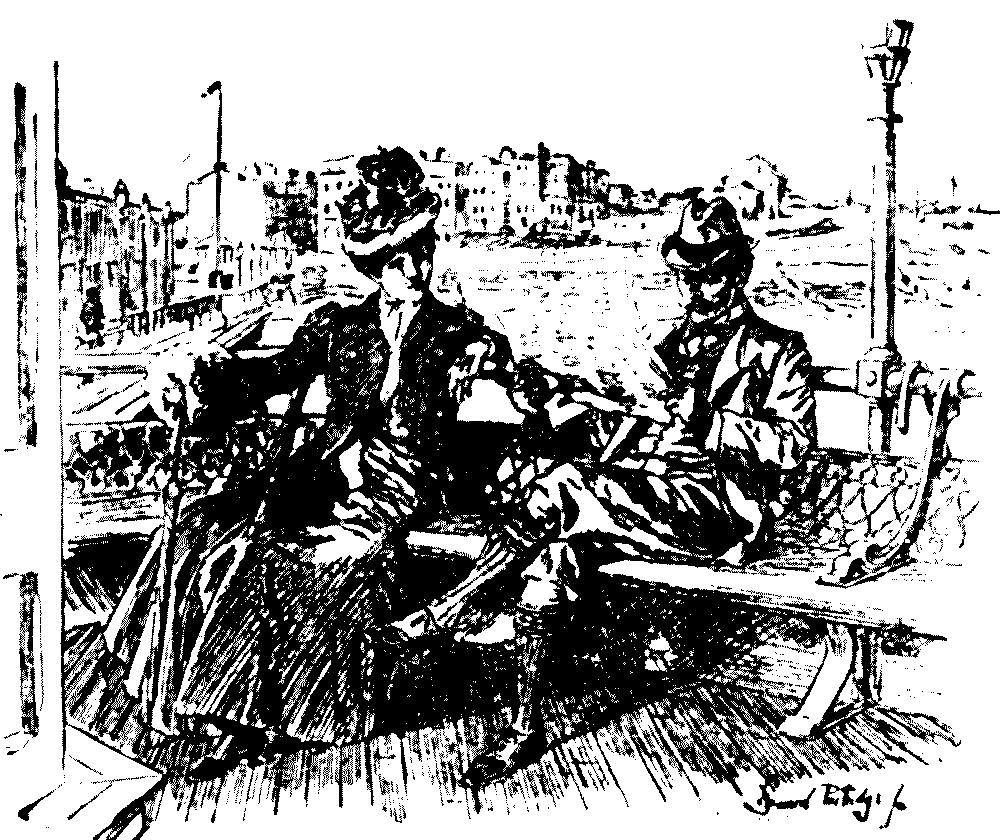
Our Theatricals.
The Countess. "Will this cruel war
never end? Day after day I watch and wait, straining every nerve to
catch the sound of the trumpet that will tell me of my warrior's return.
But, hark! what is that I hear?"
[Stage direction.—"Trumpet faintly heard in distance." But we hadn't
rehearsed that, and didn't explain the situation quite clearly to the
local cornet-player who helped us on the night.
[Pg 86]
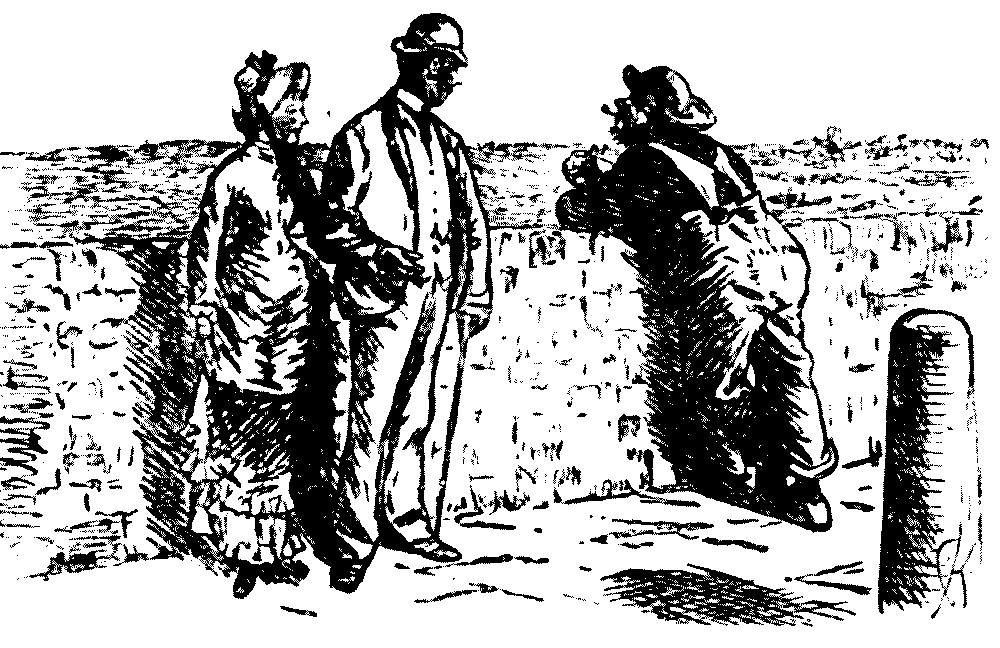
Master Jackey having seen a "professor" of posturing, has
a private performance of his own in the nursery.
[Pg 87]
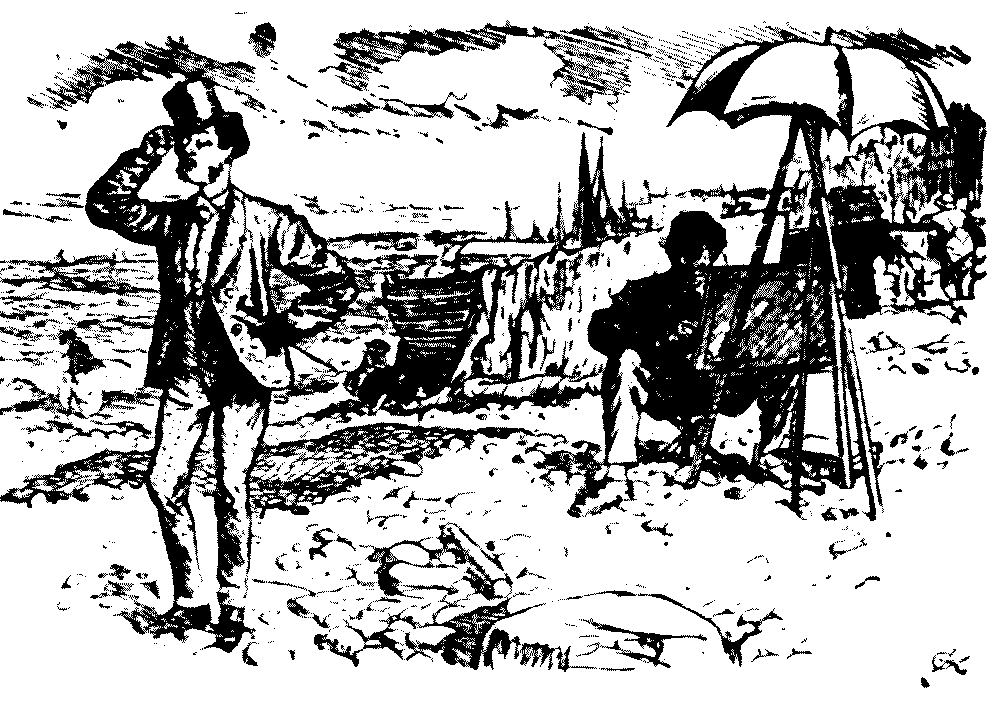
Mazeppa. "Again he urges on his wild career!!!"
[Pg 88]
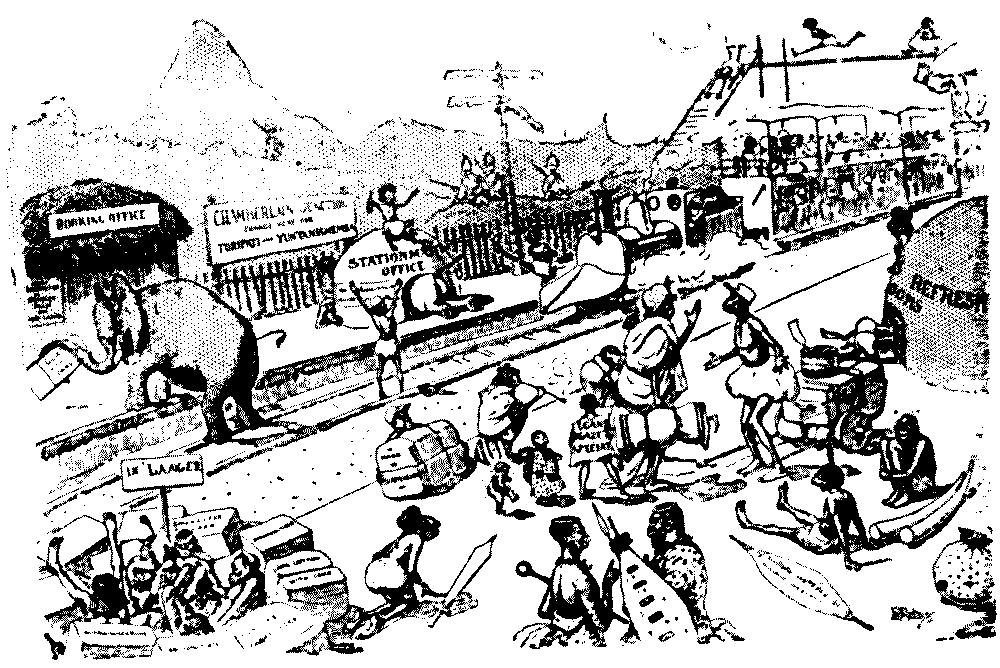
Distinguished Amateurs. The Actor.
Billy Wapshot. "I say, look here,
you know! They've cast me for the part of Sir Guy Earliswoodde, an
awful ass that everyone keeps laughing at! How the dickens am I to act
such a beastly part as that?—and how am I to dress for it, I
should like to know?" Brown (stage manager). "My dear fellow, dress
just as you are!—and as for acting, be as natural as you
possibly can! It will be an immense success!"
[Pg 89]
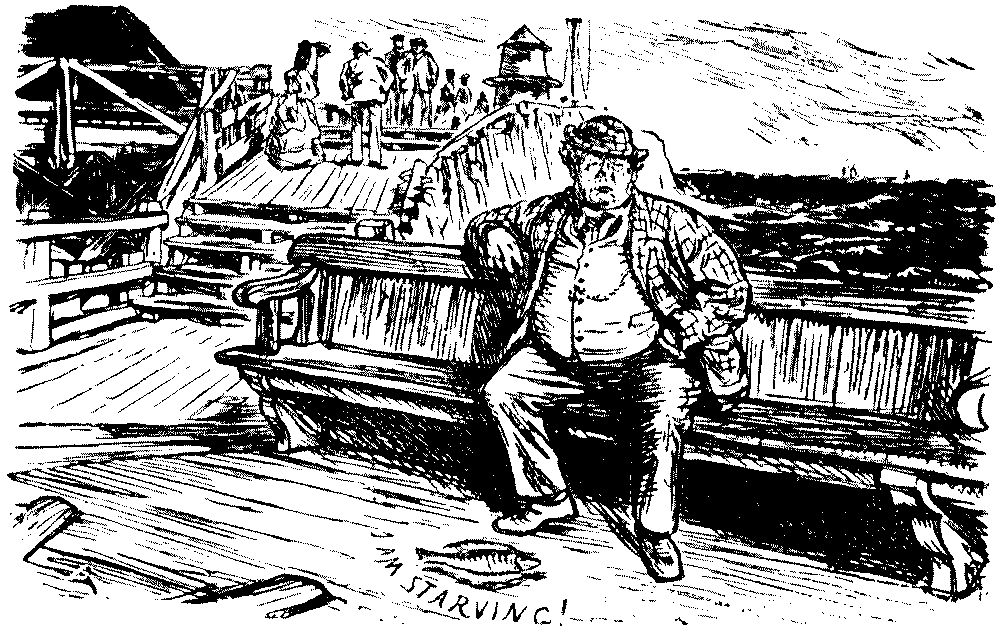
Distinguished Amateurs. The Jeune Premier.
"What, Eleanor? You know Sir Lionel Wildrake, the handsomest,
wittiest, most dangerous man in town! He of whom it is said that no
woman has ever been known to resist him yet!" "The same, Lilian! But
hush! He comes——"
[Enter Colonel Sir Lionel Wildrake.
[Pg 90]
Windsor as an order for the stalls.
Unintelligible.—"The Mumbles."
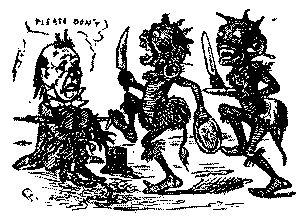
Music by handle.
[Pg 91]
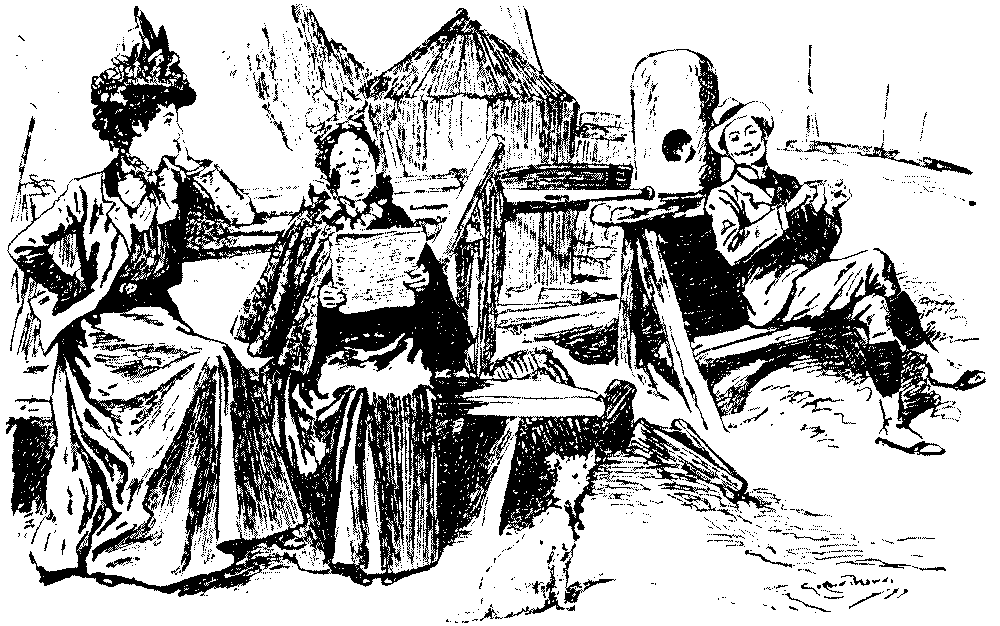
THE SWING OF THE PENDULUM
"And pray, Duke, what possible objection can you have to my being a
suitor for the hand of your daughter Gwendolen? I—a—think I may
flatter myself that, as a leading gentleman at the Parthenon Theatre, my
social position is at least on a par with your Grace's!"
"I admit that to be the case just at present—but the social position
of an actor may suffer a reaction, and a day may come when even the
leading gentleman at the Parthenon may sink to the level of a Bishop,
let us say, and be no longer quite a suitable match for a daughter of
the—a—House of Beaumanoir!"
[Pg 92]
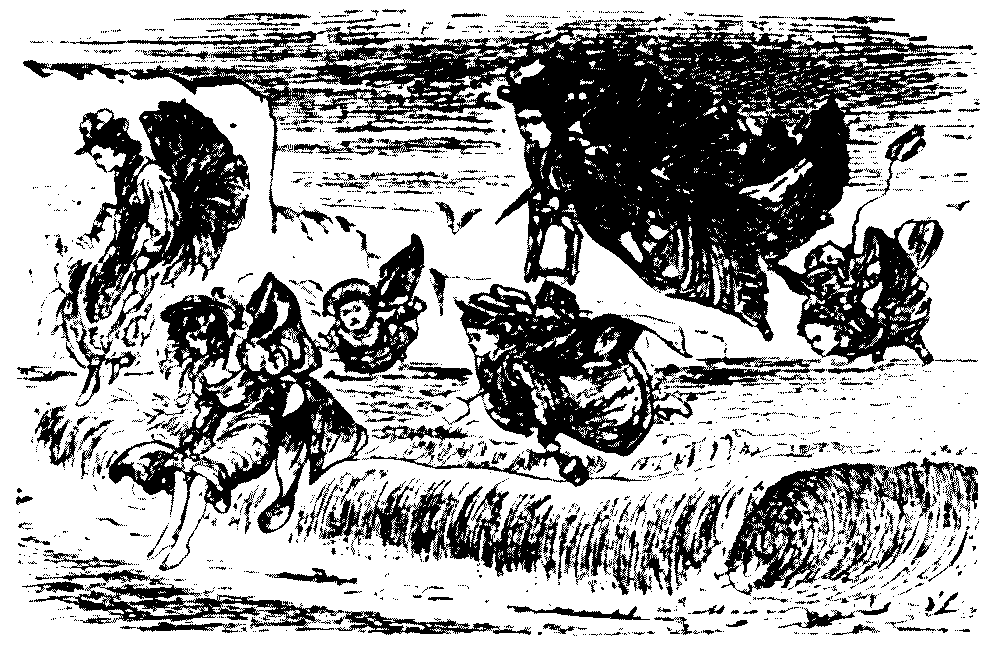
Turning a Phrase.
Dramatic Author. "What the deuce do
you mean by pitching into my piece in this brutal manner? It's
shameful!" Dramatic Critic. "Pitching into it? No, no, no, dear old
man—you'll see how pleased I was, if you'll only read between the
lines!"
[Pg 93]
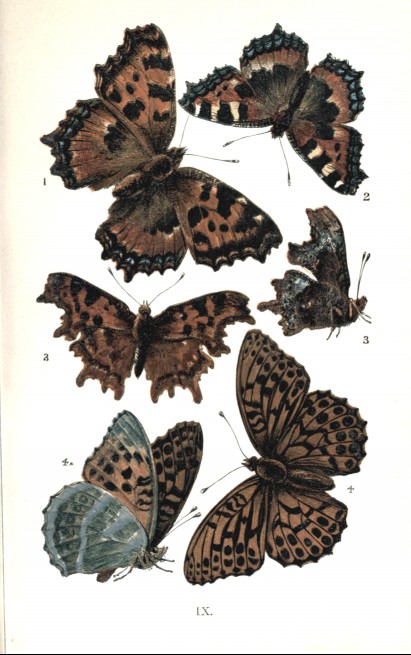
Scene—
A Booth in the Wild West
The curtain has just fallen on the first act of the "Pirates of the
Pacific."
Author. "What is the audience shouting for?"
Manager. "They're calling for the author."
Author. "Then hadn't I better appear?"
Manager. "I guess not. They've got their revolvers in their hands!"
[Pg 94]
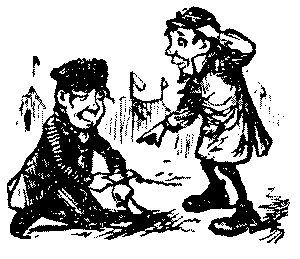
"Men Were Deceivers Ever"
First Counter Tenor. "Scritchy, I think your wife's waiting for you at
our entrance."
Second Counter Tenor. "Oh, then, let's go out at the bass door!"
[Pg 95]
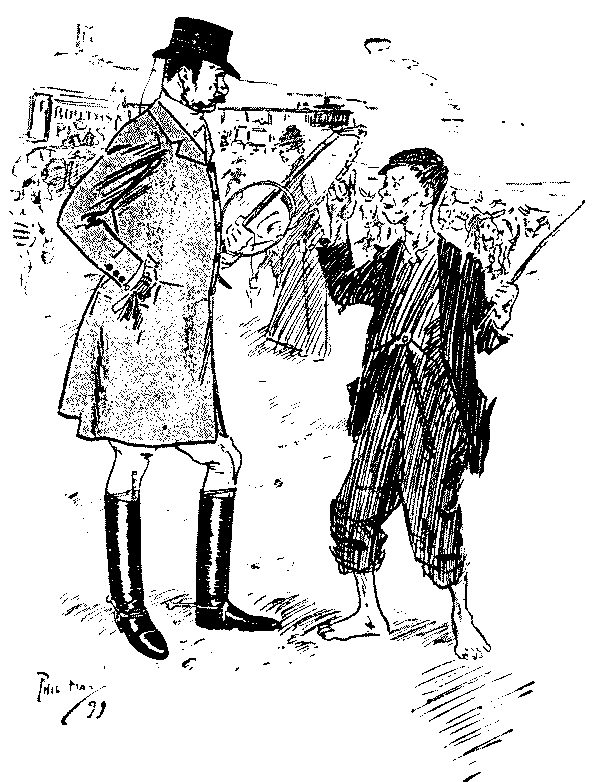
The Commentators.
First Quidnunc (in an ecstasy).
"I've just been writing to the 'New Shakspeare Society.' 'Believe I've
made a discovery—that Horatio was Hamlet's father!" Second
Quidnunc (enchanted). "You don't say so!" First Quidnunc. "My dear
sir, doesn't Hamlet, when he handles Yorick's skull, address
Horatio, 'And smelt so, pa'? I think that's conclusive!!"
[Pg 96]
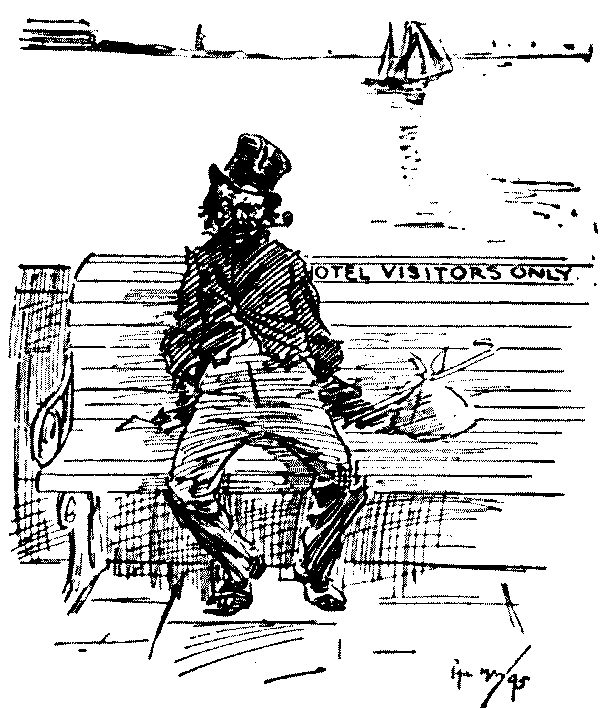
A Disenchantment
Very Unsophisticated Old Lady (from the extremely remote country).
"Dear me! He's a very different-looking person from what I had
always imagined!"
[Pg 97]
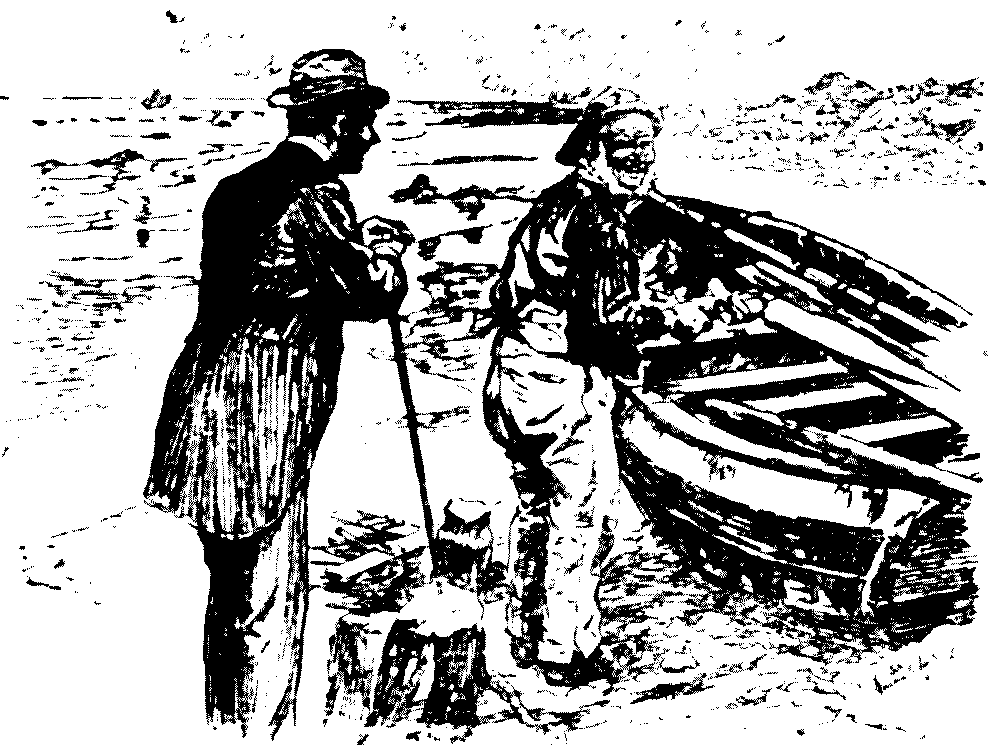
"JUST HINT A FAULT"
Little Tommy Bodkin takes his cousins to the gallery of the Opera
Pretty Jemima (who is always so considerate). "Tom, dear, don't you
think you had better take off your hat, on account of the poor people
behind, you know?"
[Pg 98]
THE MOAN OF A THEATRE-MANAGER
Who gets, by hook or crook, from me
Admittance free, though well knows he
That myriads turned away will be?
The Deadhead.
Who, while he for his programme pays
The smallest silver coin, inveighs
Against such fraud with eyes ablaze?
The Deadhead.
Who to his neighbour spins harangues,
On how he views with grievous pangs
The dust that on our hangings hangs?
The Deadhead.
Who, in a voice which rings afar,
Declares, while standing at the bar,
Our drinks most deleterious are?
The Deadhead.
Who, aye withholds the claps and cheers
That others give? Who jeers and sneers
At all he sees and all he hears?
The Deadhead.
Who loudly, as the drama's plot
Unfolds, declares the tale a lot
Of balderdash and tommy-rot?
The Deadhead.[Pg 100]
Who dubs the actors boorish hinds?
Who fault with all the scenery finds?
Who with disgust his molars grinds?
The Deadhead.
Who spreads dissatisfaction wide
'Mongst those who else with all they spied
Had been extremely satisfied?
The Deadhead.
Who runs us down for many a day,
And keeps no end of folks away
That else would for admittance pay?
The Deadhead.
Who keeps his reputation still,
For recompensing good with ill
With more than pandemonium's skill?
The Deadhead.
Who makes the bankrupt's doleful doom
In all its blackness o'er me loom?
Who'll bring my grey head to the tomb?
The Deadhead.
[Pg 99]
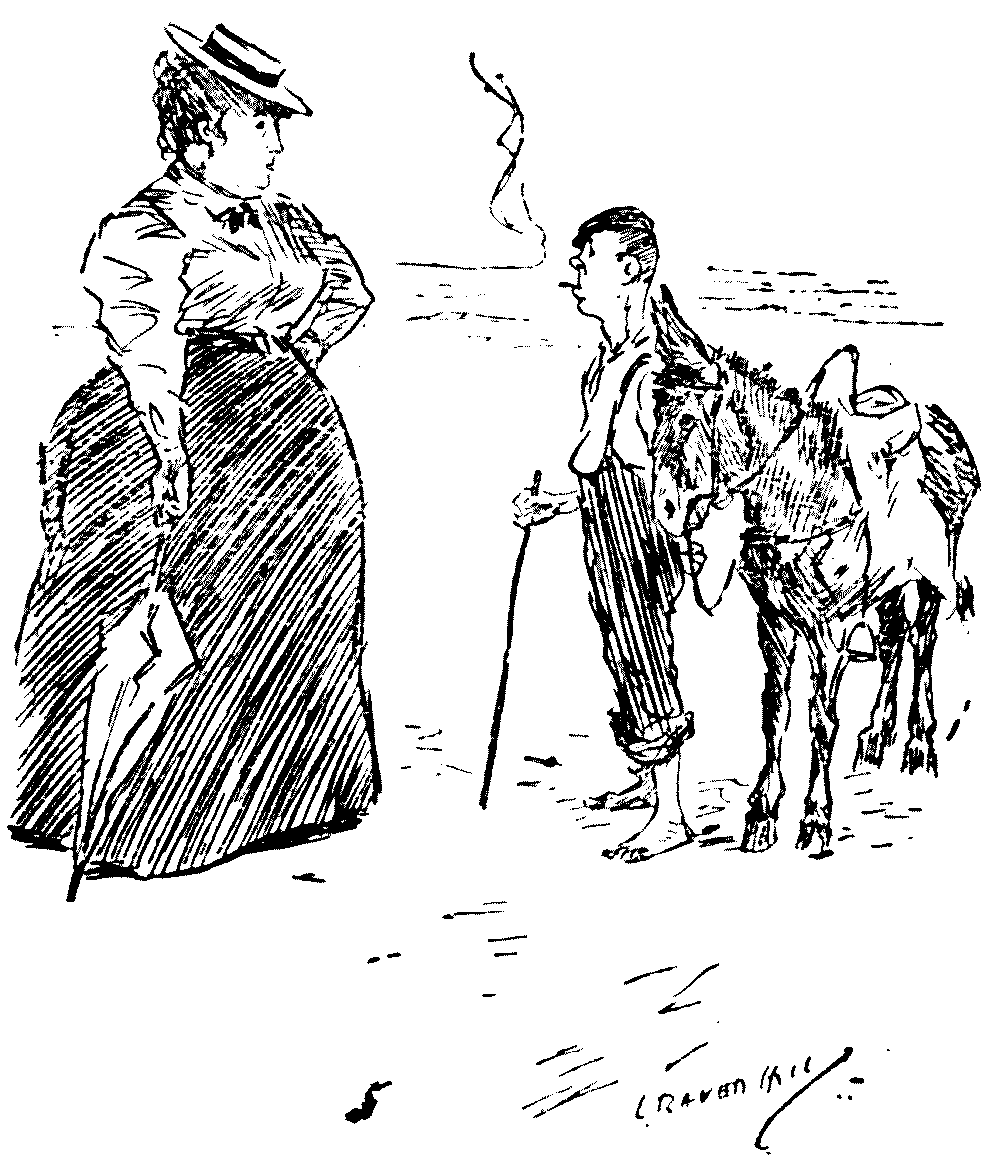
Ibsen in Brixton.
Mrs. Harris. "Yes, William, I've
thought a deal about it, and I find I'm nothing but your doll and
dickey-bird, and so I'm going!"
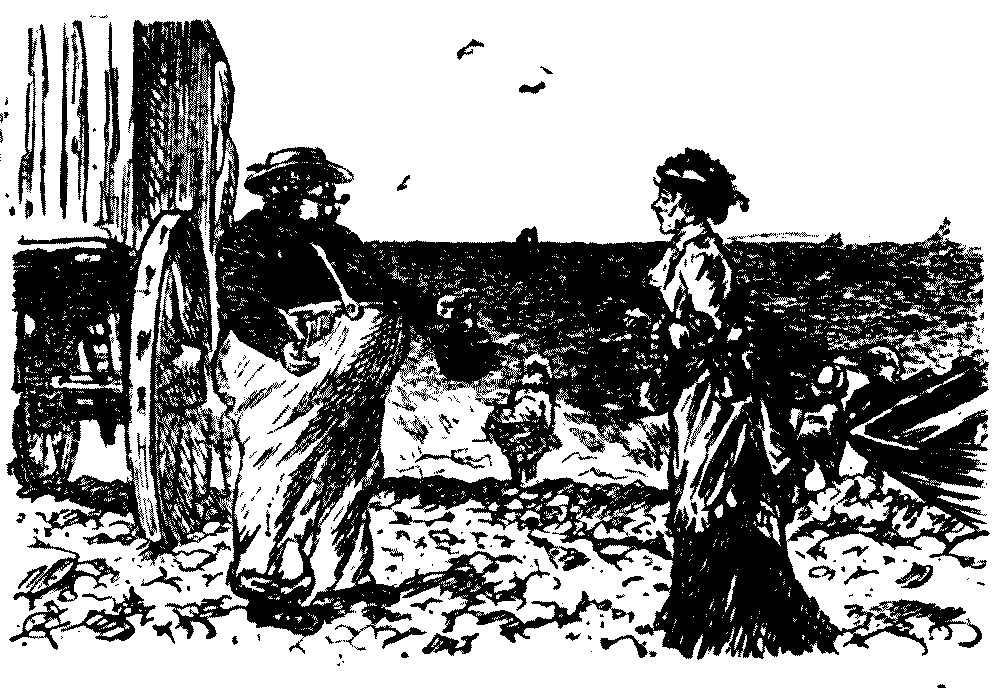
A five bar rest
[Pg 101]
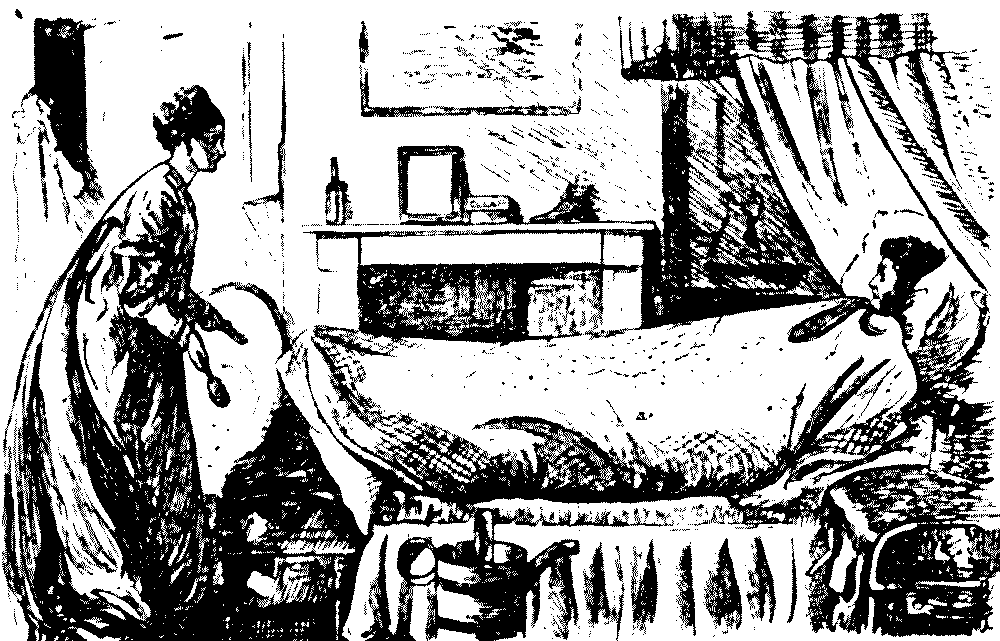
Seedy Provincial Actor. "Young man, I hear that you
propose to essay the rôle of the melancholy Dane. What induced you to
do it?" Prosperous London ditto. "Oh, I don't know. They egged me on
to it." Seedy Provincial Actor. "H'm. They egged me OFF!"
[Pg 102]
LESSONS LEARNED AT A PANTOMIME
That demons are much given to making bad puns, and have on their
visiting lists the most beautiful of the fairies.
That the attendants upon the demons (presumably their victims) spend
much of their time in break-downs.
That the chief amusement in Fairyland is to stand upon one toe for a
distressingly long time.
That the fairies, when they speak, don't seem to have more H.'s to their
tongues, than clothes to their backs.
That the fairies have particularly fair complexions, considering they
dance so much in the sunlight.
That the tight and scanty costume of the fairies is most insufficient
protection from the showers that must be required to produce the
gigantic and highly-coloured fairy flora.
That the chief fairy (to judge from her allusions to current events)
must take in the daily papers.
That harlequin is always shaking his bat, but[Pg 104] nothing seems to come of
it, and that it is hard to say why he comes on or goes off, or, in
short, what he's at altogether.
That if clown and pantaloon want to catch columbine, it is hard to see
why they don't catch her.
That pantaloon must have been greatly neglected by his children to be
exposed without some filial protection to such ill-usage from clown.
That clown leads a reckless and abandoned life, between thefts,
butter-slides, hot pokers, nurse-maids, and murdered babies, and on the
whole is lucky to escape hanging.
That policemen are made to be chaffed, cuffed, chased, and knocked
head-over-heels.
[Pg 103]
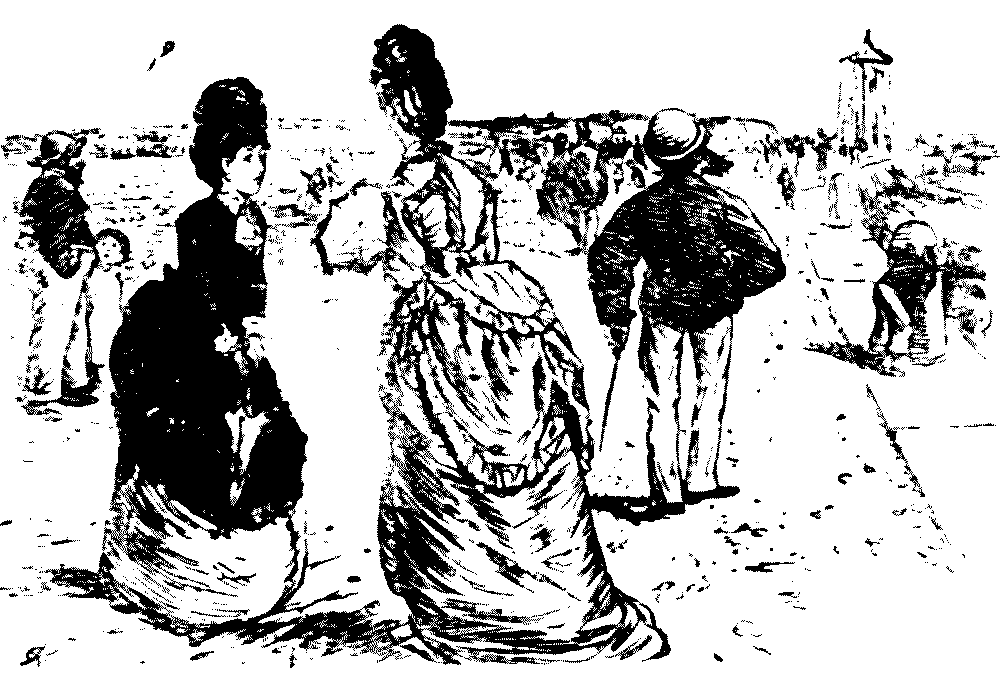
THE NEW PLAY
Low Comedian. "Have you seen the notice?"
Tragedian. "No; is it a good one?"
Low Comedian. "It's a fortnight's."
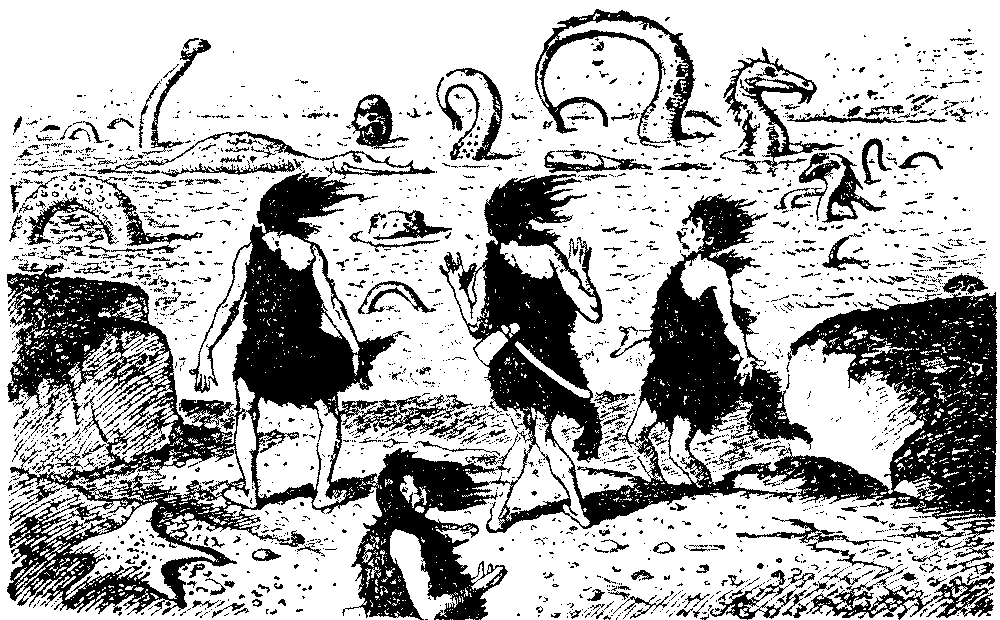
A quick movement with an obligato accompaniment.
[Pg 105]
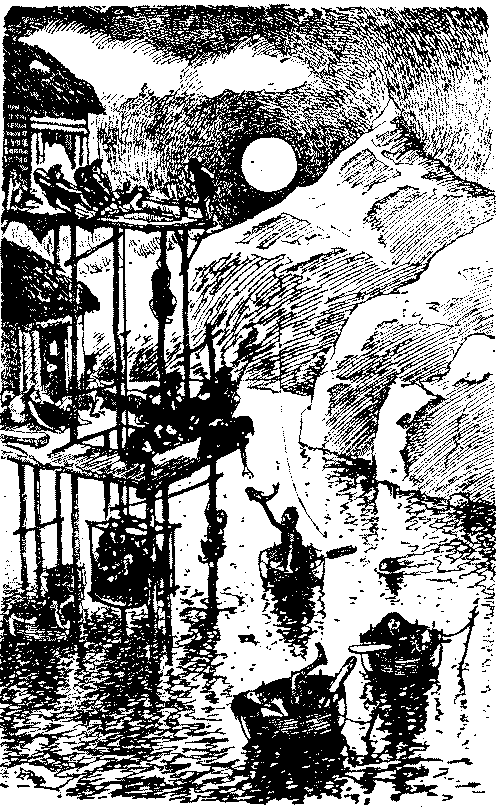
TERRIFIC SITUATION!
Heroine of domestic drama pursued by the unprincipled villain is about
to cast herself headlong from a tremendous precipice!
[Pg 106]
APPRECIATIVE!
The eldest Miss Bluestocken (to Mrs. Mugby, of the village laundry).
I'm delighted that you were able to come to our schoolroom performance
of Scenes from Shakspeare.
Mrs. Mugby. Oh, so was I, mum. That there "'Amblet"—and the grand
lady, mum——
Eldest Miss B. (condescendingly). You mean "Hamlet" and his
mother—the vicar and myself. You enjoyed it?
Mrs. Mugby. Oh, we did, mum! We ain't 'ad such a rale good laugh for
many a long day.
[Exit Miss B., thinking that Shakspeare is perhaps somewhat thrown
away on this yokality.
next fortnight."
tell the exact truth.
[Pg 107]
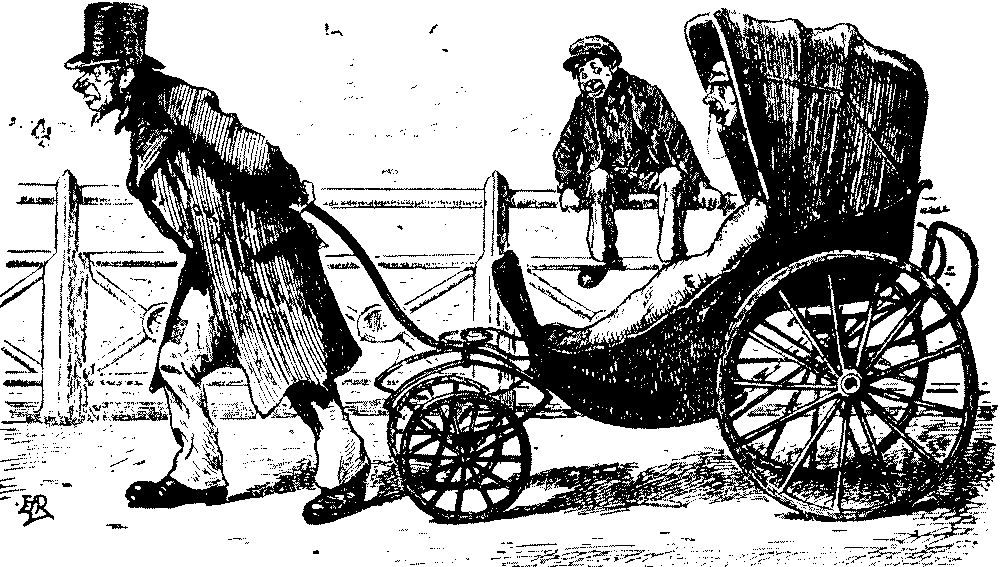
SCENE FROM SHAKSPEARIAN PANTOMIME
"Where got'st thou that goose?—look!"
(Macbeth, Act V., Sc. 3.)
[Pg 108]
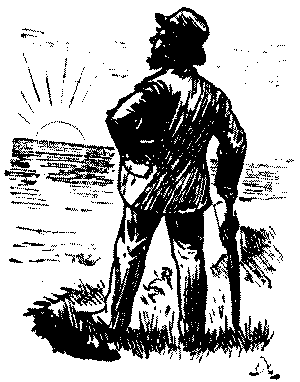
A Disenchantment.
Grandpapa. "What? Bob in love with
Miss Fontalba, the comic actress at the Parthenon?" Bob (firing up).
"Yes, grandpa! And if you've got a word to say against that lady, it had
better not be said in my presence, that's all!" Grandpapa. "I say a
word against her! Why, bless your heart, my dear boy! I was head over
ears in love with her myself—when I was your age!"
[Pg 109]
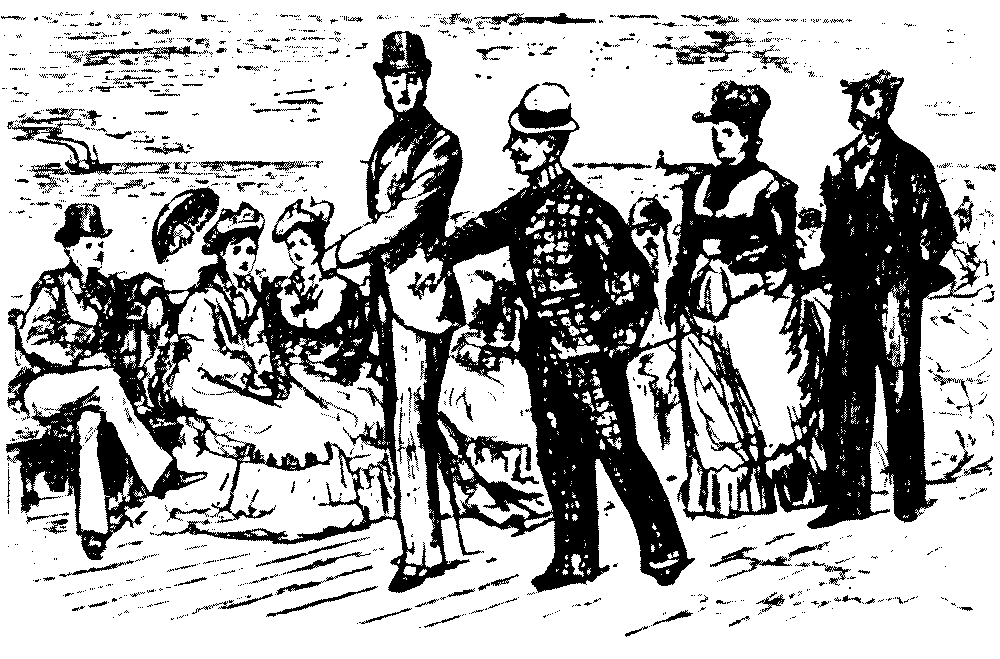
The Problem Play.
New Woman (with the hat). "No! My
principle is simply this—if there's a demand for these plays, it
must be supplied!" Woman not New (with the bonnet). "Precisely! Just
as with the bull-fights in Spain!"
[Scores
[Pg 110]
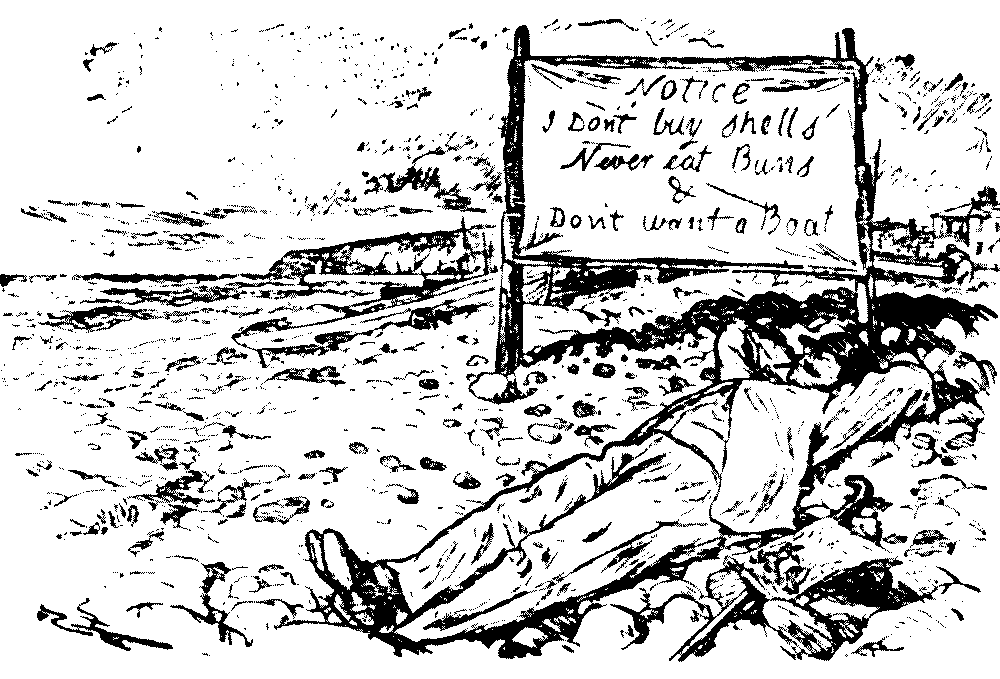
CHURCH THEATRES FOR COUNTRY VILLAGES—THE BLAMELESS
BALLET
["Mr. Chamberlain has expressed himself in sympathy with the scheme of
the Rev. Forbes Phillips for running theatres in connection with the
churches in country villages."]
There would, our artist imagines, be no difficulty in obtaining willing
coryphées among the pew-openers and philanthropic spinsters of the
various parishes.
[Pg 111]
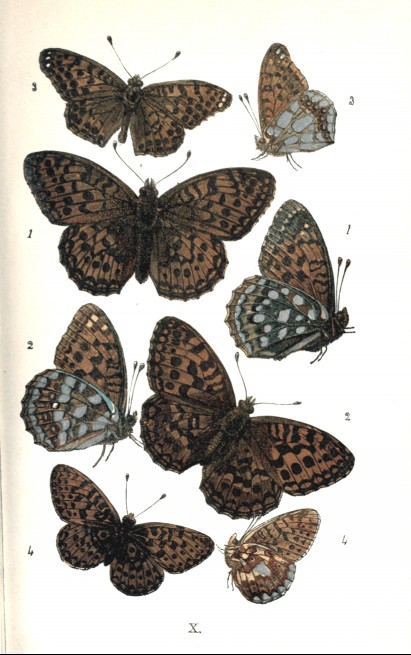
Mr. M'Chrustie (in the washing-room of the Minerva
Club). "Look here, waiter, what's the meaning of this? These brushes
are as beastly grimy as if they'd been blacking boots——!" Waiter.
"Yes, sir: it's them members from the 'Junior Theshpian,' sir—as are
'ere now, sir. They do dye theirselves to that degree——!"
[Mr. M'C. rushes off and writes furiously to the Committee!
[Pg 112]
A. When they were first-rate hands at acting.
listening to the throaty tenor.
"Call that a voice," said his friend; "it's a disease!"
[Pg 113]
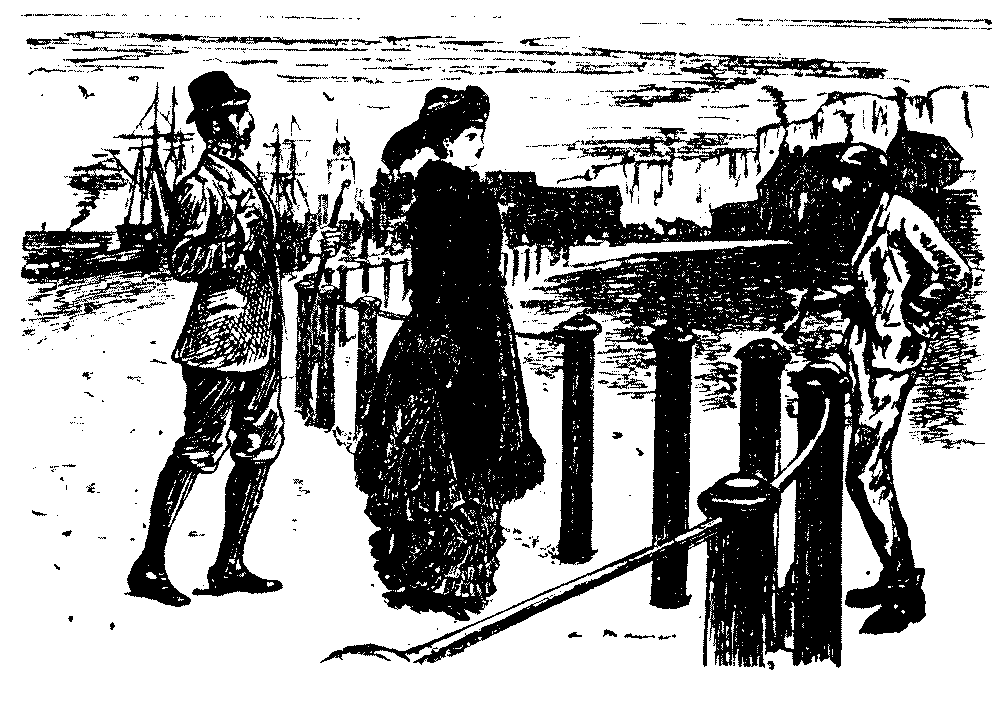
"You can't sit there, mum. These here seats are
reserved."
"You don't seem to be aware that I'm one of the directors' wives!"
"And if you was his only wife, mum, I couldn't let you sit here."
[Pg 114]
During the dull season a certain manager has issued such a number of his
autographs in order to ensure the proper filling of his house that he
has in playfulness conferred on it the nickname of the ordertorium.
talent as imagi-native talent.
[Pg 115]
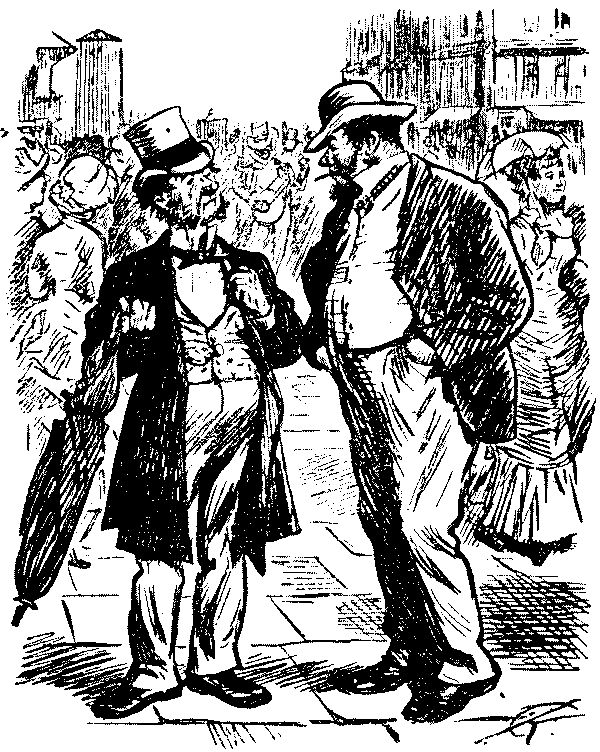
Confrères.
Master Jacky (who took part in some school
theatricals last term,—suddenly, to eminent tragedian who has come to
call). "I say, you know—I act!"
[Pg 116]
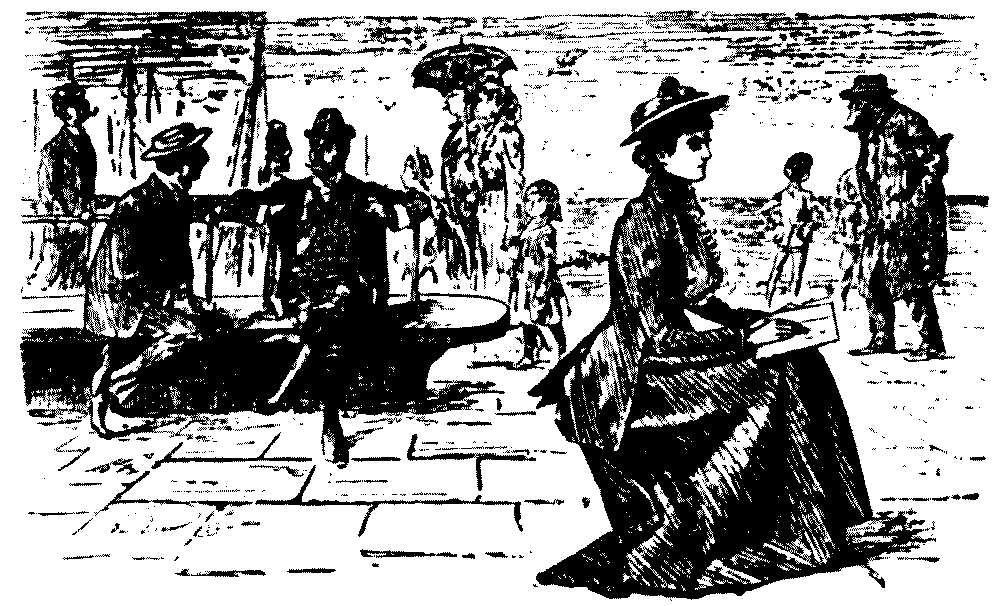
A PROP OF THE DRAMA
"What, back already, Archie! Was it a dull piece, then?"
"Don't know. Didn't stop to see. Just looked round stalls and boxes, and
didn't see a soul I knew!—so I came away."
[Pg 117]
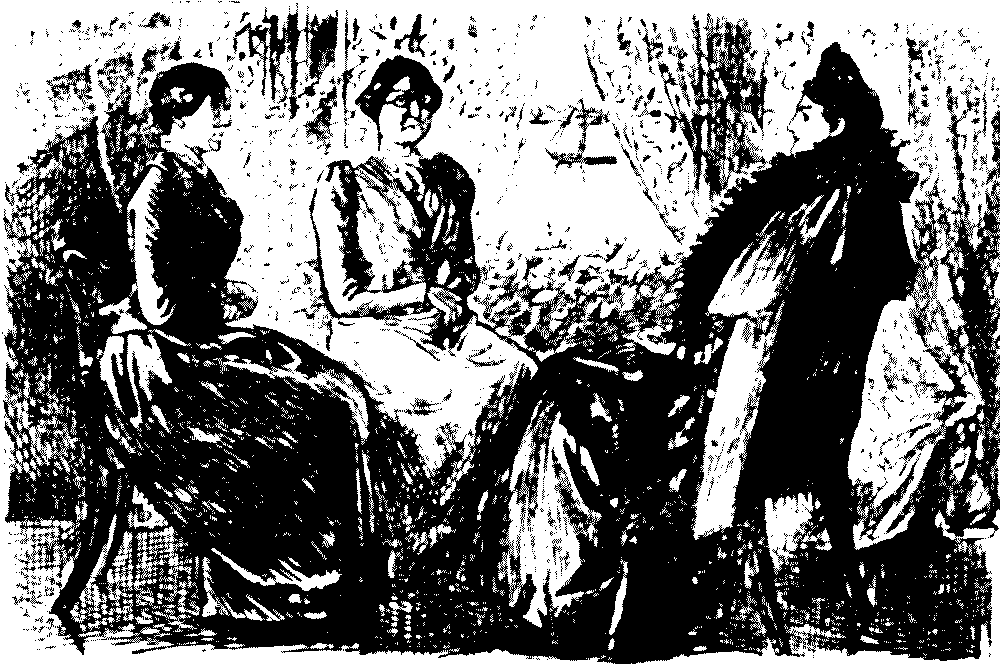
SHOWING THAT SOMETIMES IT IS GOOD FOR A COBBLER NOT TO
STICK TO HIS LAST
Fair Matron. "I remember your acting 'Sir Anthony,' years ago,
when I was a girl, Sir Charles! You did it splendidly!"
The Great Mathematician. "Ah, would you believe it, that bit of acting
brought me more compliments than anything I ever did?"
Fair Matron. "I should think so, indeed!"
[Pg 118]
one.—The Stationers' Company.
ex-officio to be members of the Worshipful Guild of Spectacle-makers.
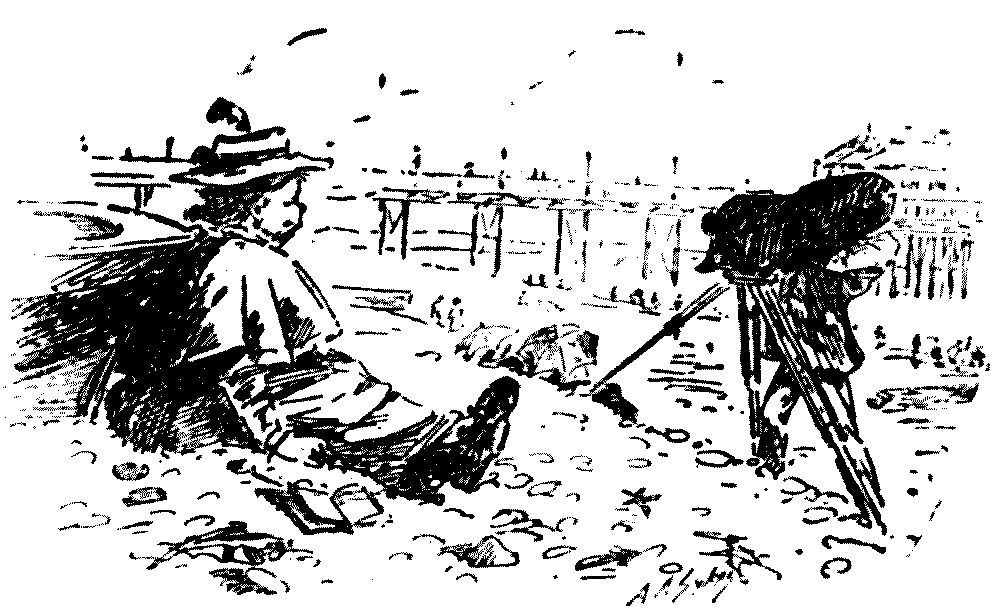
[Pg 119]
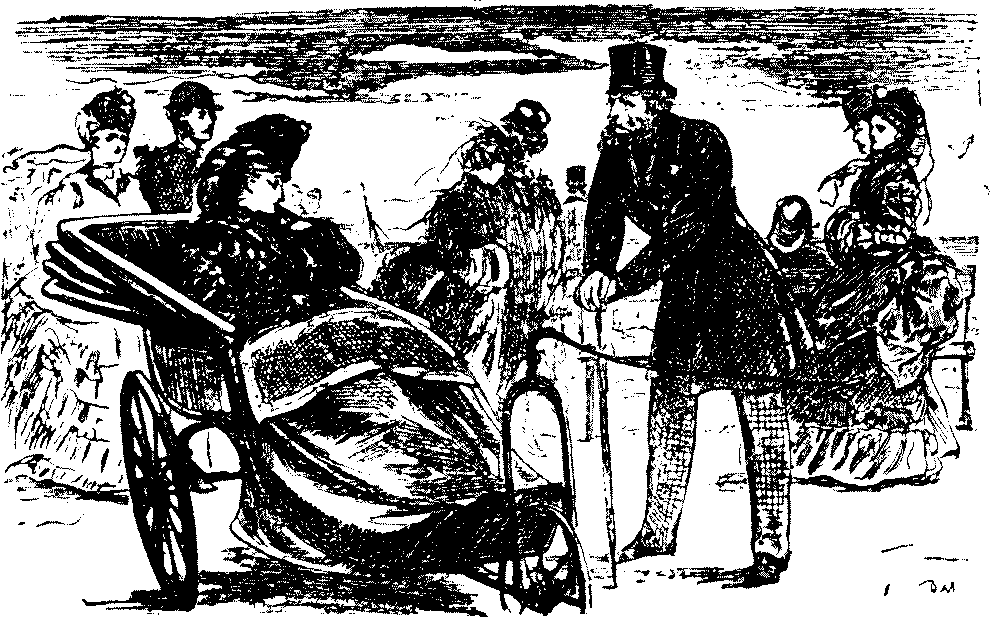
"Walking Lady" (late for rehearsal). "Oh, I'm so
sorry to be late! I do hope you haven't all been waiting for me?"
Stage Manager (icily). "My dear Miss Chalmers, incompetence is the
gift of heaven; but attention to business may be cultivated!"
[Pg 120]
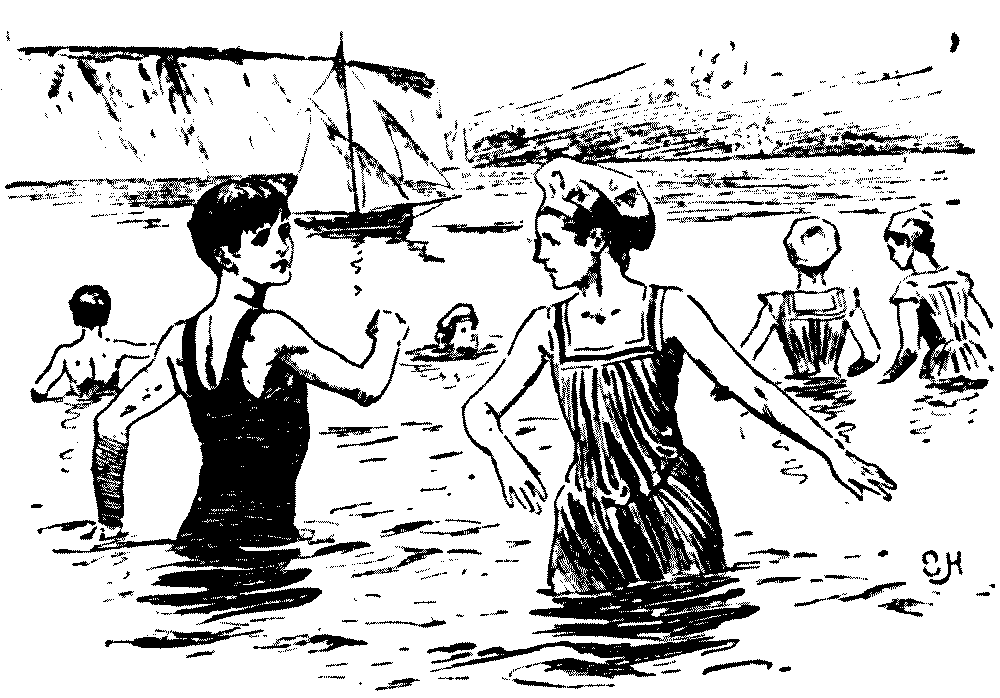
An Unkind Cut.
Amateur. "It was very kind of you to
come to our performance the other night; but what did you think of my
Hamlet? Pretty good?" Professional (feigning ecstasy). "Oh, my
dear fellow, 'pon my word you know,—really I assure you, good's not the
word!"
[Pg 121]
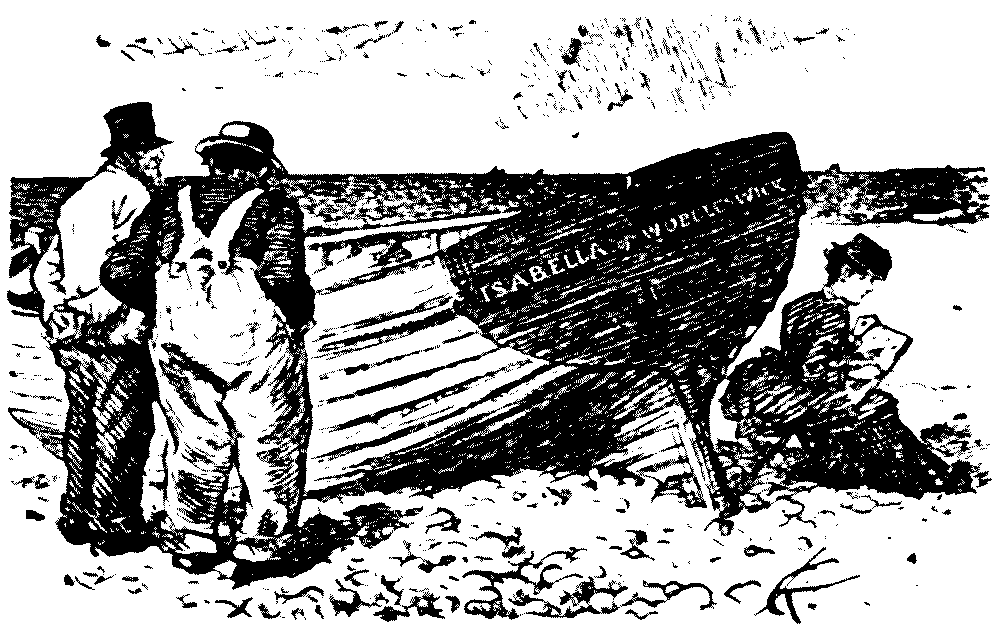
First Critic. "Well, have you seen the great tragedian
in Romeo and Juliet?"
Second ditto. "I have; and I confess he didn't come up to my
ixpictations. To tell ye the truth, I niver thought he would!"
[Pg 122]
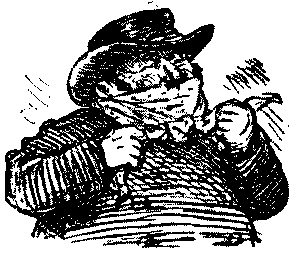
A CROWDED HOUSE
Angry Voice (from a back seat). "Ears off in front there, please!"]
[Pg 123]
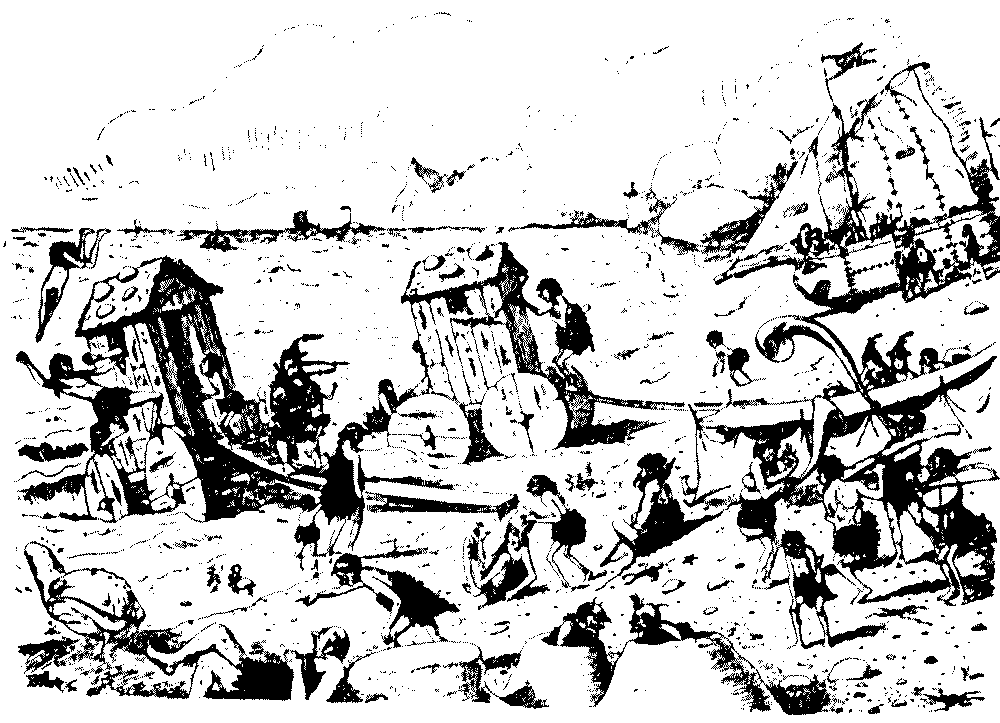
THE PROVINCIAL DRAMA
The Marquis (in the play). "Aven't I give' yer the edgication of a
gen'leman?"
Lord Adolphus (spendthrift heir). "You 'ave!!"
[Pg 124]
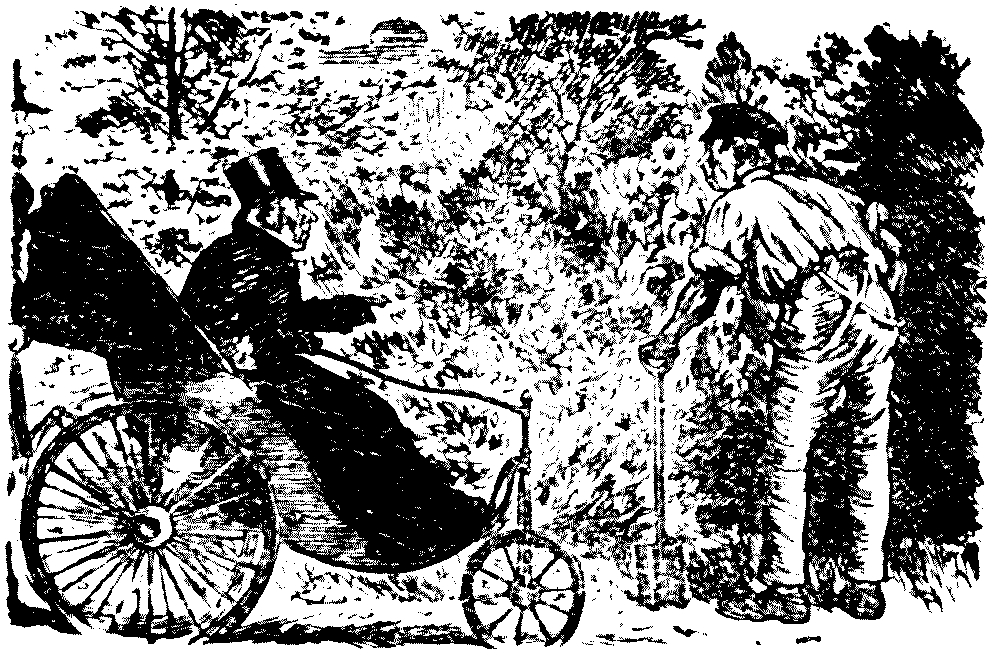
A CONDUCTOR OF HEAT
[Pg 125]
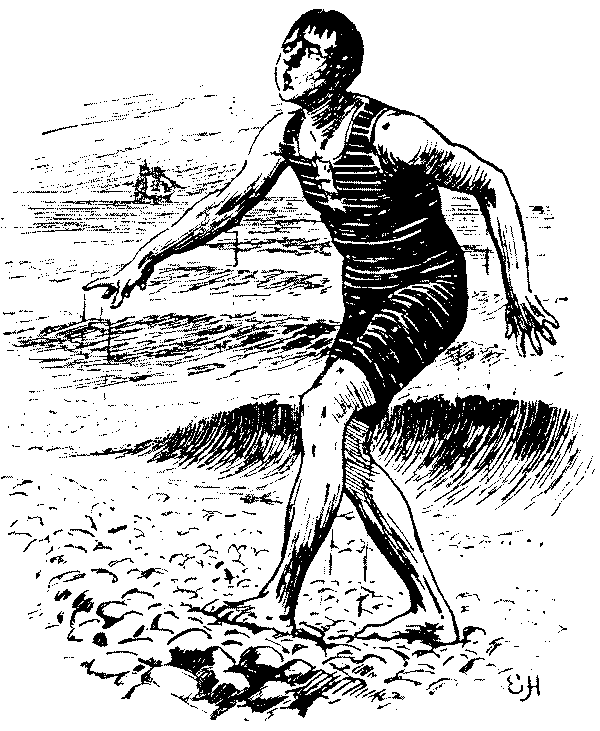
"STARTLING EFFECTS!"
Peep-Showman. "On the right you observe the 'xpress train a-comin'
along, an' the signal lights, the green and the red. The green lights
means 'caution,' and the red lights si'nifies 'danger'"——
Small Boy (with his eye to the aperture). "But what's the yaller
light, sir?"
Peep-Showman (slow and impressive). "There ain't no yaller
light—but the green and the red. The green lights means 'caution,' and
the red lights si'nif——"
Small Boy (persistently). "But wha's the other light, sir?"
Peep-Showman (losing patience). "Tell yer there ain't no"—— (takes
a look—in consternation)—"Blowed if the darned old show ain't
a-fire!!"
[Pg 126]
EX NIHILO NIHIL FIT
["Fashions in drama change as frequently as fashions in hats. It
has been reserved for our own day to evolve the comedy of
nothing-in-particular. Nowadays nothing happens in a play."—The
Outlook.]
Characters.
He, a nonentity.
She, another.
He. Dear——!
She (wearily). Oh please don't.
[Does nothing.
He. Why, what's the matter?
She. Nothing.
[He does nothing.
She. Well, you may as well go on. It will be something, anyhow.
(Yawns.) Nothing ever seems to happen in this play. I don't know
why. It isn't my fault. Oh, go on.
He. All right. Don't suppose it amuses me, though. Darling, I
love you—will you marry me?
She (very wearily). Oh, I suppose so.
He. Thanks very much. (Kisses her.) There!
[Pg 128]
[Returns proudly to his seat, and does nothing.
She (with sudden excitement). Supposing I had said "No," would
you have shot yourself?—would you have gone to the front?—would
your life have been a blank hereafter? Would anything interesting
have happened?
He (with a great determination in his eyes). Had you spurned my
love——
She (excitedly). Yes, yes?
He (with emotion).—I should have—I should have—done nothing.
[Does it.
She. Oh!
He. Yes. As for shooting or drowning myself if any little thing
of that sort had happened it would have been off the stage. I
hope I know my place.
[She does nothing.
He (politely). I don't know if you're keen about stopping here?
If not, we might——
She. We must wait till somebody else comes on.
He. True. (Reflects deeply.) Er—do you mote much?
[She sleeps. The audience follows suit. Curtain eventually.
[Pg 127]
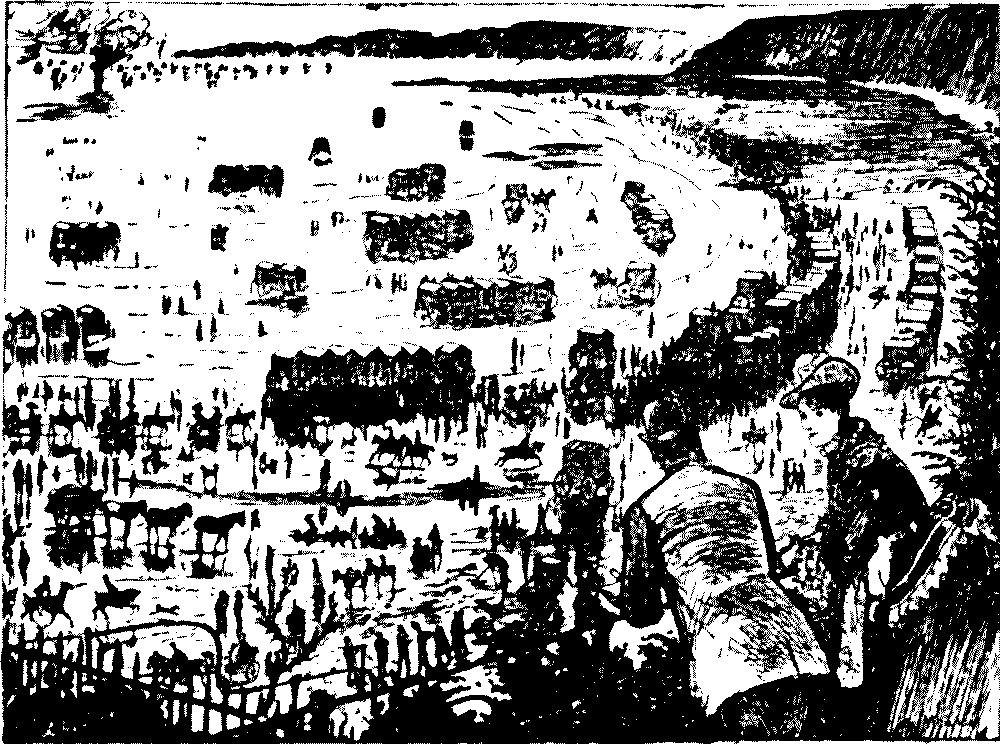
HOW HE OUGHT NOT TO LOOK
Excited Prompter (to the Ghost of Hamlet's father, who is
working himself up to the most funereal aspect he can assume).
"Now then, Walker, LOOK ALIVE!"
[Pg 129]
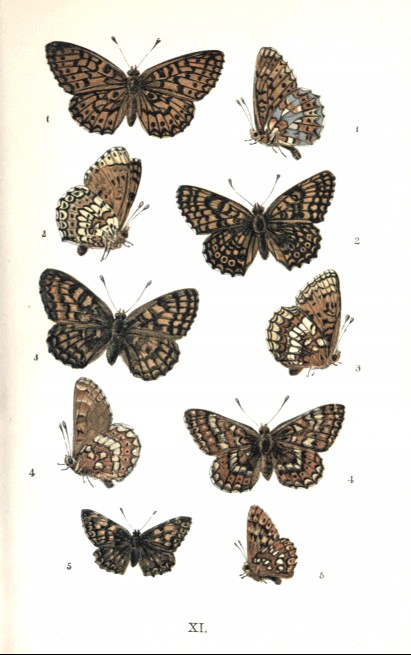
PREHISTORIC SHAKSPEARE.—"MACBETH"
"Infirm of purpose!
Give me the daggers."—Act II. Sc. 2.
[Pg 130]
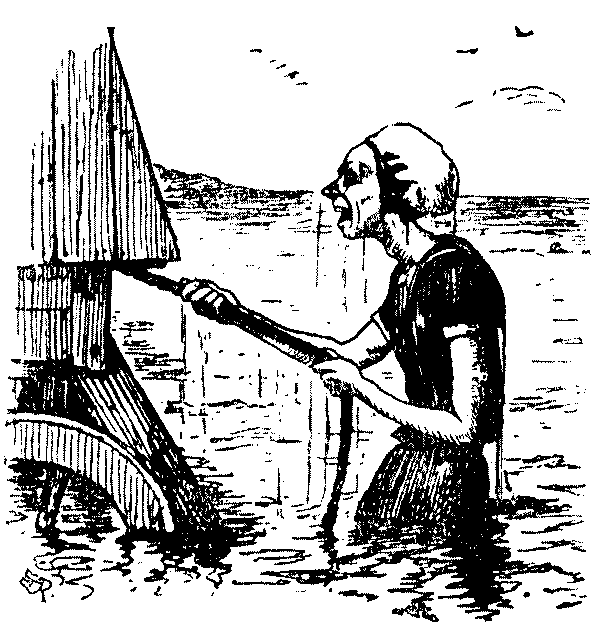
MUSIC-HALL INANITIES.—I.
passim) bawls the refrain of her latest song:—
"Ow, I am sow orferly shy, boys!
I am, and I kennot tell wy, boys!
Some dy, wen I'm owlder,
Per'aps I'll git bowlder,
But naow I am orfer-ly shy!"
[Pg 131]
MUSIC-HALL INANITIES.—II. The Illustrative Method.
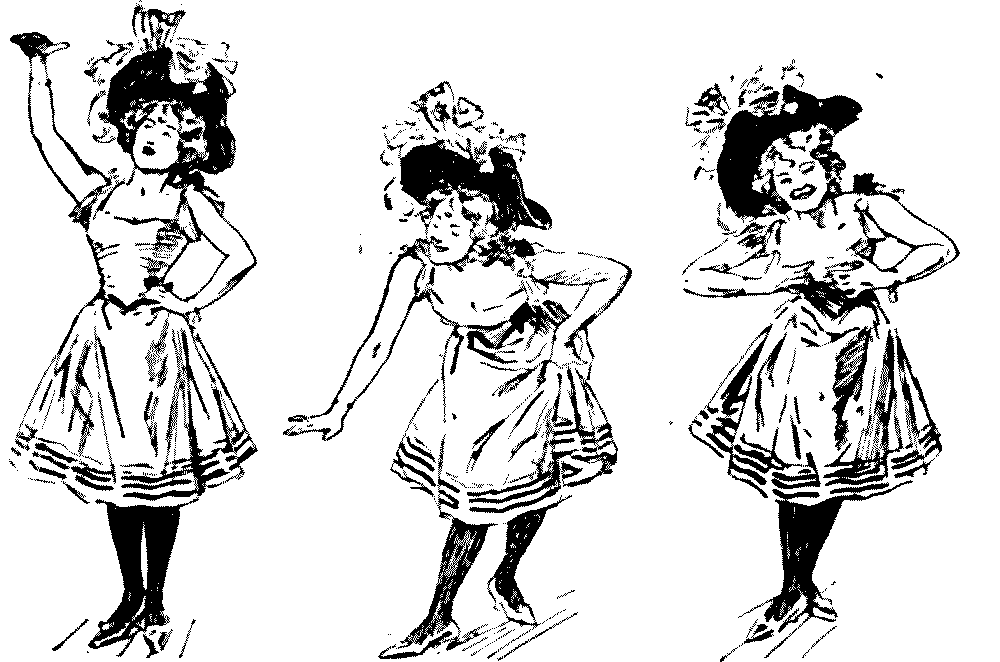
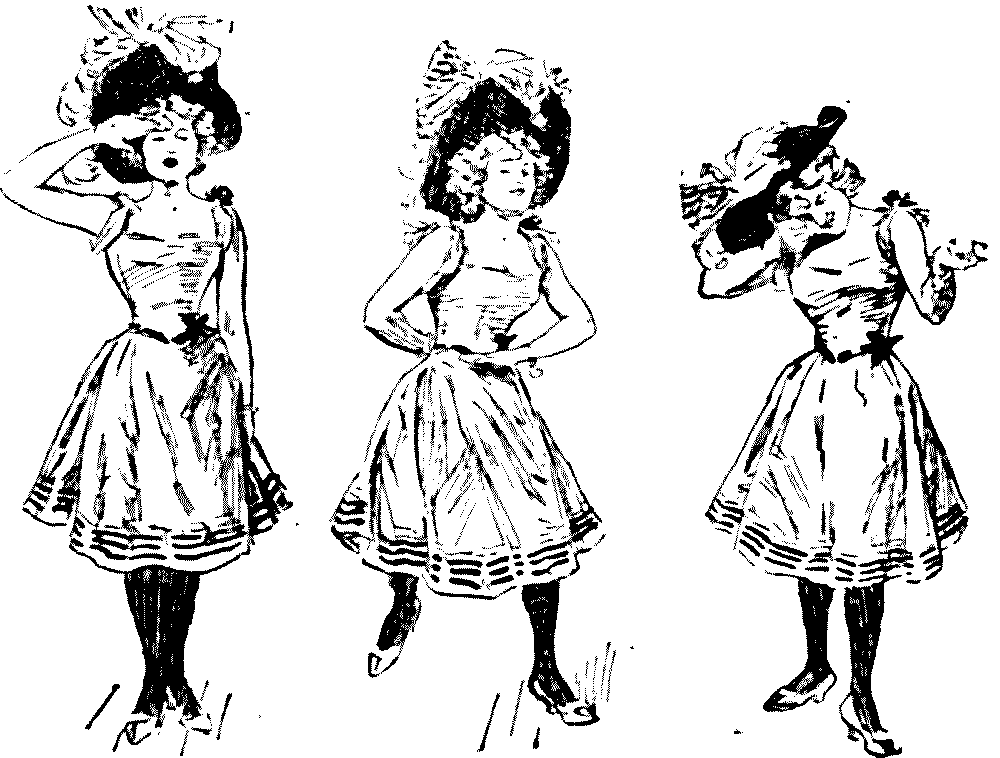
[Pg 132]
ATTENTION AT THE PLAY.
No. 1 (gazing through opera glasses). A good house. Do you know
anyone?
No. 2. Not a soul. Stay—aren't those the Fitzsnooks?
No. 3 (also using a magnifier). You mean the woman in the red
feather at the end of the third row of the stalls?
No. 4. You have spotted them. They have got Bobby Tenterfore with
them. You know, the Johnnie in the F. O.
No. 1. I thought Mr. Tenterfore was at Vienna.
No. 4. No; he was going, but they sent another chap. Brought
him back from somewhere in the tropics.[Pg 134]
No. 3. Then what is Mr. Tenterfore doing in town?
No. 4. Oh! come home on leave. Lots of that sort of thing at the
F. O.
No. 1 (having grown weary of looking at the audience). By the
way, à propos de bottes, I have some money to invest. Can you
suggest anything?
No. 3. They say that Diddlers Deferred will turn up trumps.
No. 1. What do you mean by that? I only want to pop in and out
between the accounts.
No. 3. Then the Diddlers ought to suit you. They rose six last
week, and ought to touch ten before settling day.
No. 1. Then I am on. Thanks very much for the information. Ah!
the curtain has fallen. So much for the first act! (Enter
visitor.) Ah! how are you? Where are you?
Visitor. Well, I have got a stall, but I have only just come into
the house. What are they playing?
No. 2. I am sure I don't know; but if you are curious about it,
here's the programme.
Visitor. And what's it all about?
No. 1 (on behalf of self and companions). We haven't the
faintest notion.
[Conversation becomes general, and remains so until the end of the
evening, regardless of the dialogue on the stage side of the
curtain.
[Pg 133]
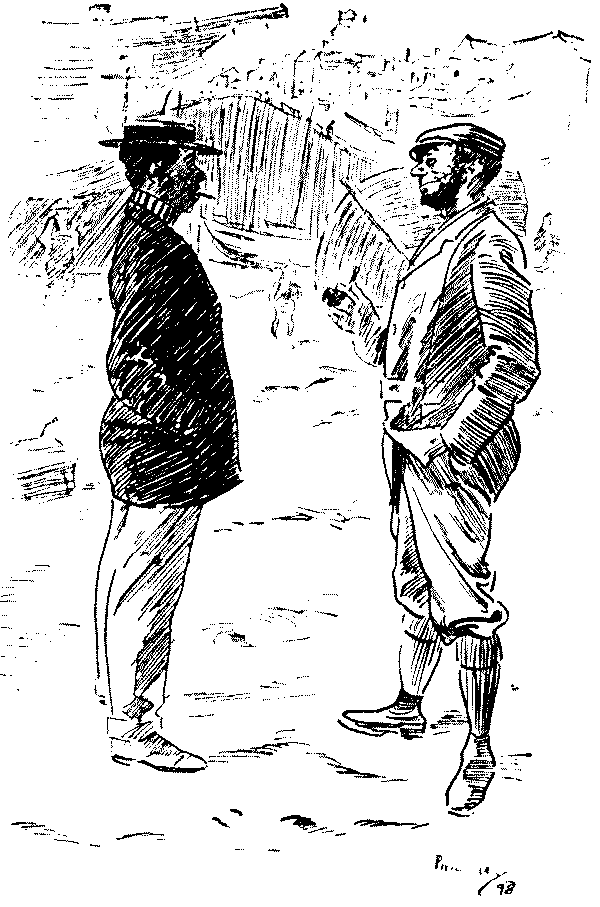
Melodrama in the Suburbs.
Elder Sister. "Do give up,
Nellie! They're only acting." Nellie (tearfully). "You leave me
alone. I'm enjoying it!"
[Pg 135]
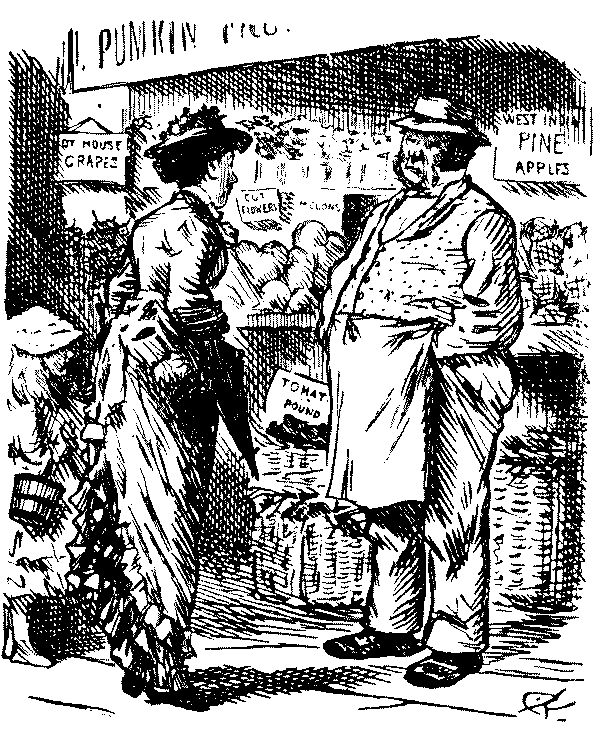
The Ruling Passion.
Doctor. "No, my dear sir, we must
keep ourselves quiet for the present. No stimulants—nothing more
exciting than gruel. Gruel for breakfast, gruel for luncheon, gruel for
dinner, gruel for——" Peter Pundoleful (a noted burlesque
writer—though you wouldn't have thought it to look at him—rousing
himself suddenly). "Ah! my dear doctor, why is there not a society for
the prevention of gruelty to animals?"
[Pg 136]
HIS FIRST AND LAST PLAY
Ralph Essendean, aged about fifty, is discovered at a
writing-desk. He studies a newspaper, from which he reads aloud,
thoughtfully:—"So that a successful play may bring its author
anything from five to twenty thousand pounds." He lays down the
paper, mutters, "H'm!" and taking up a pencil bites it
meditatively. Enter Mrs. Essendean.
Mrs. Essendean (crossing to Ralph, and placing her hand on his
shoulder, asks affectionately). Well, dear, and how is the play getting
on?
Ralph (irritably). You talk of the play, Matilda, as though it were
possible to write a four-act drama in ten minutes. The play is not
getting on[Pg 138] at all well, for the simple reason that I am only just
thinking out the idea.
Mrs. Essendean (seating herself by the table). How nice, dear! And
what is the idea?
Ralph (grimly). That is just what I am wondering about. Now if you
will kindly retire to the kitchen and make an omelette, or discharge the
cook, I shall be obliged.
[Leans over his desk.
Mrs. E. But, dear, I am sure the cook is a most excellent servant,
and——
Ralph (turning round and speaking with repressed exasperation). That
was simply my attempt at a humorous explanation of my wish to be alone,
Matilda.
Mrs. E. (smiling indulgently and rising). Well, dear, of course if
it's going to be a funny play, I know you would like to be alone.
(Pausing at the open door.) And will you read it to us after dinner?
You know the Willoughby-Smythes will be here, and Mr. and Mrs. Vallance
from the Bank are coming in afterwards. I am sure they would like to
hear it.
Ralph (irritably). The play isn't written yet. (Plaintively.) Do
go![Pg 140]
Mrs. E. (sweetly). I'm sure you'd like to be alone. Don't keep
dinner waiting.
[Beams on him affectionately and exits. Ralph gives a sigh of
relief, rumples his hair, and then writes for a few minutes. Then
pauses, leans back, biting his pencil, when the door is flung open,
and a very good imitation of a whirlwind bursts into the room. The
whirlwind is a robust person of forty, he has a large round red
face fringed with sandy whiskers, and is one mass of health and
happiness. He wears Norfolk jacket, knickerbockers, gaiters and
thick boots, and carries a golfing bag. He slaps Ralph heartily on
the back, and laughs boisterously. Ralph collapses.
Tom (heartily). How are you? Going strong—what? Asked the wife for
you, and she told me you were in here writing a play. Rippin' idea—what?
Ralph (worried, but striving to be pleasant and polite). What do you
want, old chap?
Tom (cheerfully). Nothin' particular, only just to see how you were
gettin' on—what? Do you good to have half an hour out, just a few
holes—golf—what?[Pg 142]
Ralph (with great self-restraint). Thanks, old man. Not now. You
don't mind my asking you to leave me to myself a bit?
Tom (amiably rising and picking up his bag). All right, old chap,
you know best—what? Thought I'd just look in—hey?—what? Well, I'm
off. (Goes to door, thinks for a moment, and then turns round.) I say,
I know Thingummy's acting manager. If I can put in a word about your
play—hey?—what?
Ralph (rises hurriedly. Shakes hands with Tom, and skilfully
manœuvres him into the passage, then calls after him). Good-bye, old
man, and many thanks. (Closes the door and returns to his desk,
grinding his teeth.) Confound him! (Takes up paper and writes a few
lines, then reads aloud.) "Puffington puts the letter in his pocket and
passes his hand through his hair. He groans 'O, why did I ever write
those letters? I know Flossie, and this means fifty pounds at least, and
if ever my mother-in-law gets to hear of it! O lor, here she is'" (Puts
down the paper and looks up at the ceiling.) Now, speaking to myself as
one man to another, I can't help thinking that this sort of thing has
been done before. I seem to have[Pg 144] heard it somewhere. I'll—I'll—try a
fresh start. (Writes hurriedly for a few minutes and then reads.)
"Scene.—Fashionable watering place, the beach is crowded; on the pier
the band is playing a dreamy waltz. Edwin and Maud are discovered in an
open boat. Edwin. You must be tired of rowing, sweetest; come and
steer. Maud. Just as you like, darling. (As they change seats the
boat capsizes. After clinging for twenty minutes to the upturned keel,
they are rescued by a passing steamer.)" That's all right for a
"situation," but there seems a lack of dialogue. They can't very well
talk while they are clinging to the boat; and what the deuce could they
be talking about before? If I let them drown I shall have to introduce
fresh characters. Bother! (Meditates with frowning brow.) Playwriting
appears to present more difficulties than I thought. (Takes up a
newspaper.) "May bring in anything from five to twenty thousand
pounds!" Sounds tempting, but I wonder how it's done?
[Takes a cigar from the mantelpiece, lights it, and, seating
himself near the fire, smokes thoughtfully. Gradually his head
sinks back on to the top of the chair, the cigar drops from his
relaxed fingers, and as he sleeps, the shadow of a smile breaks
across his face. An hour elapses; he is still sleeping. Enter Mrs.
Essendean, who brushes against the writing-table and sweeps the
sheets of manuscript to the ground.
Mrs. Essendean (crossing to Ralph and lightly shaking him). My dear,
my dear, not dressed yet! Do you know the time—just the half-hour.
(Ralph starts up.) Eh? (Looks at the clock.) Nearly half past, by
Jove! I shan't be two seconds.
[Rushes hastily from the room.
Mrs. Essendean (picks up the extinguished cigar, and drops it daintily
into the fire. Looks round the[Pg 149] room and sees the littering
manuscript.) What an untidy old thing it is! (Picks up the sheets,
crumples them into a ball and throws them into the waste-paper basket.)
There, that looks better.
[Gazes into the mirror, pats her hair, and
exit.
[Pg 137]
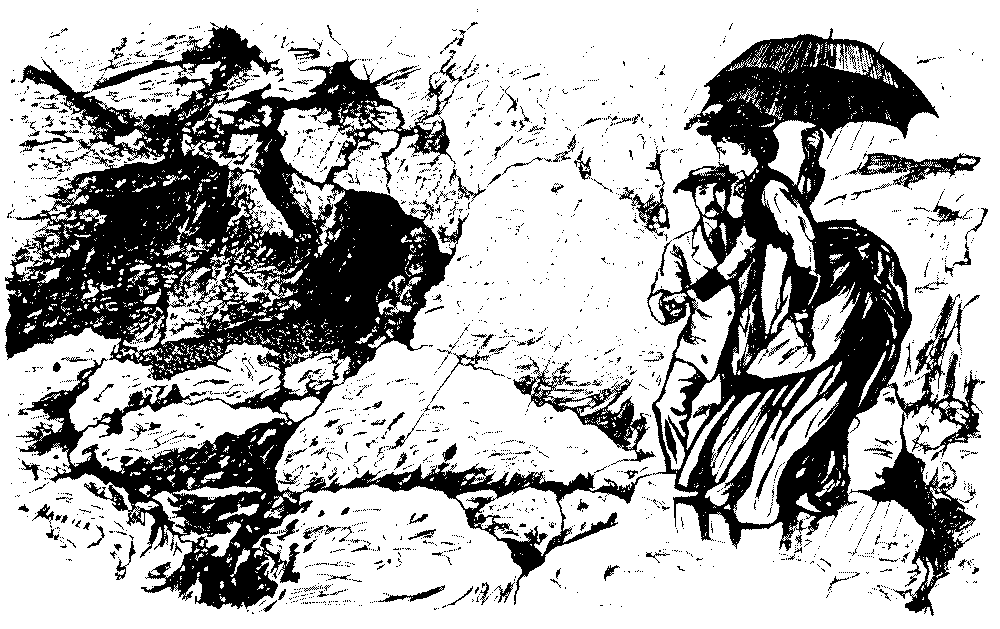
Paradoxical.
Ethel. "It was a most wonderful
performance, Aunt Tabitha! First, she was shot out of a cannon's mouth
on to a trapeze fifteen yards above the orchestra, and then she swung
herself up till she stood on a rope on one leg at least a hundred and
twenty feet above our heads!" Aunt Tabitha. "Ah! I always think a
woman lowers herself when she does that!"
[Pg 139]
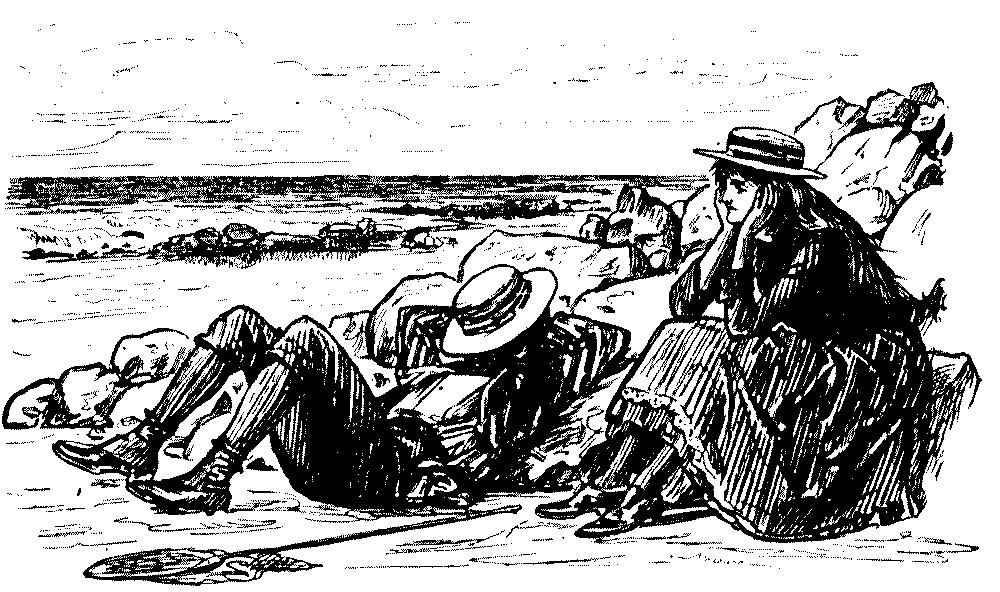
FORM
First Masher. "Let's stop and look at Punch and Judy, old chappie!
I've heard it's as good as a play."
Second Masher. "I dessay it is, my brave boy. But we ain't dressed,
you know!"
[Pg 141]
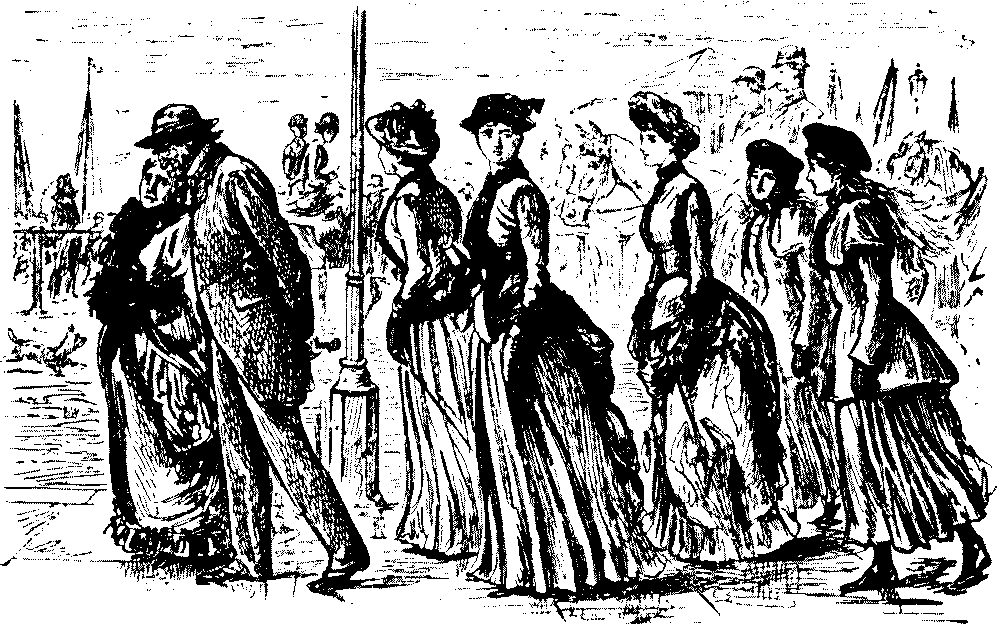
PROPERTY HAS ITS RIGHTS
Scene: Mr. Foote Lyter's back Drawing-room. Private Theatricals. Dress
Rehearsal.
Mr. Foote Lyter. "I say, Drawle, while the Duke is having his scene
with Dora, where am I to stand!" Captain Drawle (amateur stage
manager). "Well—er—my dear fellow—er—er—it's your own house, you
know—you can stand where you like!"
[Pg 143]
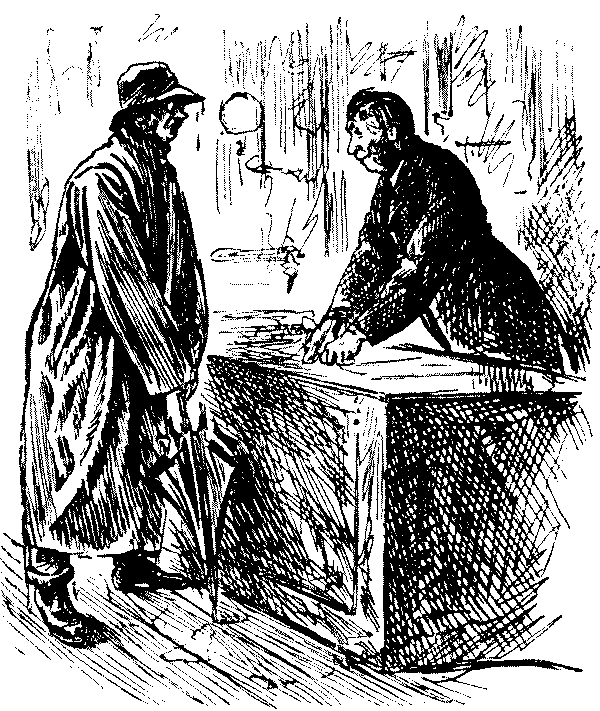
The Point of View.
Exasperated Old Gentleman (to lady
in front of him). "Excuse me, madam, but my seat has cost me ten
shillings, and I want to see. Your hat——" The Lady. "My hat has cost
me ten guineas, sir, and I want it to be seen!"
[Pg 145]
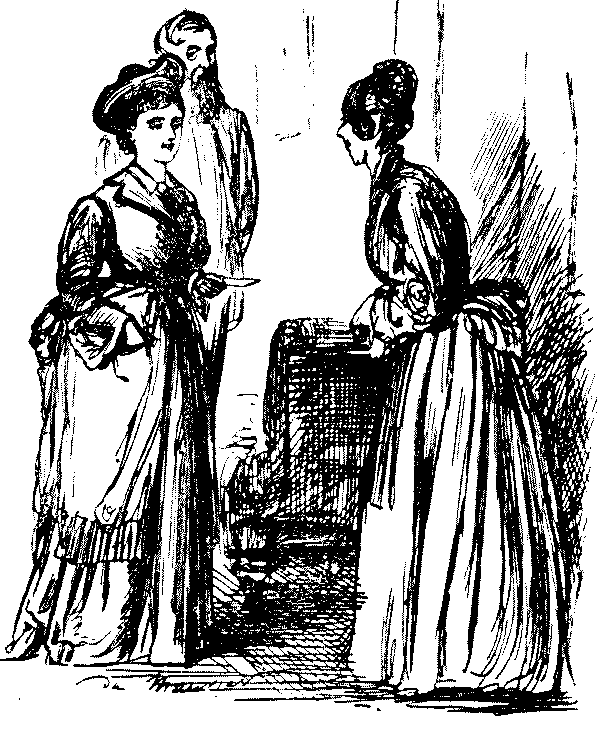
Tomkins, who has recently made his appearance en
amateur as the Melancholy Dane, goes to have his photograph taken "in
character." Unfortunately, on reaching the corner of the street, he
finds the road is up, and he has to walk to the door! Tableau!!
[Pg 146]
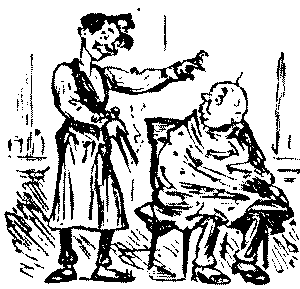
Clever Juvenile (loq.). "Shakspeare? Pooh! For my
part I consider Shakspeare a very much over-rated man."
[Pg 147]
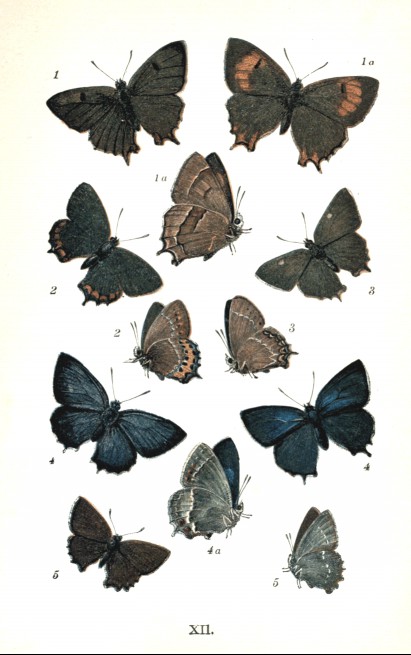
THE FORTHCOMING PANTOMIME
Astonished Friend. "Why!—Why! What on earth are these?"
Manager. "These? Oh! These are fairies!!"
[Pg 148]
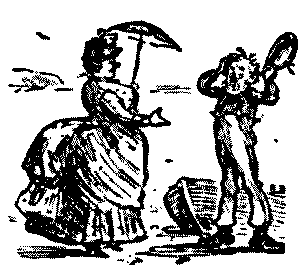
MR. PUNCH'S PATENT MATINEE HAT.
Fitted with binocular glasses for the benefit of those sitting behind
its wearer.
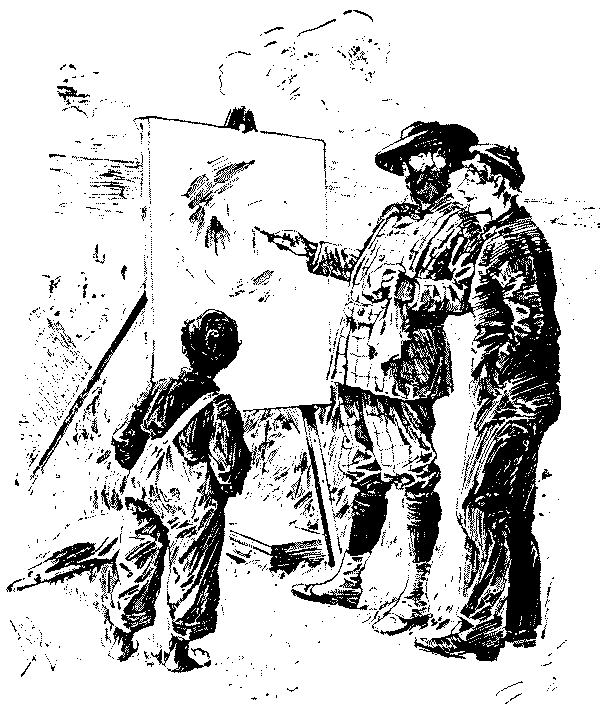
Heard at a Provincial Circus.
Wag (to unfortunate
small gent, who has vainly endeavoured to persuade lady to remove her
hat). "Don't you see she's got a bird in her hat, sitting? You wouldn't
have the lady addle-headed, would you?"
[Pg 150]
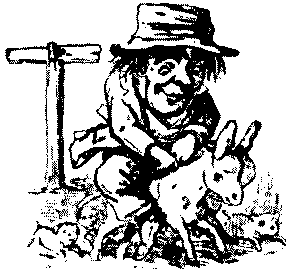
The Amateurs.
Suburban Roscius. "Ah, I saw you were at
our 'theatricals' the other night. How did you like my assumption of
Hamlet?" Candid Friend. "My dear f'llar—great'st piece of
assumption I ever saw i' m' life!"
[Pg 151]
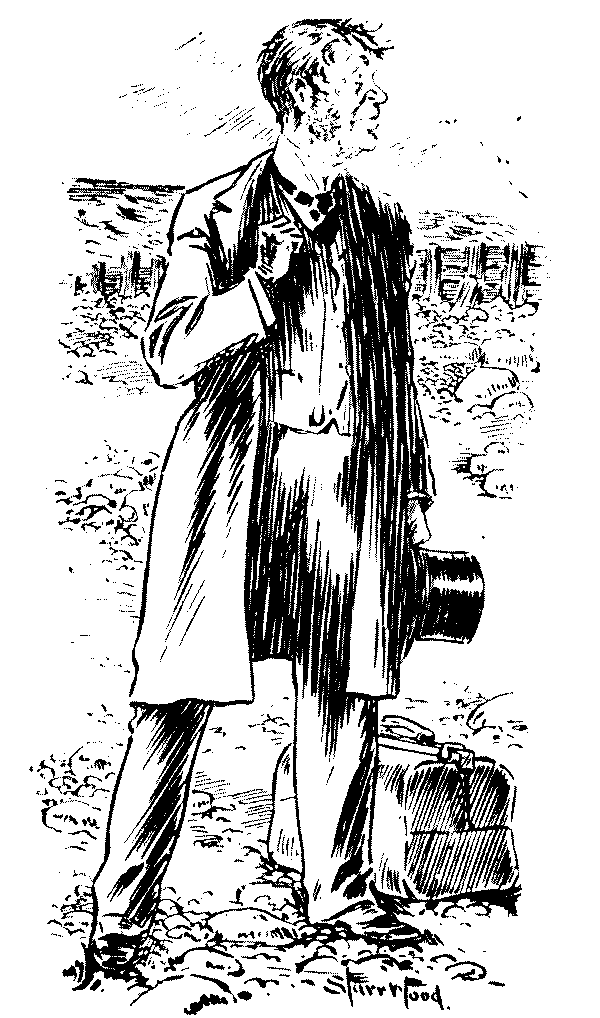
CAUSE AND EFFECT
Eminent Provincial Tragedian. "Come hithorr, sweet one! Your mothorr
tells me that you shed teorrs during my soliloquy in exile, last night!"
Sweet One. "Yes, sir. Mother kept on pinching me, 'cause I was so
sleepy!"
[Pg 152]
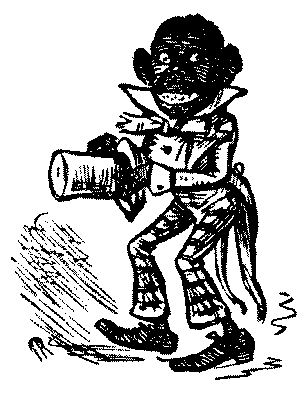
"EXCLUSIVE"
Our Philanthropist (who often takes the shilling gallery—to his
neighbour). "Only a middling house."
Unwashed Artisan. "Ay—that sixpence extry, 'rather heavy for the
likes o' huz, y'know. But there's one thing—it keeps out the
riff-raff!!"
[Pg 153]
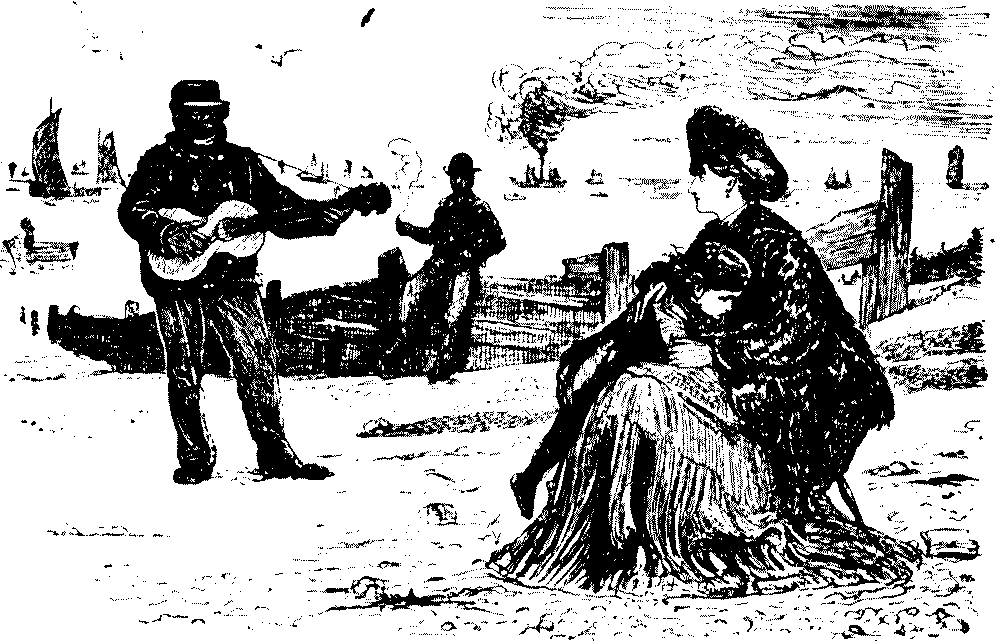
The Drama.
Æsthetic Critic (at the club, after the
theatre). "Can you imagine anything more utterly solemn than the
dénoûment in Romeo and Juliet? Two lovers, both dying in the same
vault! What fate more weirdly tragic could——"
Cynical Old Bachelor (who has evidently never read the play).
"Um—'s no knowing. The author might 'a' married 'em!"
[Pg 154]
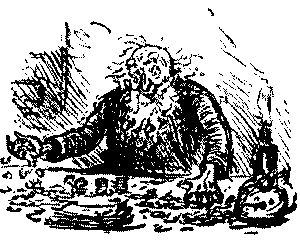
Distinguished Amateur (about to make his first
appearance in public at a concert for the people). "Oh, I do feel so
nervous!" Sympathetic Friend. "Oh, there's no occasion to be nervous,
my dear fellow. They applaud anything!"
[Pg 155]
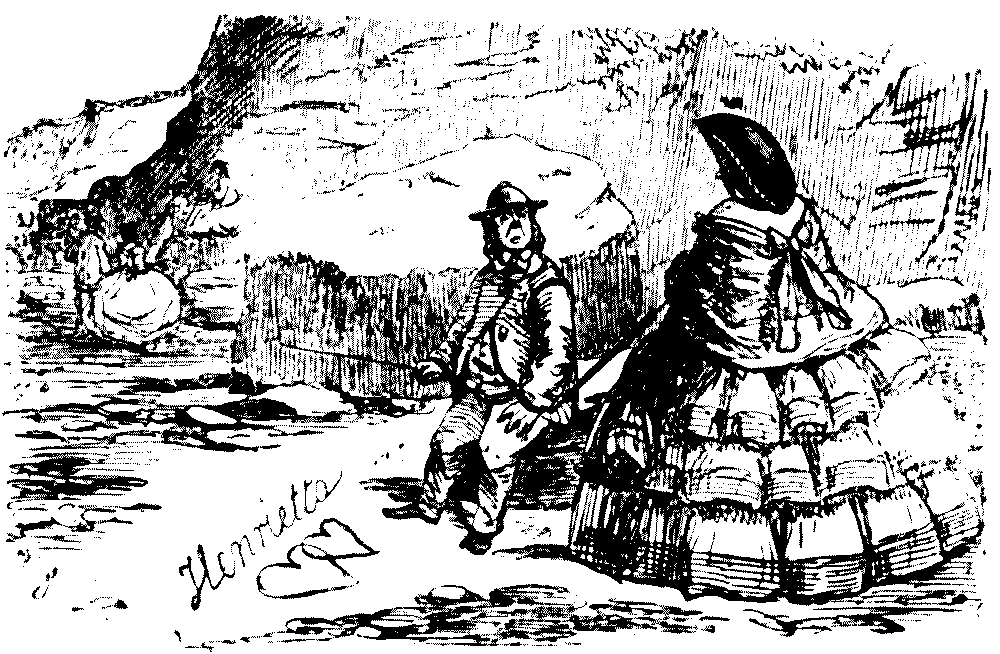
The Maiden's Point of View.
Mamma (to Maud, who has
been with her brother to the play, and is full of it). "But was there
no love in the piece, then?" Maud. "Love? Oh dear no, mamma. The
principal characters were husband and wife, you know!"
[Pg 156]
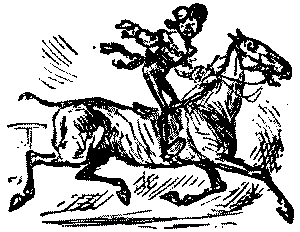
A COMEDIE FRANÇAISE
Jones (who understands French so well, although he does not speak
it), reading over list of pieces to be played at the Gaiety:—"'Le
Gendre de M. Poirier.' Why, what gender should the man be, I should
like to know!"
[Pg 157]
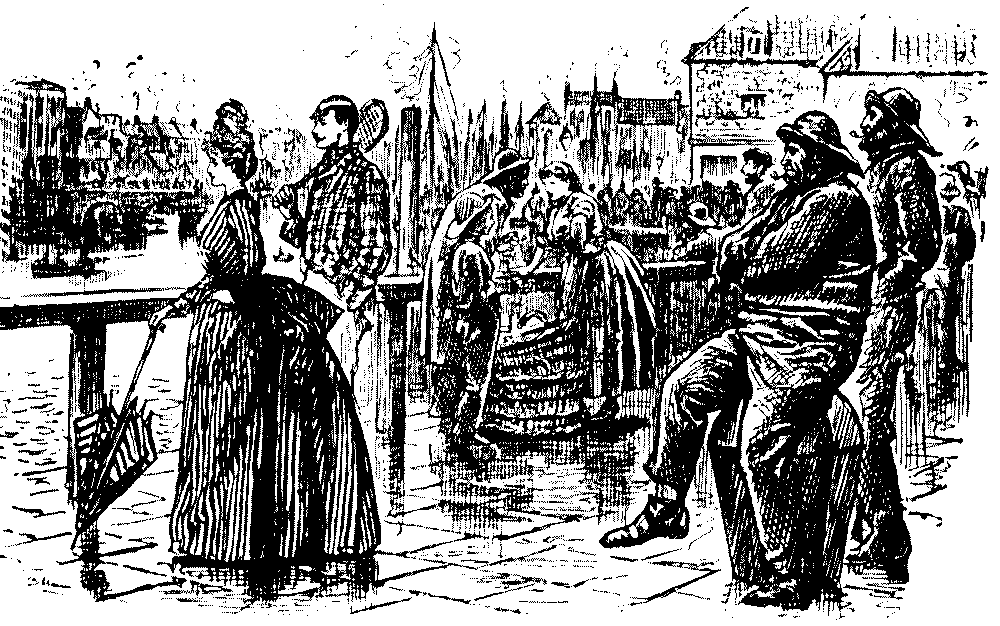
"Those Who Live in Glass Houses," Etc.
The Bishop. "I
hope your grandchildren liked the circus, Lady Godiva. That was a
wonderful performance of Mlle. Petitpas on the bare-backed steed, wasn't
it?"
Lady Godiva. "Yes—a—but I dislike those bare-backed performances.
They're so risky, you know!"
[Pg 158]
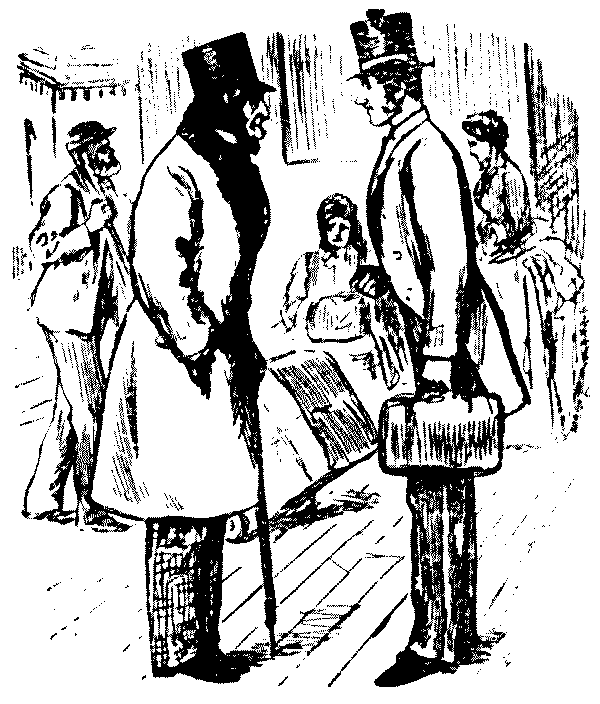
A very cold audience.
[Pg 159]
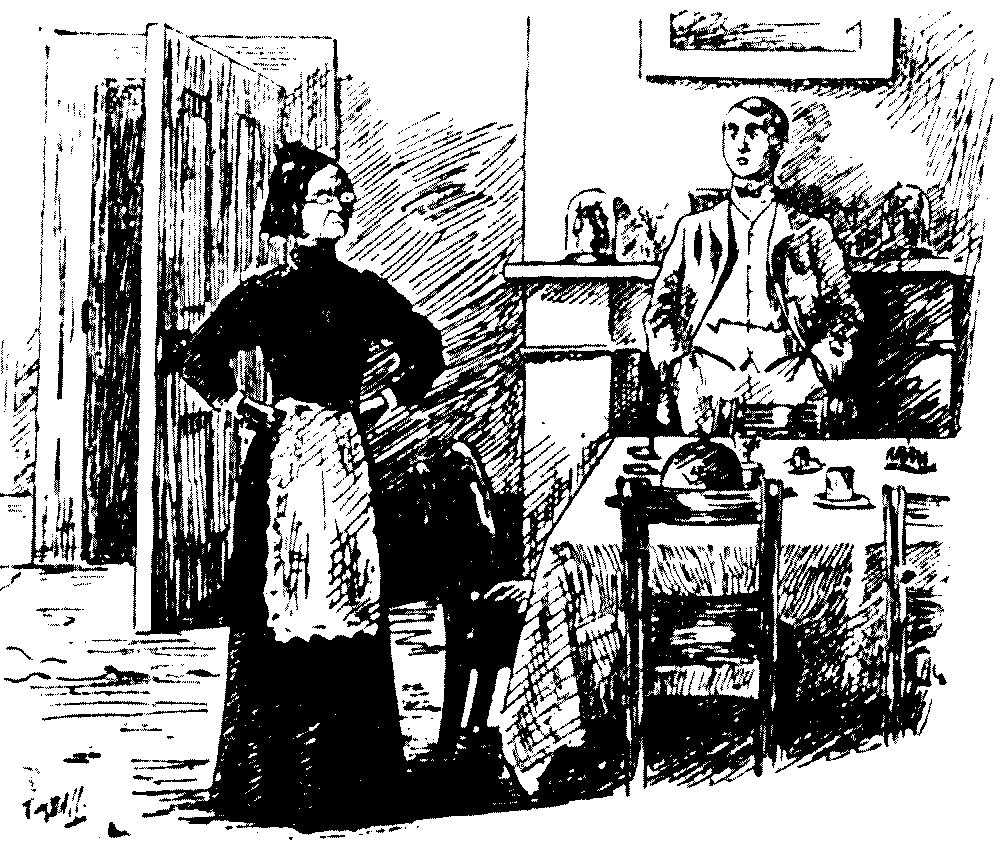
A CASE OF "NO COMPRENNY"
"Ha! Mistare Robinson! 'Ow do you do? 'Av you seen ze last new piece at
ze 'Olleborne? Supairrb! Splendeed!! Good!!!"
"A—no—I don't patronise the English drama. I like finish, delicacy,
refinement; and I'm happy to say I've secured tickets for all the French
plays!"
"Tiens! Mais vous savez le Français, alors?"
"A—I beg your pardon?"
"Je vous demande si vous savez le Français, parbleu! Cruche, Melon,
Baudet, Dinde, Jobard, Crétin, Momie, Colin-Maillard que vous êtes?"
"A—quite so! No doubt! A—by the bye, have you seen Jones lately?"
[Pg 160]
BETWEEN THE ACTS; OR, THE DRAMA IN LIQUOR
Scene—Refreshment Saloon at a London Theatre. A three-play bill
forms the evening's entertainment. First Act over. Enter Brown,
Jones, and Robinson.
Brown. Well, really a very pleasant little piece. Quite amusing. Yes;
I think I will have a cup of coffee or a glass of lemonade. Too soon
after dinner for anything stronger.
Jones. Yes, and really, after laughing so much, one gets a thirst for
what they call light refreshments. I will have some ginger-beer.
Robinson. Well, I think I will stick to iced-water. You know the
Americans are very fond of that. They always take it at meal-times, and
really after that capital équivoque one feels quite satisfied. (They
are served by the bar attendant.) That was really very funny, where he
hides behind the door when she is not looking.
[Laughs at the recollection.
[Pg 162]
Brown. And when the uncle sits down upon the band-box and crushes the
canary-cage!
[Chuckles.
Jones. Most clever. But there goes the bell, and the curtain will be
up directly. Rather clever, I am told. The Rose of Rouen—it is
founded on the life of Joan of Arc. I am rather fond of these
historical studies.
Brown. So am I. They are very interesting.
Robinson. Do you think so? Well, so far as I am concerned, I prefer
melodrama. Judging from the title, The Gory Hand should be uncommonly
good.
[Exeunt into Theatre. After a pause they return to the Refreshment
Room.
Brown. Well, it is very clever; but I confess it beats me. (To bar
attendant.) We will all take soda-water. No, thanks, quite neat, and
for these gentlemen too.
Jones. Well, I call it a most excellent psychological study. However,
wants a clear head to understand it. (Sips his soda-water.) I don't
see how she can take the flag from the Bishop, and yet want to marry the
Englishman.
Robinson. Ah, but that was before the vision.[Pg 164] If you think it over
carefully, you will see it was natural enough. Of course, you must allow
for the spirit of the period, and other surrounding circumstances.
Brown. Are you going to stay for The Gory Hand?
Jones. Not I. I am tired of play-acting, and think we have had enough
of it.
Robinson. Well, I think I shall look in. I am rather fond of strong
scenes, and it should be good, to judge from the programme.
Jones. Well, we will "sit out." It's rather gruesome. Quite different
from the other plays.
Robinson. Well, I don't mind horrors—in fact, like them. There goes
the bell. So I am off. Wait until I come back.
Brown. That depends how long you are away. Ta, ta!
[Exit Robinson.
Jones. Now, how a fellow can enjoy a piece like that, I cannot
understand. It is full of murders, from the rise to the fall of the
curtain.
Brown. Yes—but Robinson likes that sort of thing. You will see
by-and-by how the plot will affect him. It is rather jumpy, especially
at the[Pg 166] end, when the severed head tells the story of the murder to the
assistant executioner. I would not see it again on any account.
Jones. No—it sent my maiden aunt in hysterics. However, it has the
merit of being short. (Applause.) Ah, there it's over! Let's see how
Robinson likes it. That tableau at the end, of the
starving-coastguardsman expiring under the rack, is perfectly awful!
(Enter Robinson, staggering in.) Why, my boy, what's the matter?
Brown. You do look scared! Have something to drink? That will set it
all to-rights!
Robinson (with his eyes protruding from his head, from horror).
Help, help! help! (After a long shudder.) Brandy! Brandy!! Brandy!!!
[At all the places at the bar there is a general demand for alcohol.
Brown. Yes. Irving was right; soda-water does very well for
Shakspeare's histories, but when you come to a piece like The Bells,
you require supporting.
[Curtain and moral.
[Pg 161]
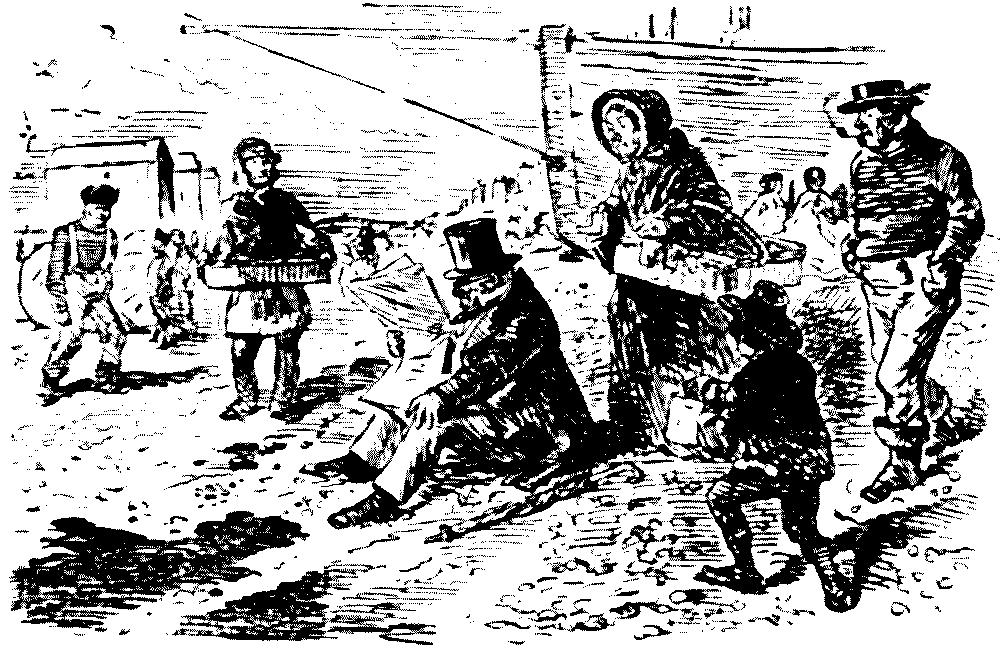
Manager of "Freak" Show. "Have I got a vacancy for a
giant? Why, you don't look five feet!"
Candidate. "Yes, that's just it. I'm the smallest giant on record!"
[Pg 163]
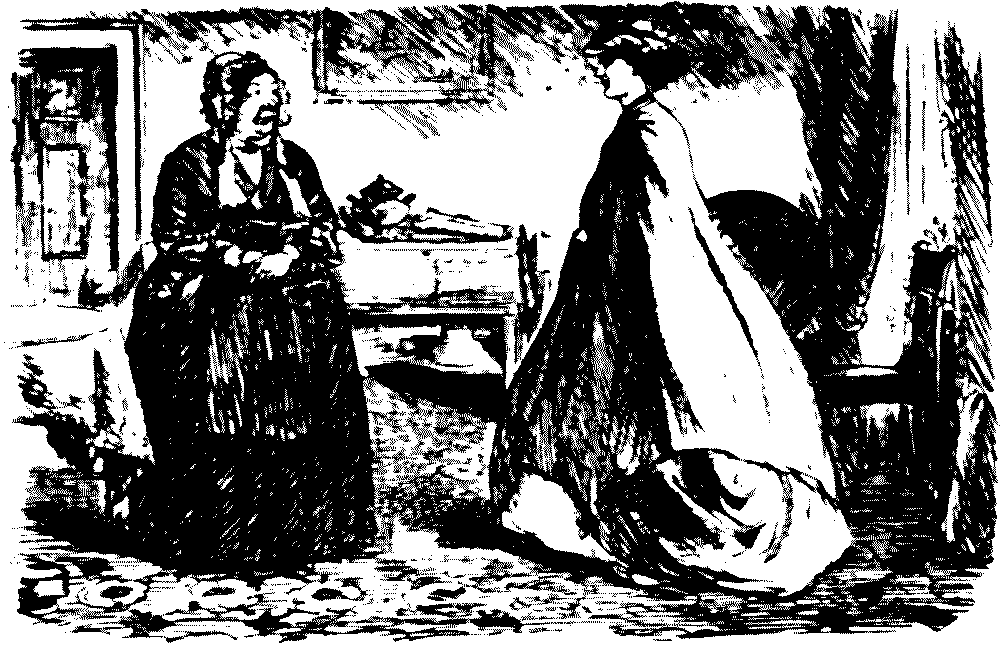
An Irresistible Appeal.
Mrs. Blokey (who has called with a letter of introduction on Mr.
Roscius Lamborn, the famous actor and manager). "And I've brought you
my son, who's breakin' his mother's 'art, Mr. Lamborn! He insists on
givin' up the city and goin' on the stage—and his father an
alderman and 'im in his father's business, and all the family thought of
so 'ighly in Clapham! It's a great grief to us, I assure you, Mr.
Lamborn! Oh! if you could only dissuade 'im! But it's too late for that,
I'm afraid, so p'raps you wouldn't mind givin' him a leadin' part in
your next piece!"
[Pg 165]
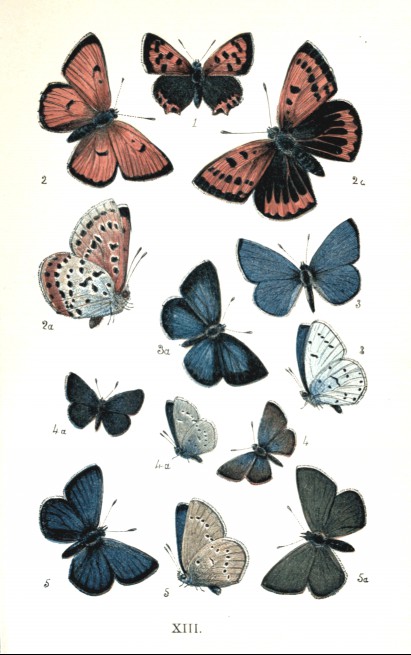
What our Dramatist has to put up with.
His Wife (reading a Sunday paper). "A propos of Hamlet, they say
here that you and Shakspeare represent the very opposite poles of the
dramatic art!"
He. "Ah! that's a nasty one for Shakspeare!"
[Pg 167]
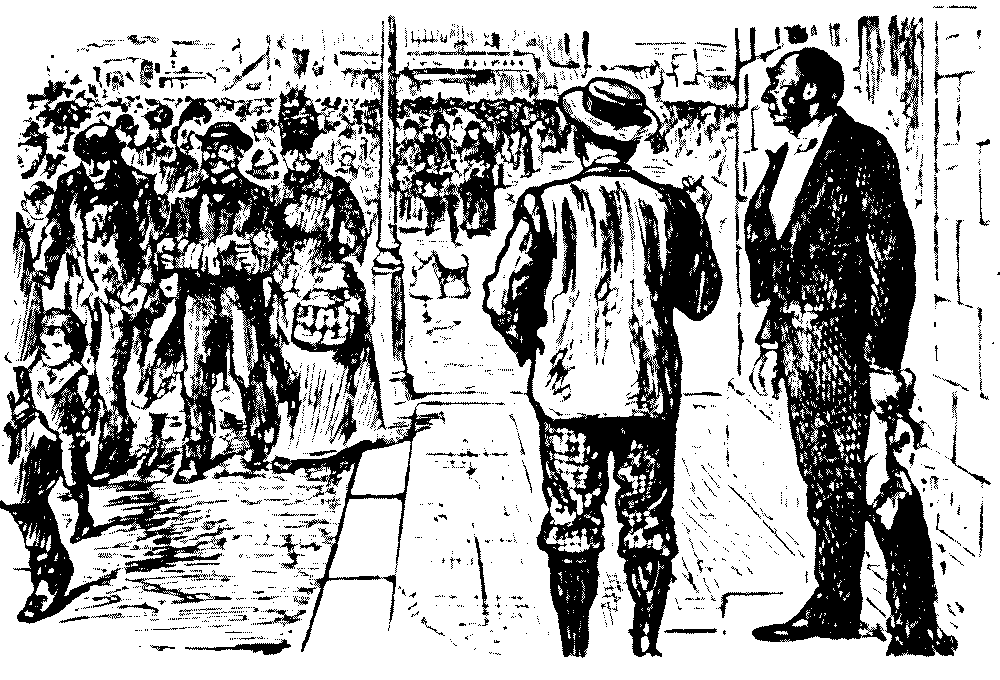
OVERHEARD OUTSIDE A THEATRE
"Yah! Waitin' ter see der kids play!"
[Pg 168]
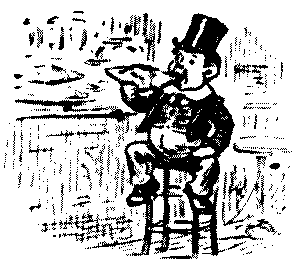
Actor (excitedly). "For two long years have
I——"
A Voice from above. "So you 'ave, guv'nor!"
[Pg 169]
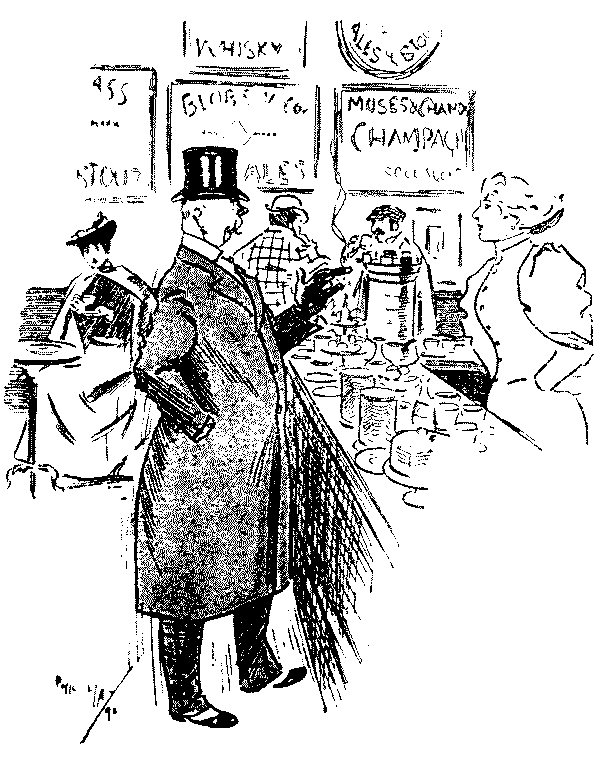
STUDY
Of an ancient buck at a modern burlesque
[Pg 170]
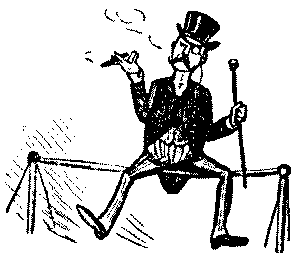
COLOURED CLERGY
(A Memory of St. James's Hall)
Uncle (can't see so well as he did, and a little hard of hearing).
"Who do you say they are, my dear!—Christian ministers? 'Ncom'ly kind
of 'em to give a concert, to be sure! For a charitable purpose, I've no
doubt, my dear!!"
[Pg 171]
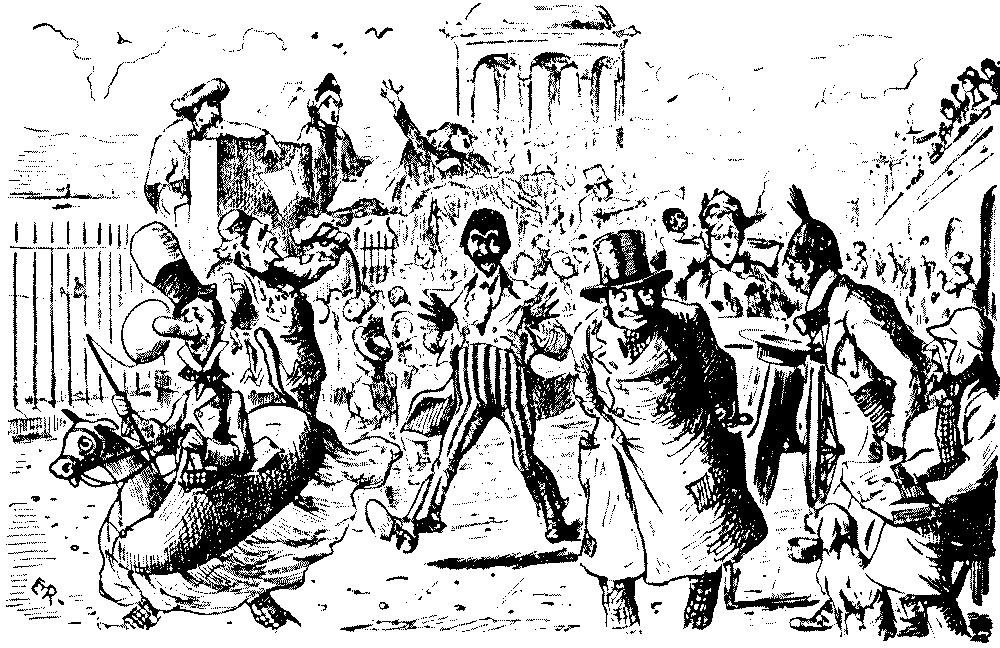
SUPEREROGATION
Country Maid (having first seen "missus" and the children into a
cab). "O, coachman, do you know the principal entrance to Drury Lane
Theat——?"
Crabbed Old Cabby (with expression of ineffable contempt). "Do I
know! Kim aup——!"
[Pg 172]
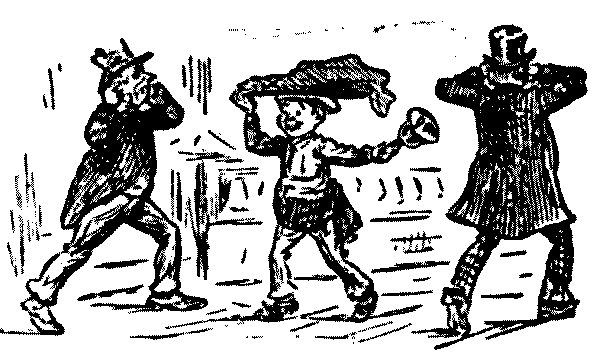
Jones (alluding to the song). "Not bad; but I think
the girl might have put a little more spirit into it with advantage."
Lushington. "Jush 't I was thinkin'. Lesh avanother!"
[Pg 173]
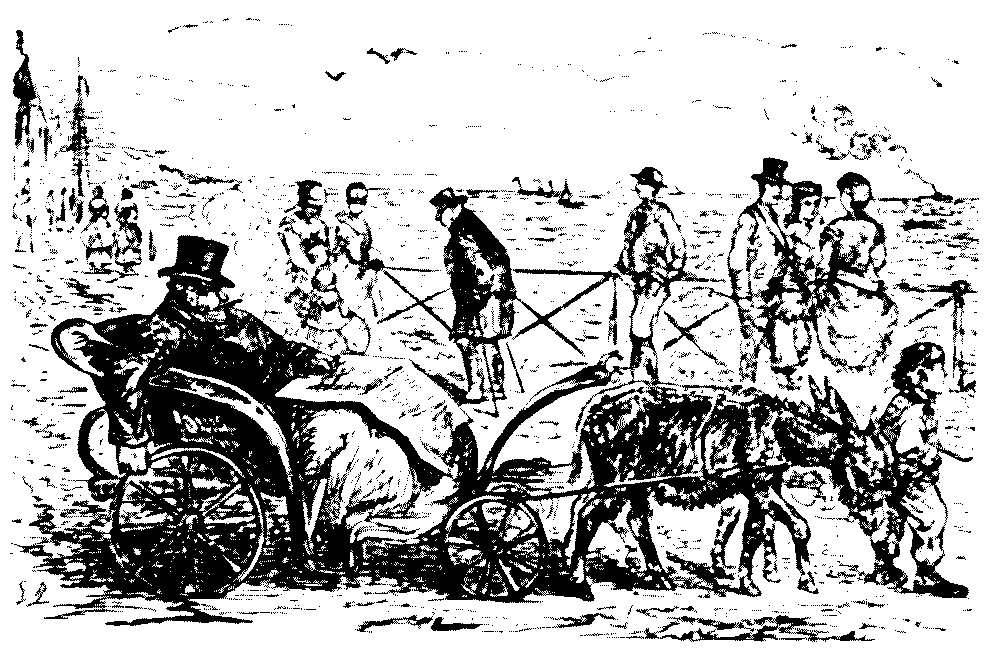
After the Theatricals.
"What on earth made you tell that
appalling little cad that he ought to have trod the boards of ancient
Greece! You surely didn't really admire his acting?" "Oh no! But, you
know, the Greek actors used to wear masks!"
[Pg 174]
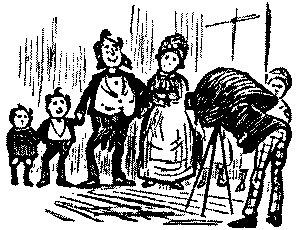
"Jemmy! What's a stall at the hopera?"
"Well, I can't say, not for certain; but I suppose it's where they sells
the happles, horanges, ginger-beer, and biskits."
[Pg 175]
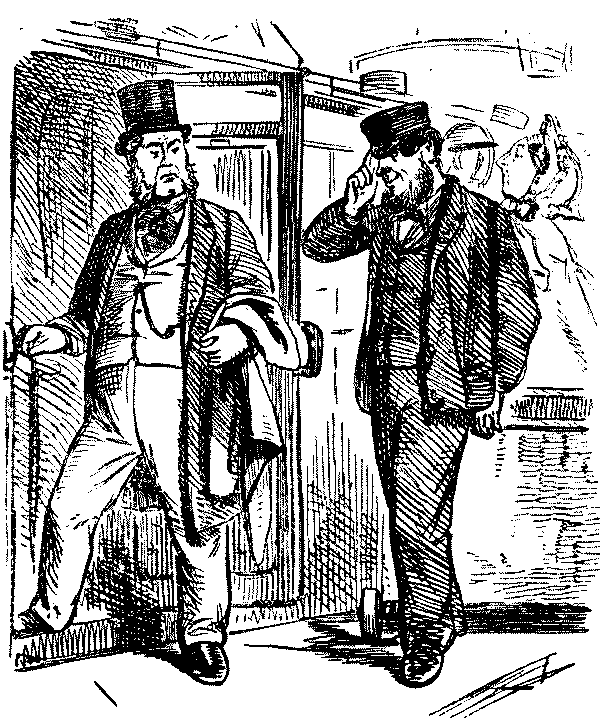
"Please, sir! give us your ticket if you aint agoin' in again."
[Pg 176]
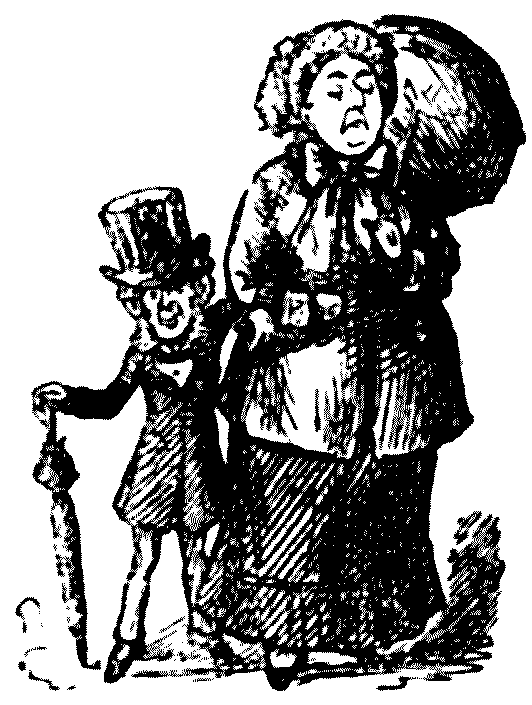
A DOMESTIC DRAMA
[Pg 177]
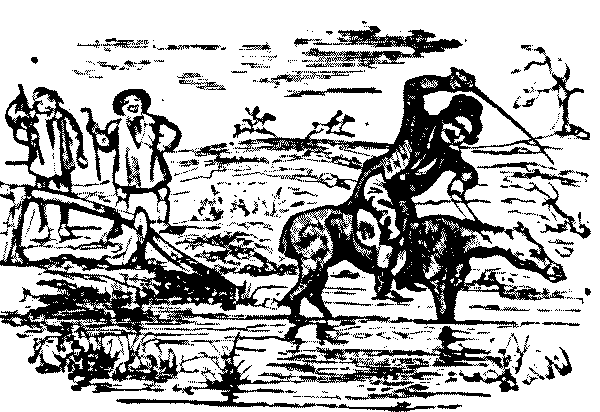
PROGRESS
Young Rustic. "Gran'fa'r, who was Shylock?"
Senior (after a pause). "Lauk a' mussy, bo', yeou goo to Sunday
skewl, and don't know that!"
[Pg 178]
"HAMLET" A LA SAUCE DUMB-CRAMBO
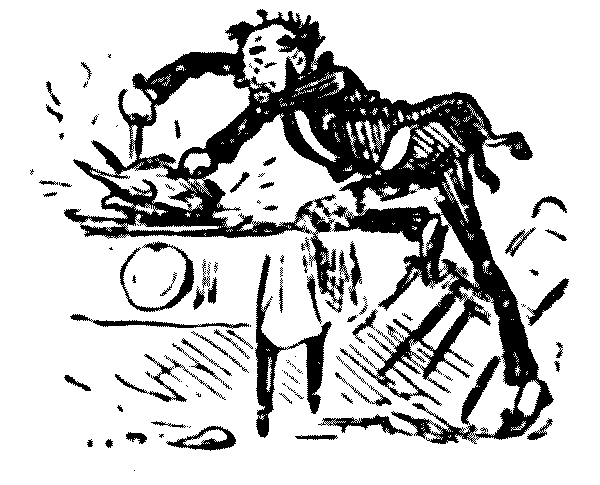
"Oh, that this too, too solid flesh would melt!"—Act I.,
Sc. 2.
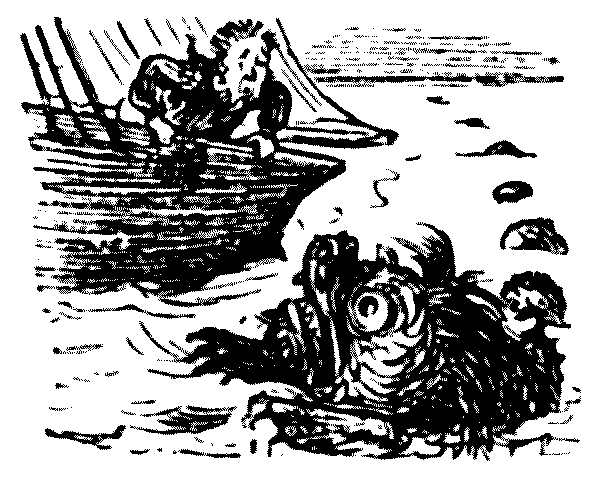
"I could a tail unfold!"—Ibid.
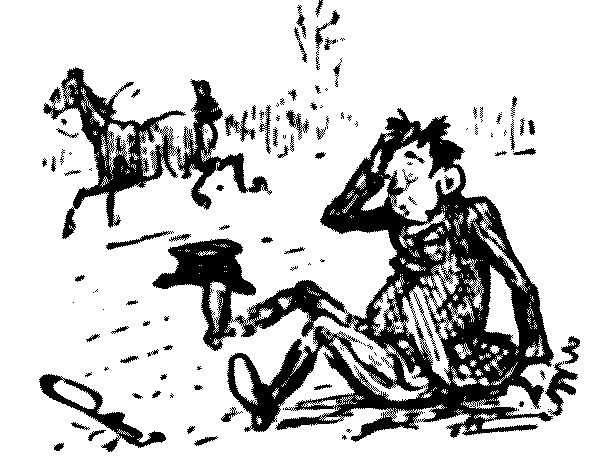
"What a falling off was there!"—Ibid.
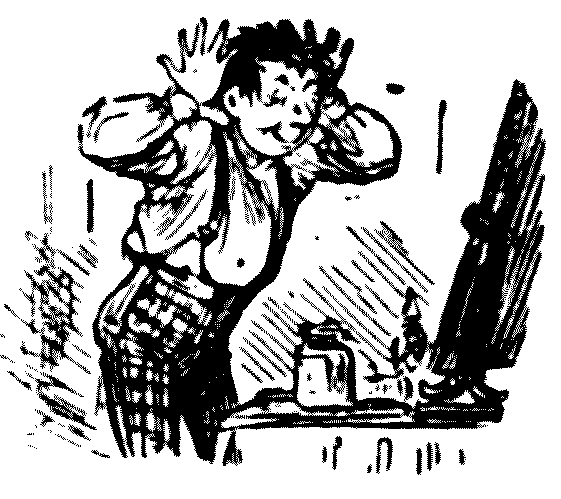
"Methinks I scent the morning hair!"—Ibid.
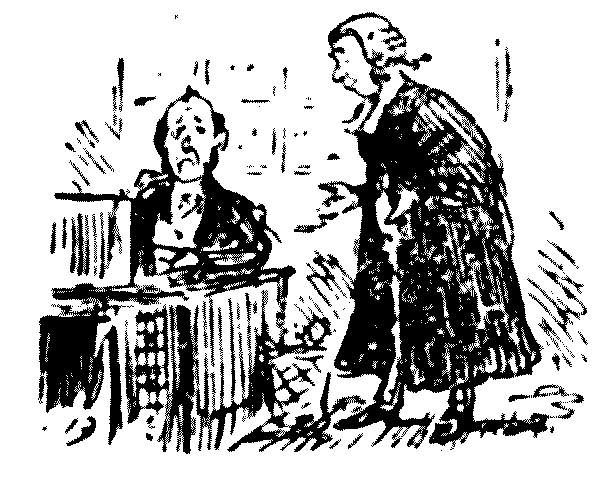
"Brief let me be!"—Ibid.
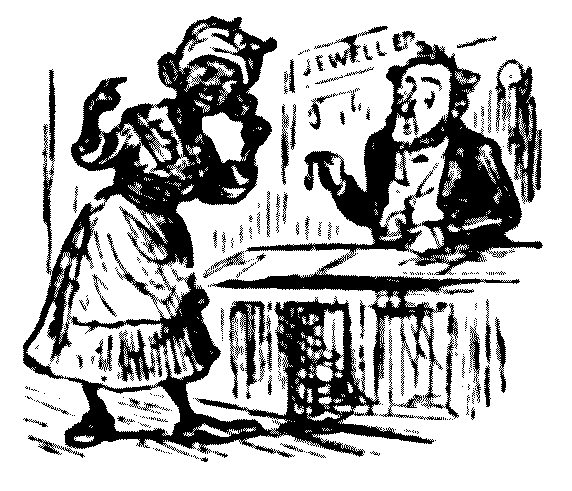
"Lend thy serious ear-ring to what I shall unfold!"—Act
I., Sc. 5.
[Pg 179]
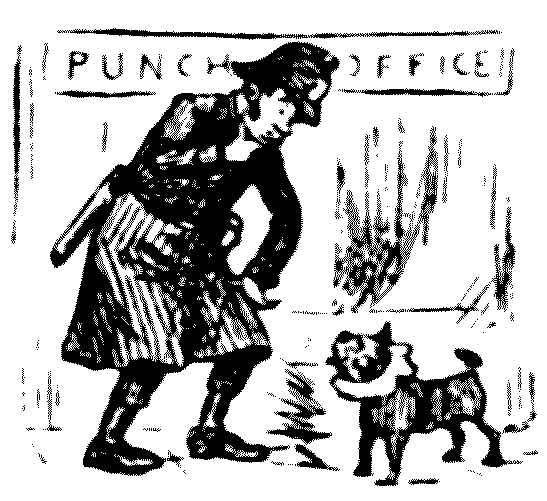
"Toby, or not Toby? that is the question."—Act II., Sc. 2.
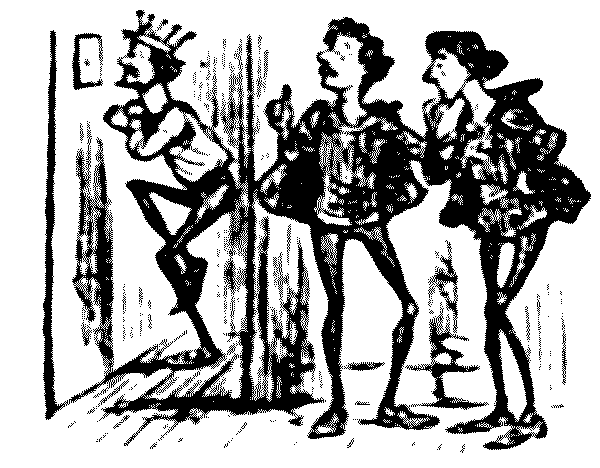
"The King, sir."—"Ay, sir, what of him?"—"Is in his
retirement marvellous distempered."—"With drink, sir!"—"No, my lord,
rather with collar!"—Act III., Sc. 2.
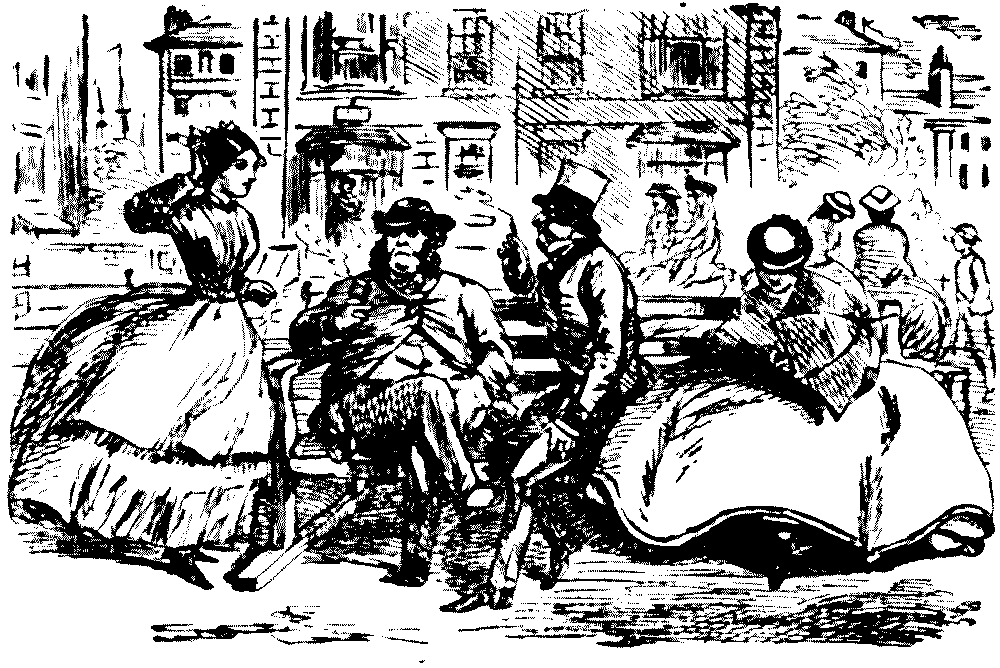
"Oh, my offence is rank!"—Act III., Sc. 3.
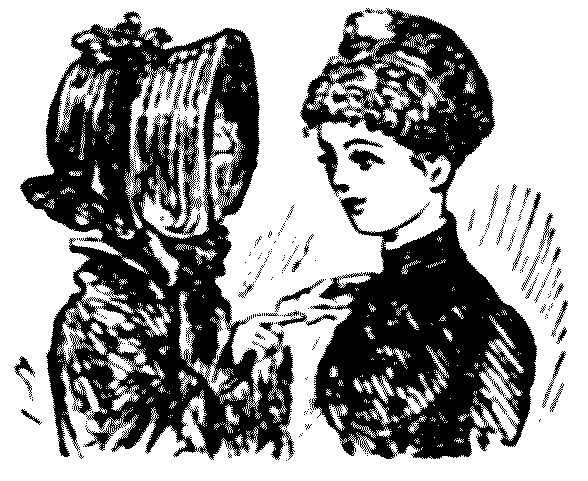
"Put your bonnet to his right use—'tis for the head."—Act V., Sc. 2.
[Pg 180]
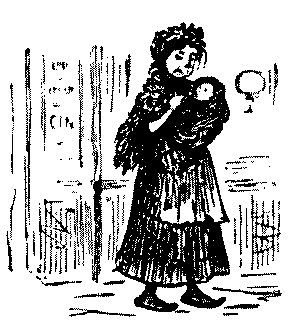
"Coming Events cast their Shadows before
them."
Domesticated Wife. "Oh, George, I wish you'd just——"
Talented Husband (author of various successful comic songs for music
halls, writer of pantomimes and variety-show libretti). "Oh, for
goodness sake, Lucy, don't bother me now! You might see I'm trying
to work out some quite new lines for the fairy in the transformation
scene of the pantomime!"
[Pg 181]
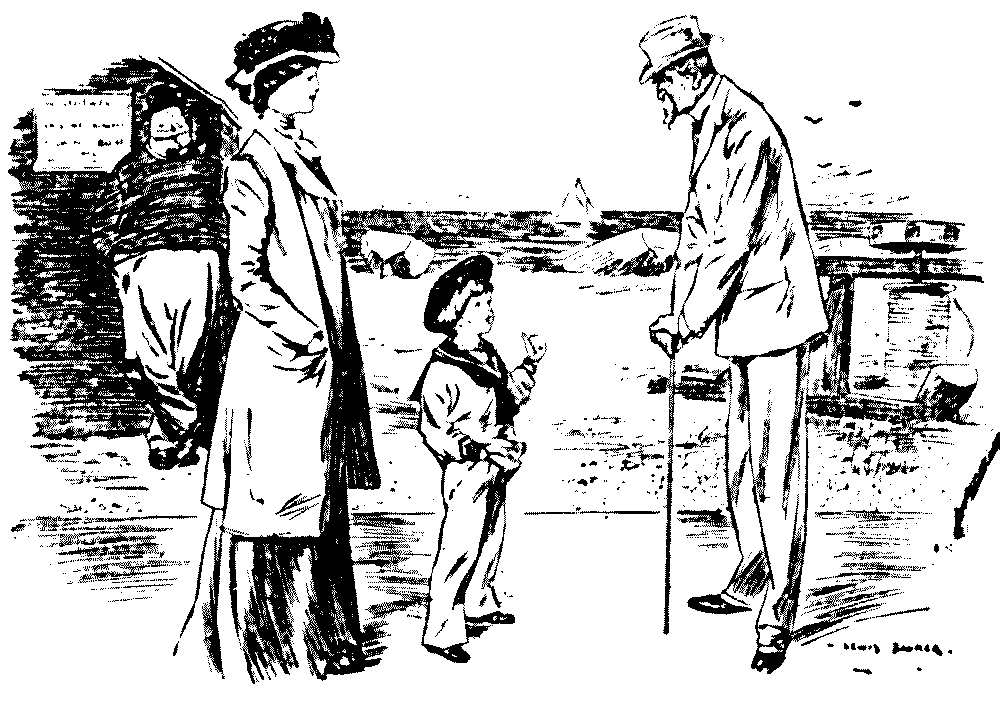
A SENSITIVE EAR.
Intelligent Briton. "But we have no theatre, no actors worthy of the
name, mademoiselle! Why, the English delivery of blank verse is simply
torture to an ear accustomed to hear it given its full beauty and
significance by a Bernhardt or a Coquelin!"
Mademoiselle. "Indeed? I have never heard Bernhardt or Coquelin recite
English blank verse!"
Intelligent Briton. "Of course not. I mean French blank verse—the
blank verse of Corneille, Racine, Molière!"
Mademoiselle. "Oh, monsieur, there is no such thing!"
[Briton still tries to look intelligent.
[Pg 182]
DUMB-CRAMBO'S GUIDE TO THE LONDON THEATRES
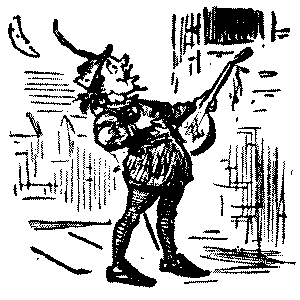
Drew wry lane
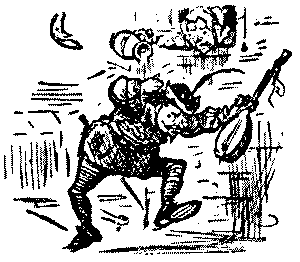
Cove in garden
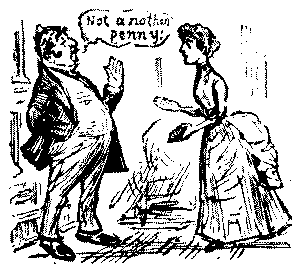
Cry-teary 'un
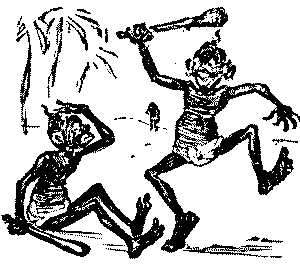
Prints of whales
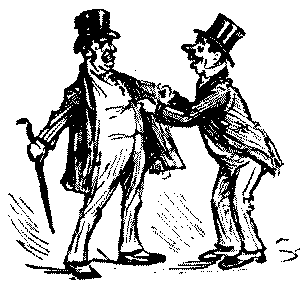
"A—mark it!"
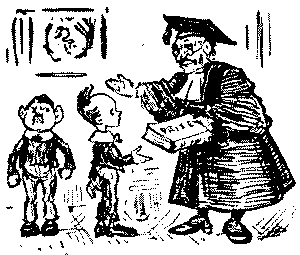
Gay at tea
[Pg 183]
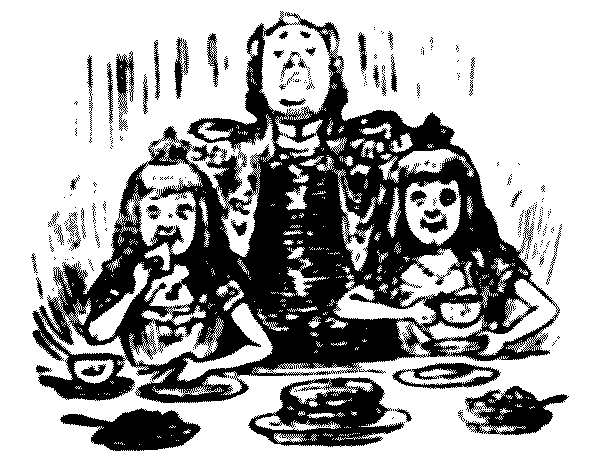
Princesses and royal tea
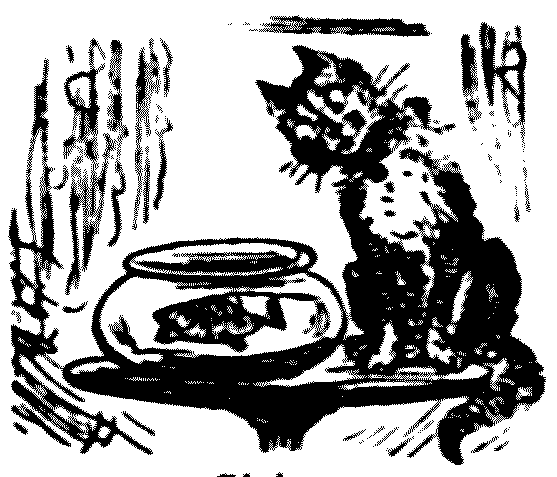
Globe
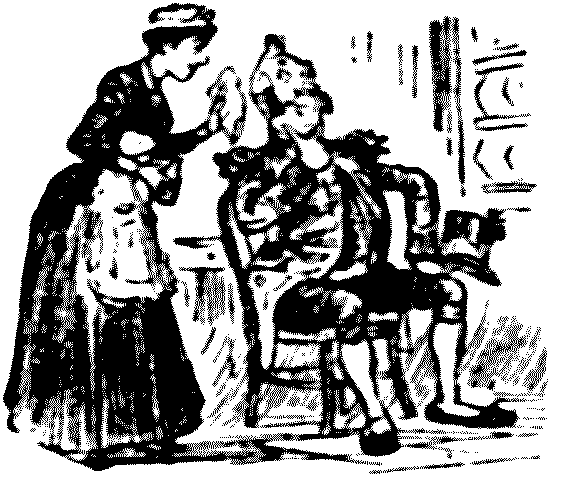
"Scent, James?"
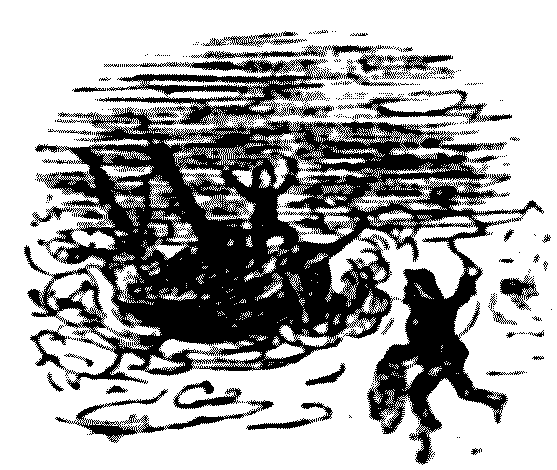
Strand and "save, hoi!"
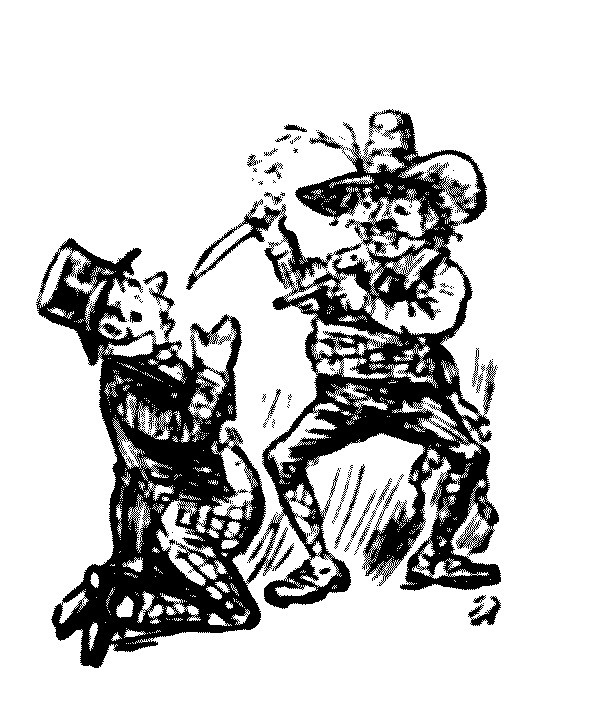
Only in play!
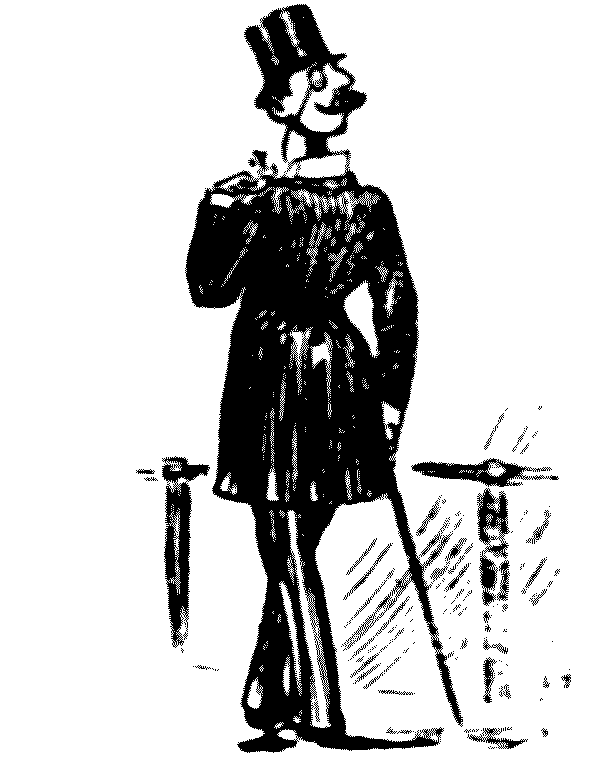
The actor who has his head turned with applause
[Pg 184]
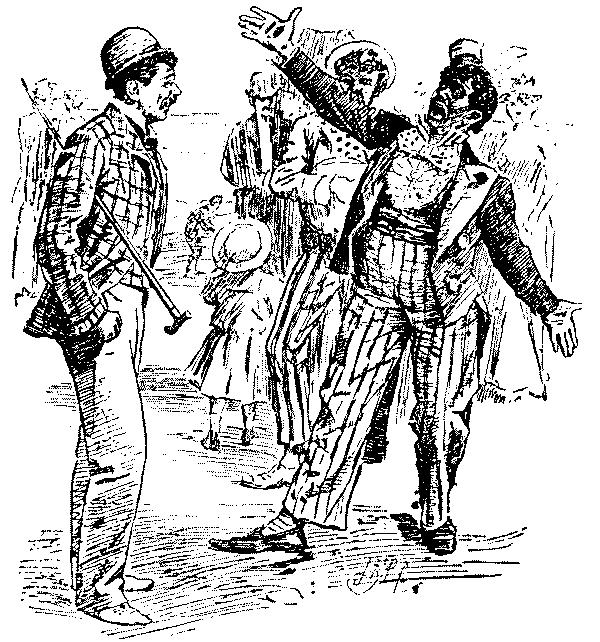
CURTAIN-RAISERS
Extract from Ethel's
correspondence:—"At the last moment something went wrong with the
curtain, and we had to do without one! It was awful! But the Rector
explained matters to the front row, and they came to the rescue
nobly!"
[Pg 185]
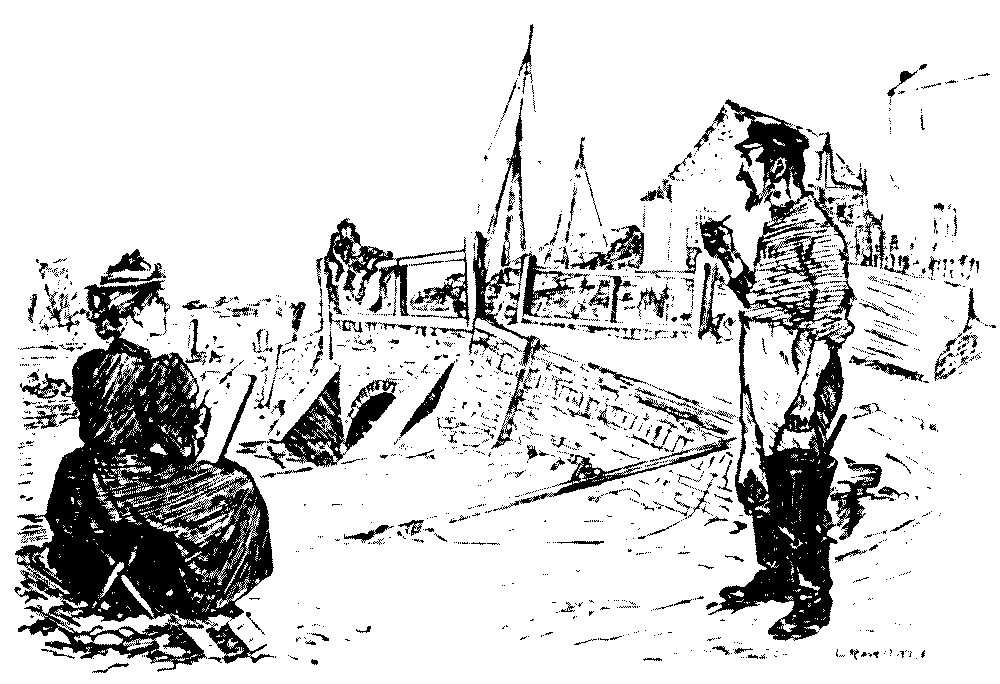
"Well, how did the new play go off last night?"
"Oh, there was a sleep-walking scene in the third act that was rather
effective." "À la Lady Macbeth, eh?"
"Well—not exactly. It was the audience that got up in its sleep and
walked out!"
[Pg 187]
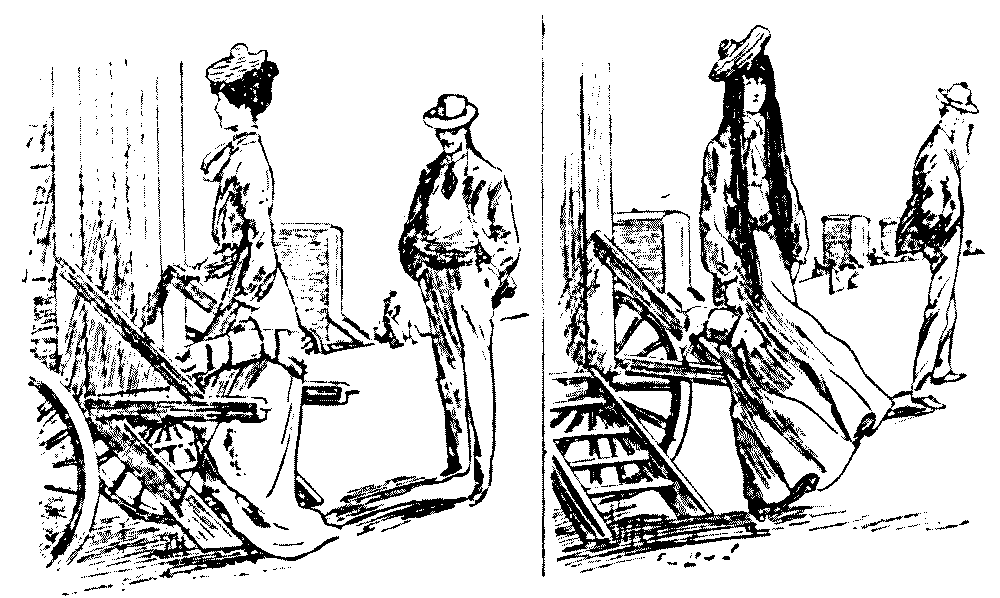
MUSIC HALL TYPES
[Pg 188]
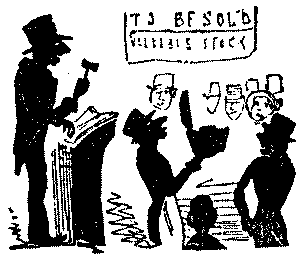
MUSIC HALL TYPES
[Pg 190]
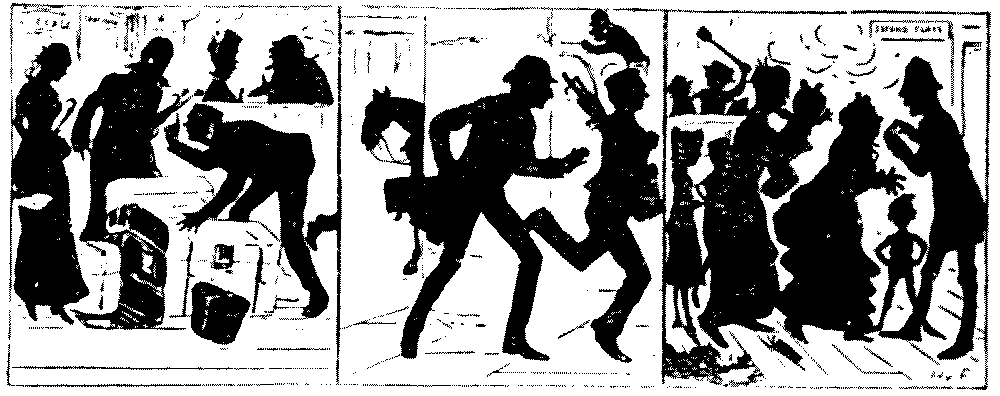
MUSIC HALL TYPES
[Pg 187]
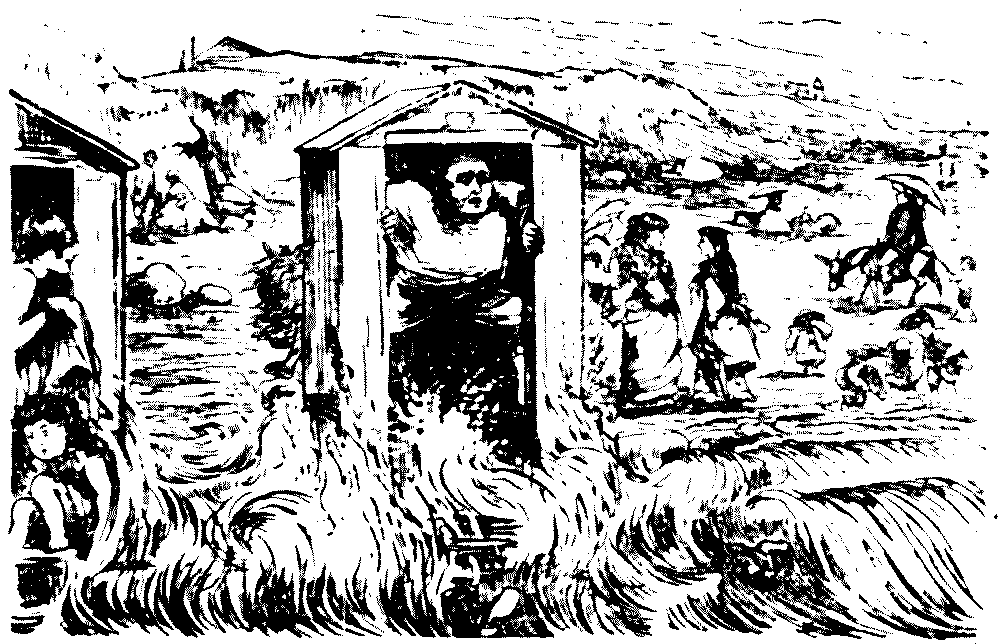
On Tour.
Heavy Tragedian. "Do you let apartments
to—ah—the profession?" Unsophisticated Landlady. "Oh, yes, sir. Why,
last week we had the performing dogs here!"
[Pg 189]
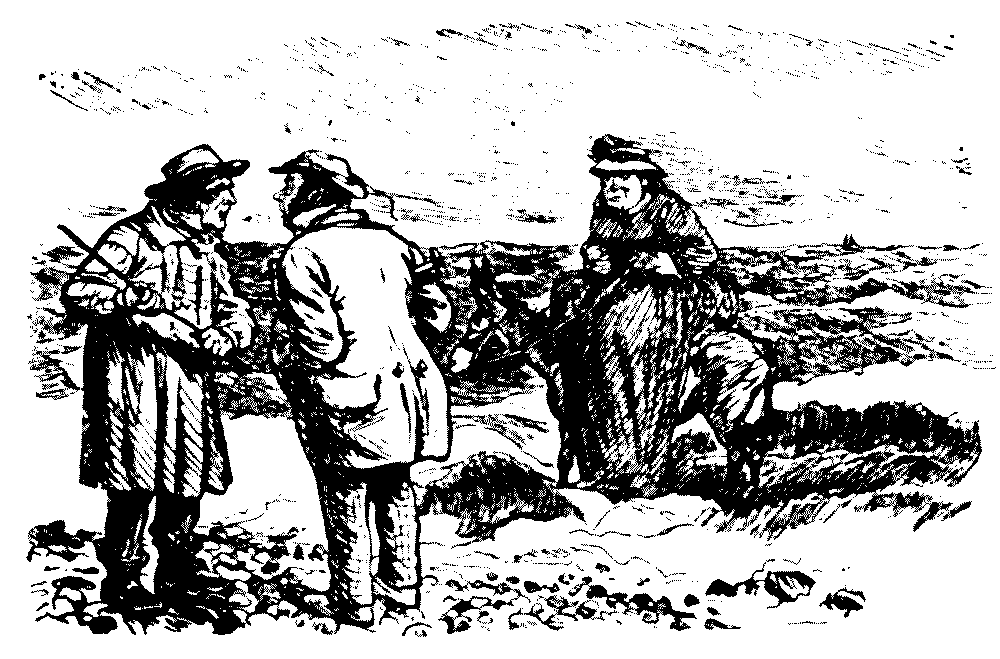
Art and Nature.
She. "How well your wife plays Lady Geraldine, Mr. Jones. I think
the way she puts on that awful affected tone is just splendid. How
does she manage it?"
Mr. Jones (with embarrassment). "Er—she doesn't. That's her natural
voice."
[Pg 191]
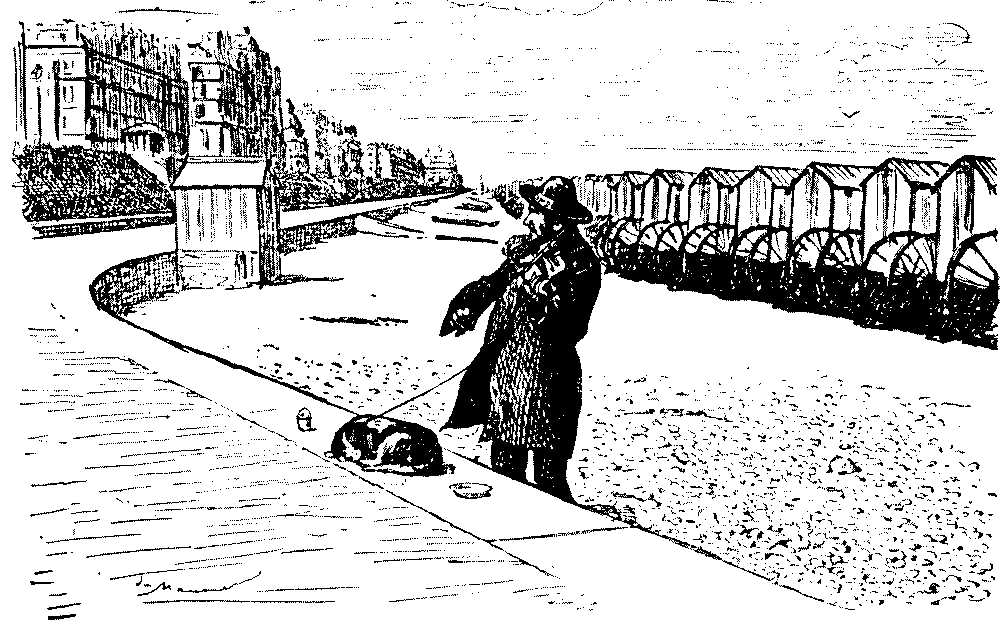
CONVINCING
[Pg 192]
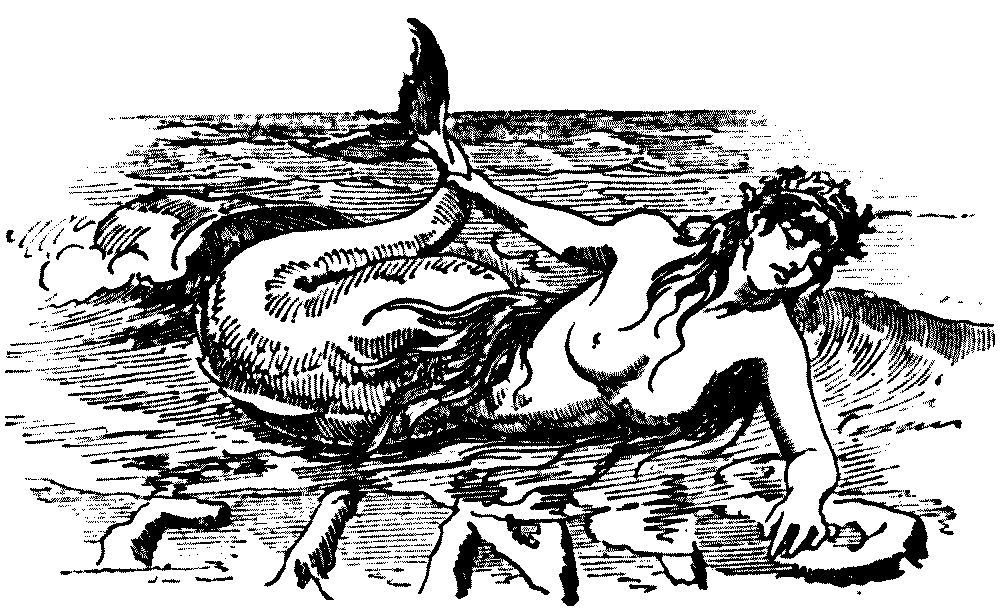
Featured Books

I misteri del castello d'Udolfo, vol. 1 (Italian)
Ann Ward Radcliffe
nti, e lo sguardo affaticato dall'aspettodi quelle voragini, si riposava alla vista degli armentie d...

Old French Romances, Done into English
William Morris
ty that these cameos ofromance should suffer the same fate as Mr. Lang’s versionof Aucassin et Nic...

In New England Fields and Woods
Rowland Evans Robinson
now and hereaftercan only be memories, though they are yetnear him and he may still hear their voice...

The Flying Girl
L. Frank Baum
rton Radley-Todd174XXIIThe Flying Girl184XXIIIA Battle in the Air192XXIVThe Criminal202XXVThe Real H...

The Head of Kay's
P. G. Wodehouse
I — MAINLY ABOUT FENN "When we get licked tomorrow by half-a-dozen wickets," sai...

Mr. Dooley: In the Hearts of His Countrymen
Finley Peter Dunne
cond dedication to the people ofArchey Road, whose secluded gayety he has attempted to discover toth...

Mr. Punch at the Seaside
MIAAT THE PLAYMR. PUNCH AT HOMEON THE CONTINONGRAILWAY BOOKAT THE SEASIDEMR. PUNCH AFLOATIN THE HUNT...

Stories by American Authors, Volume 5
lid black; /* a thin black line border.. */ padding: 6px; /* ..spaced a bit out from the gr...
Browse by Category
Join Our Literary Community
Subscribe to our newsletter for exclusive book recommendations, author interviews, and upcoming releases.
Comments on "Mr. Punch at the Play: Humours of Music and the Drama" :